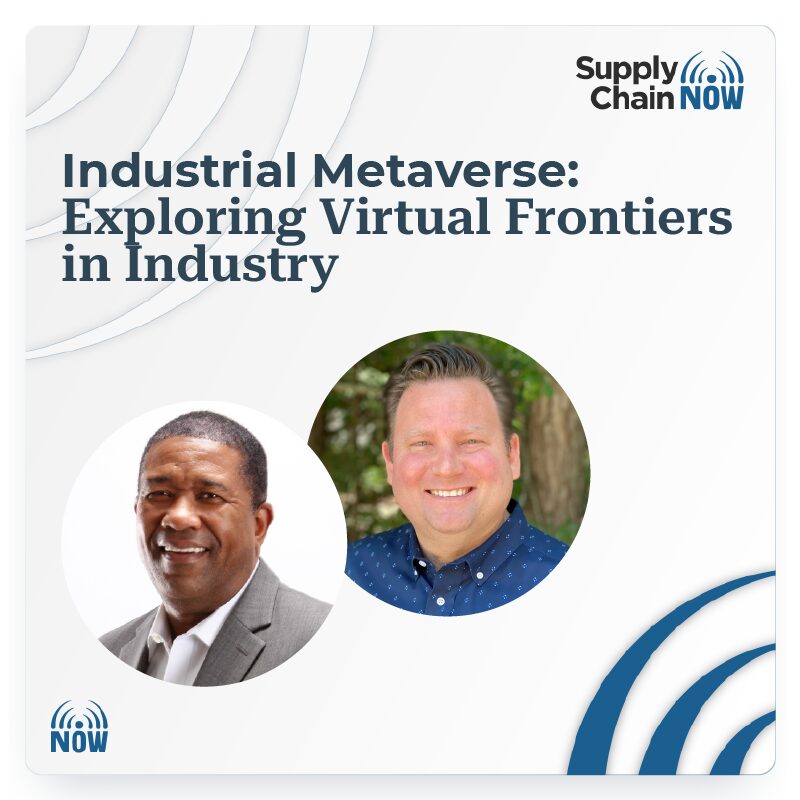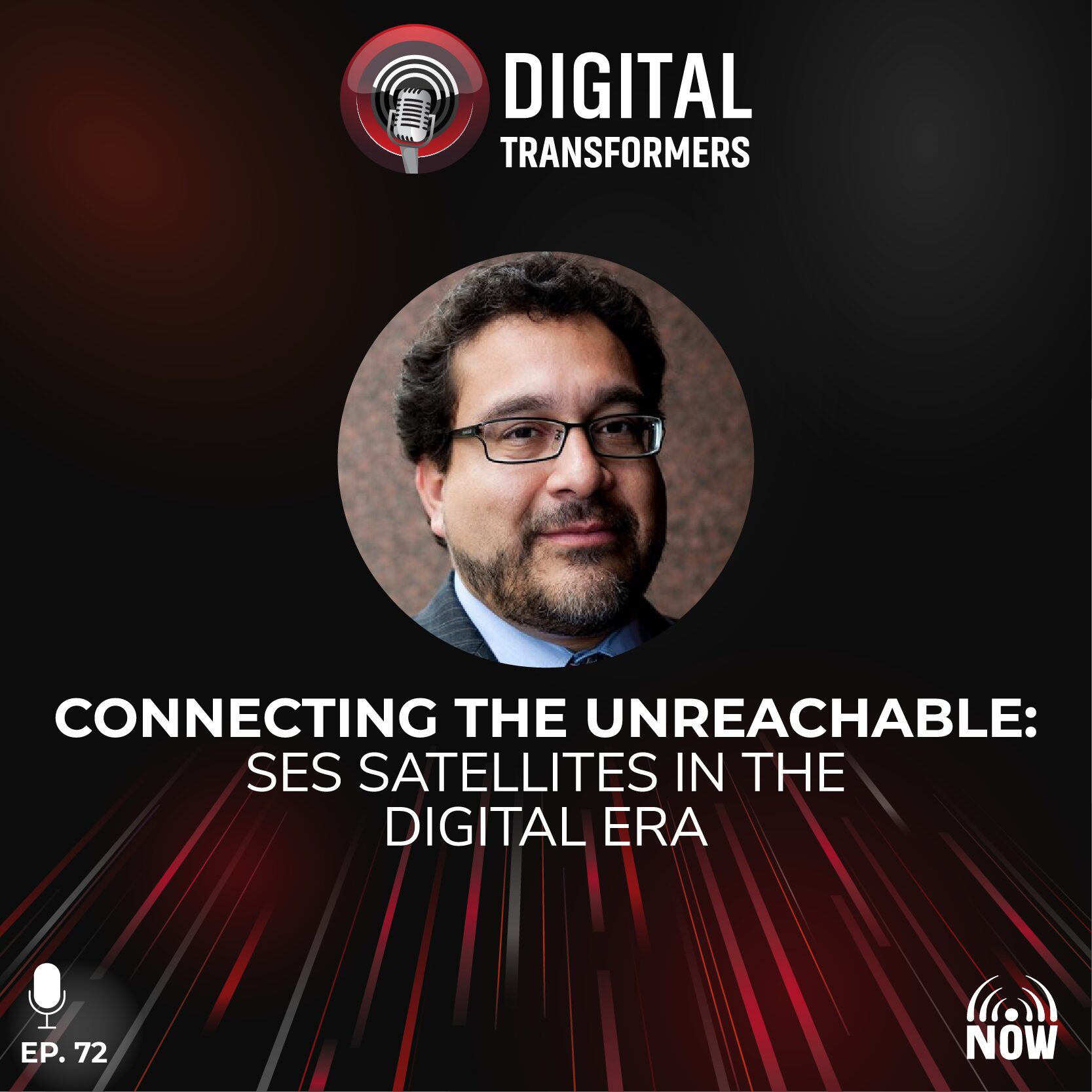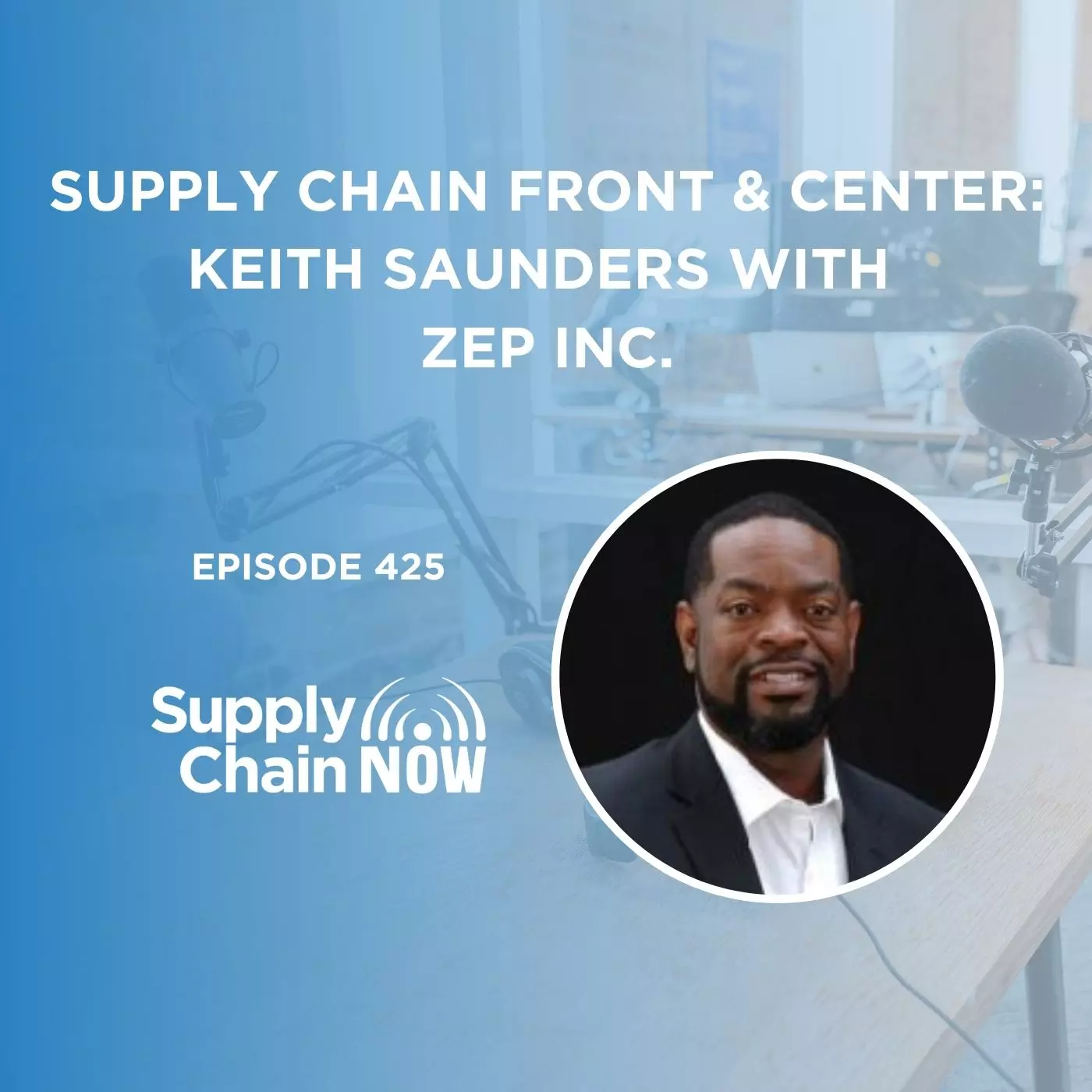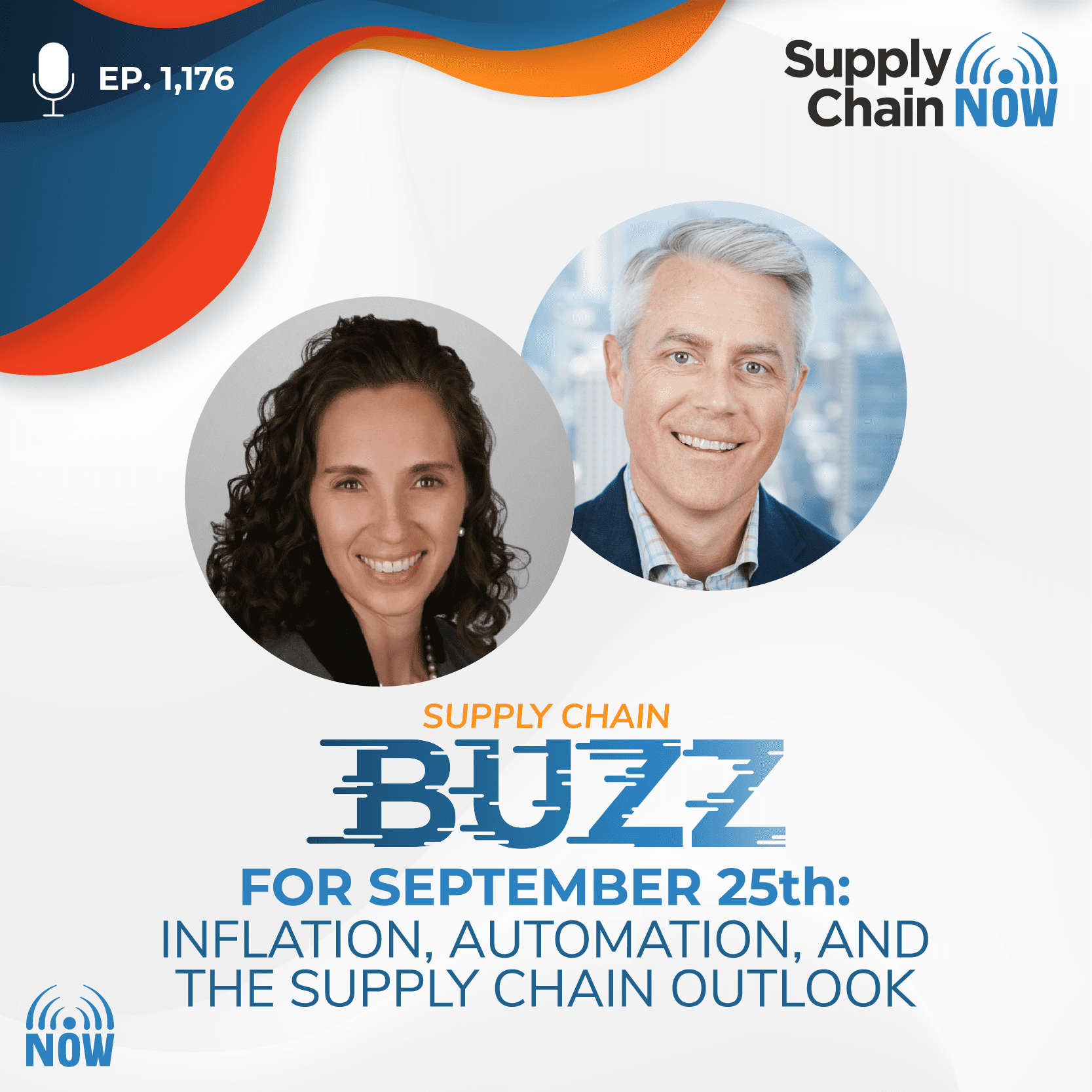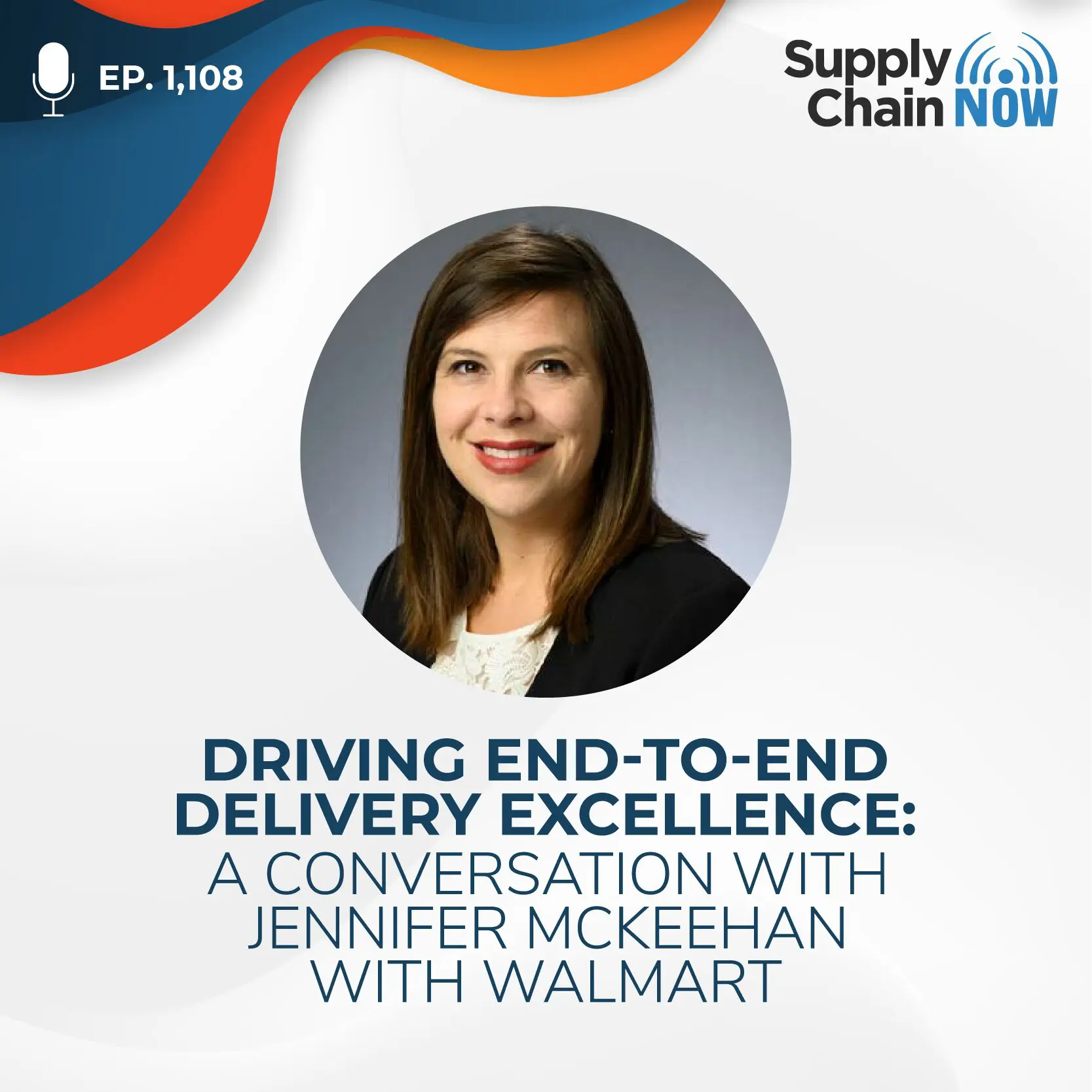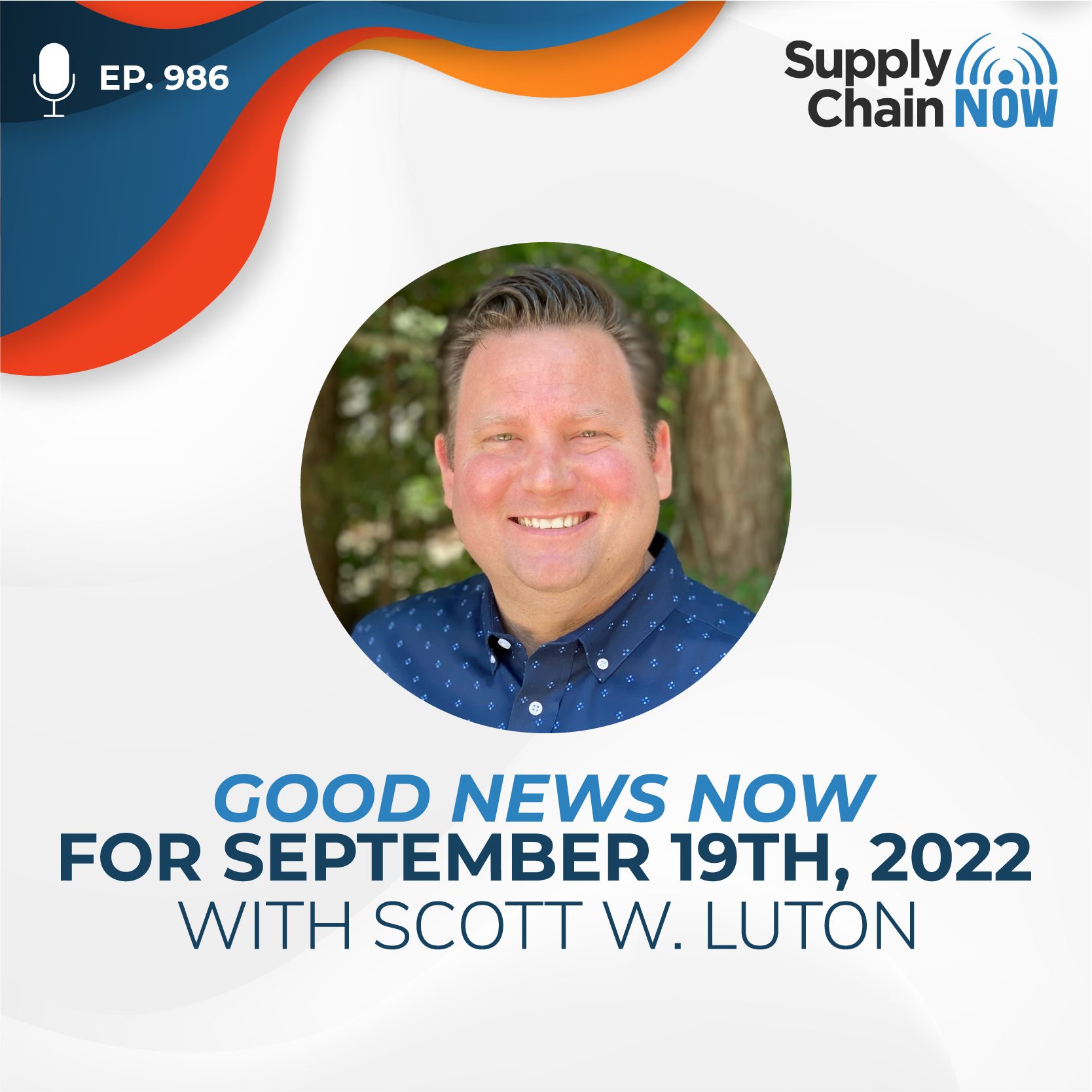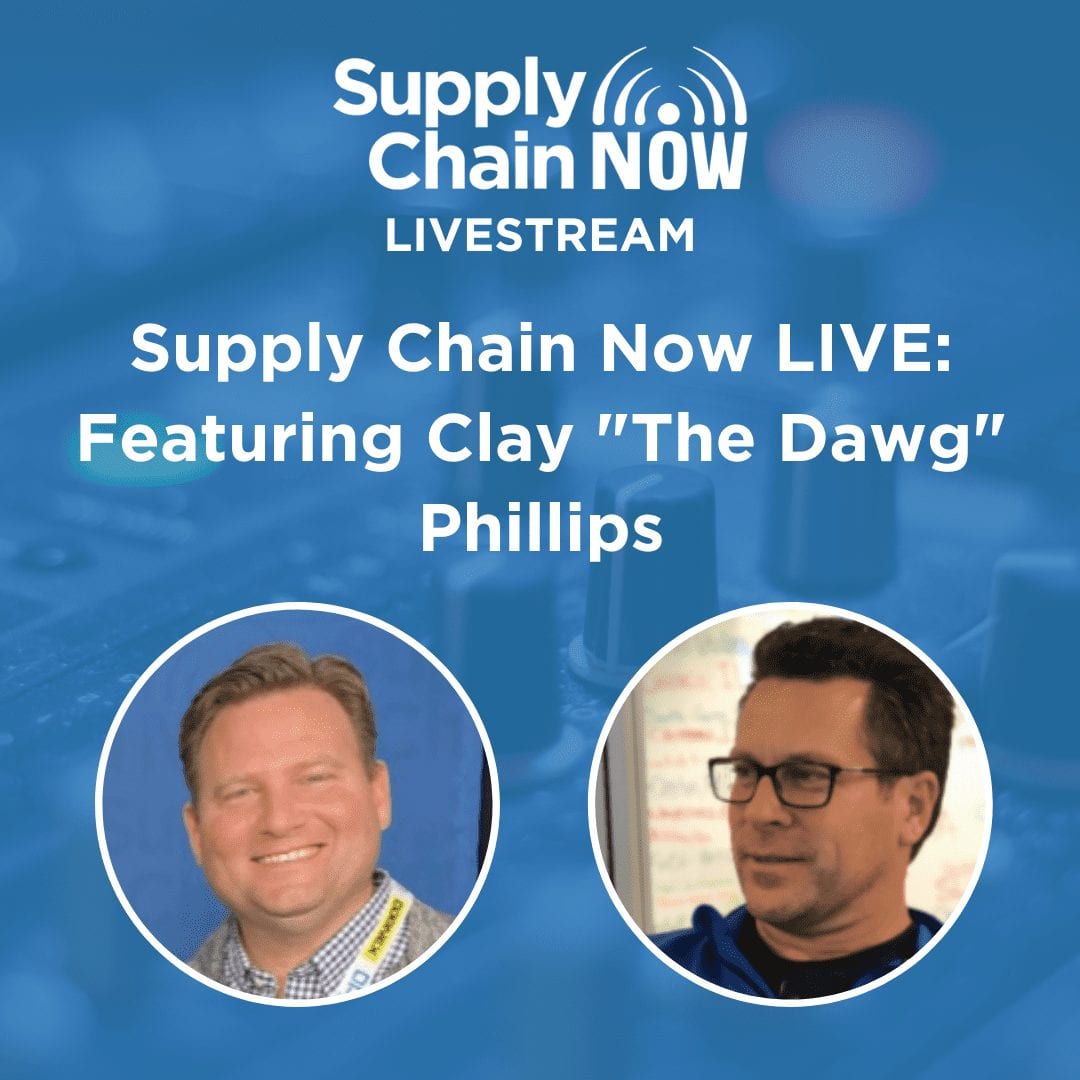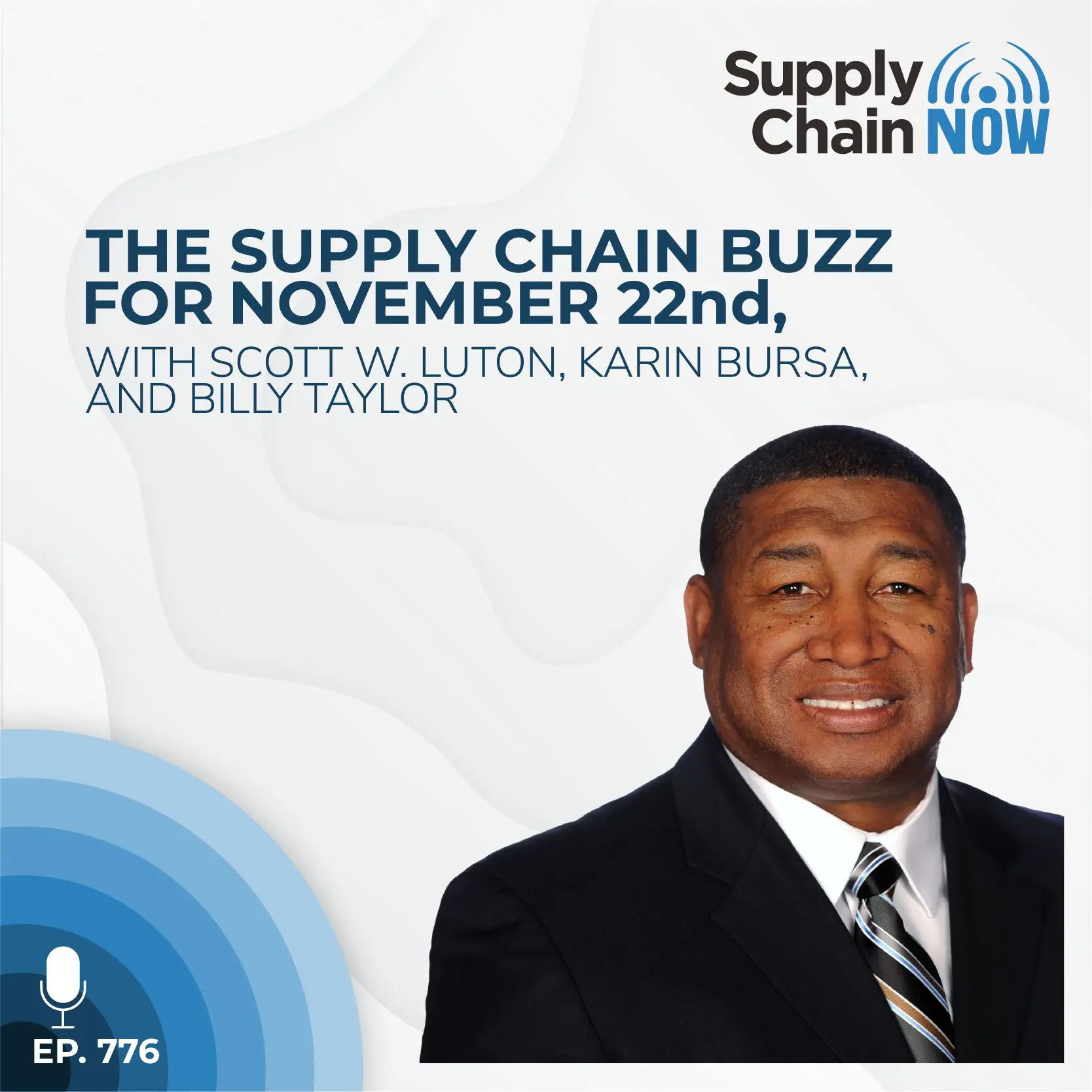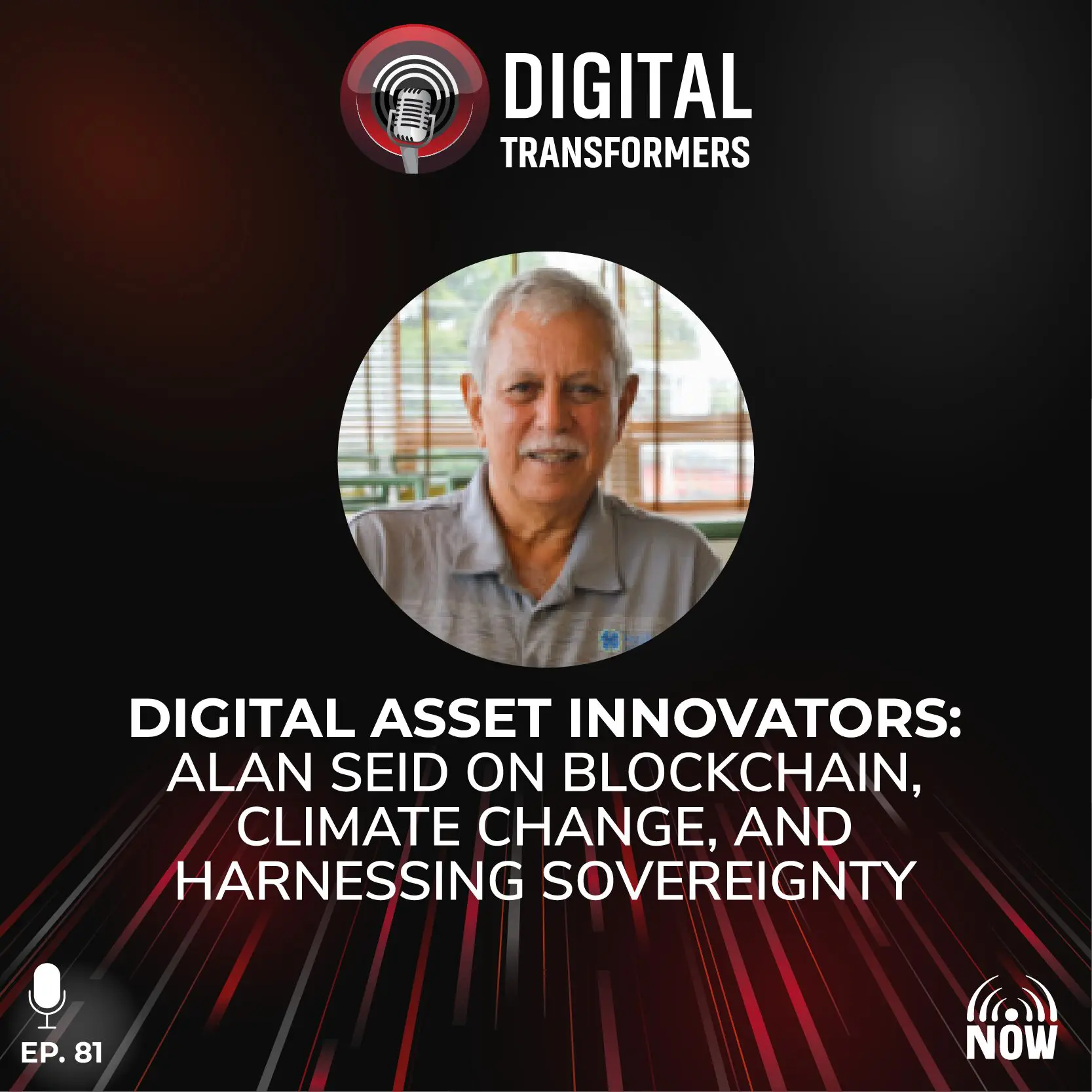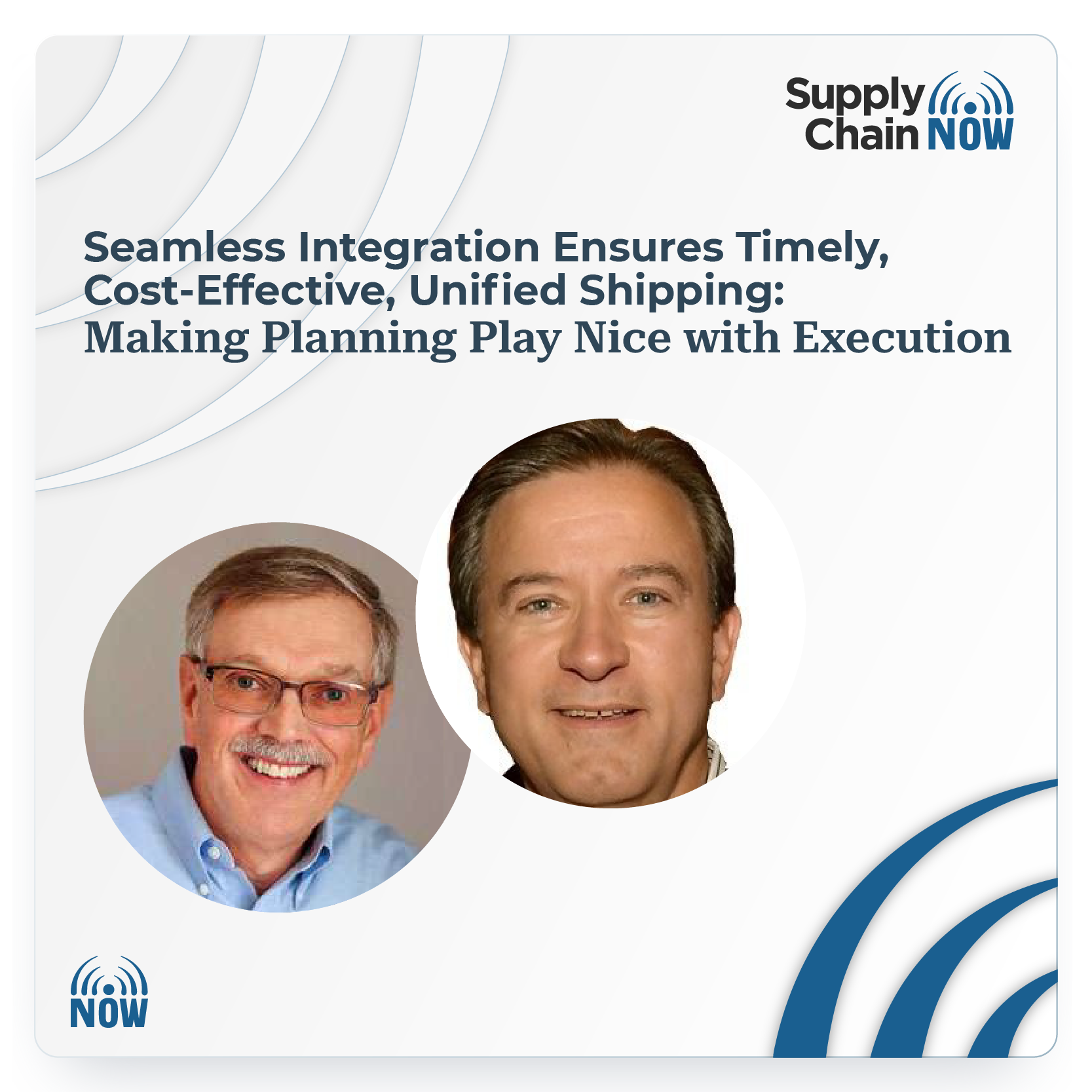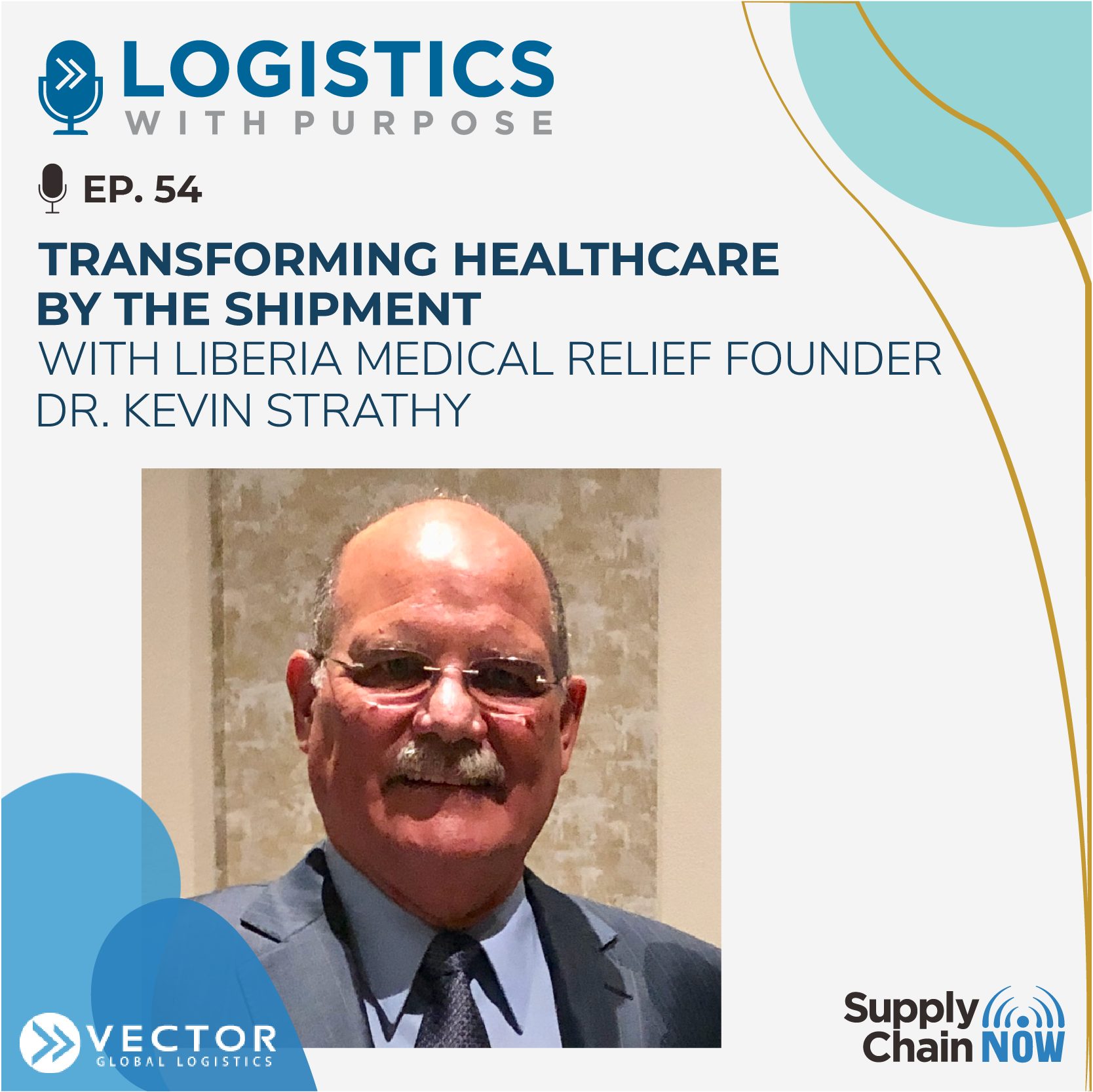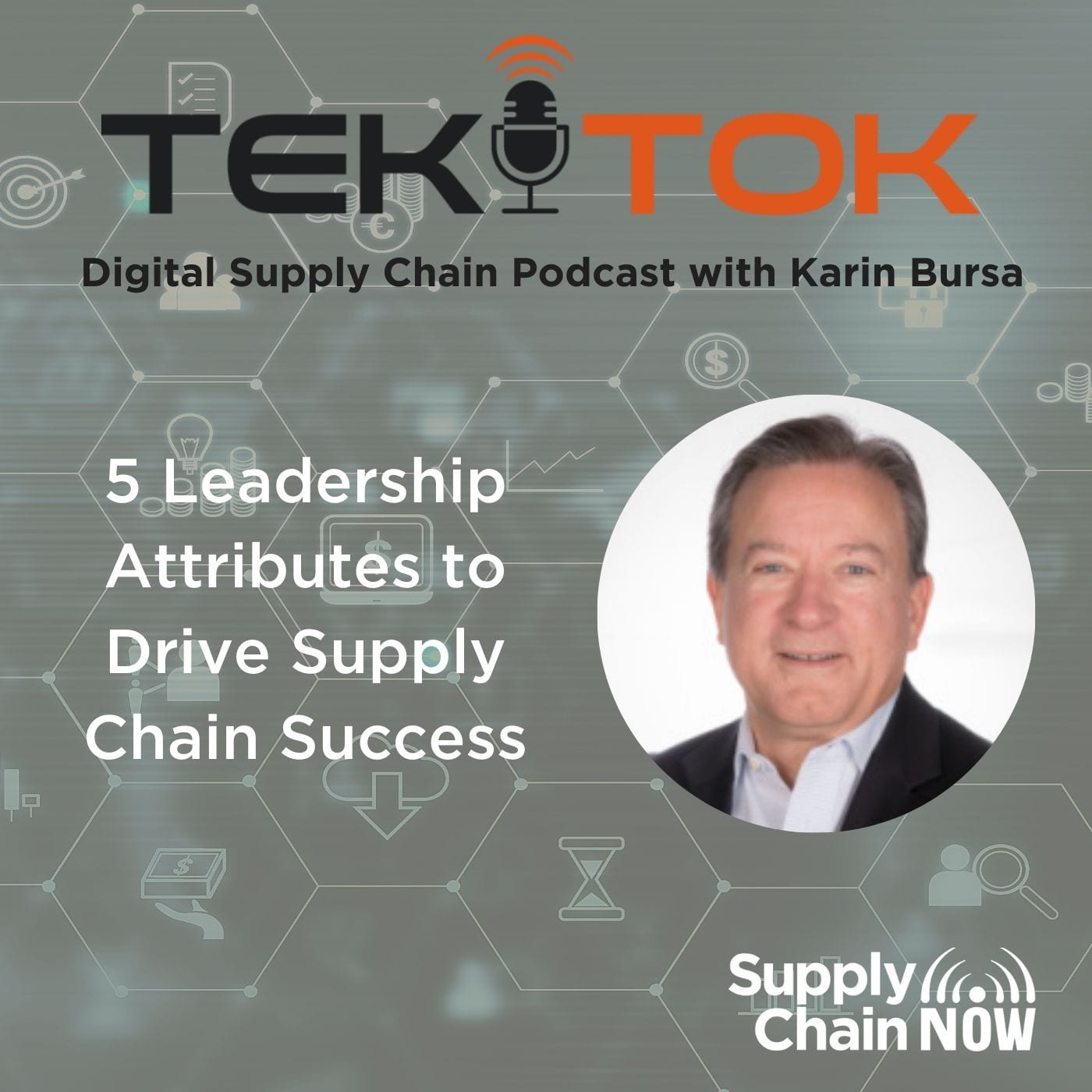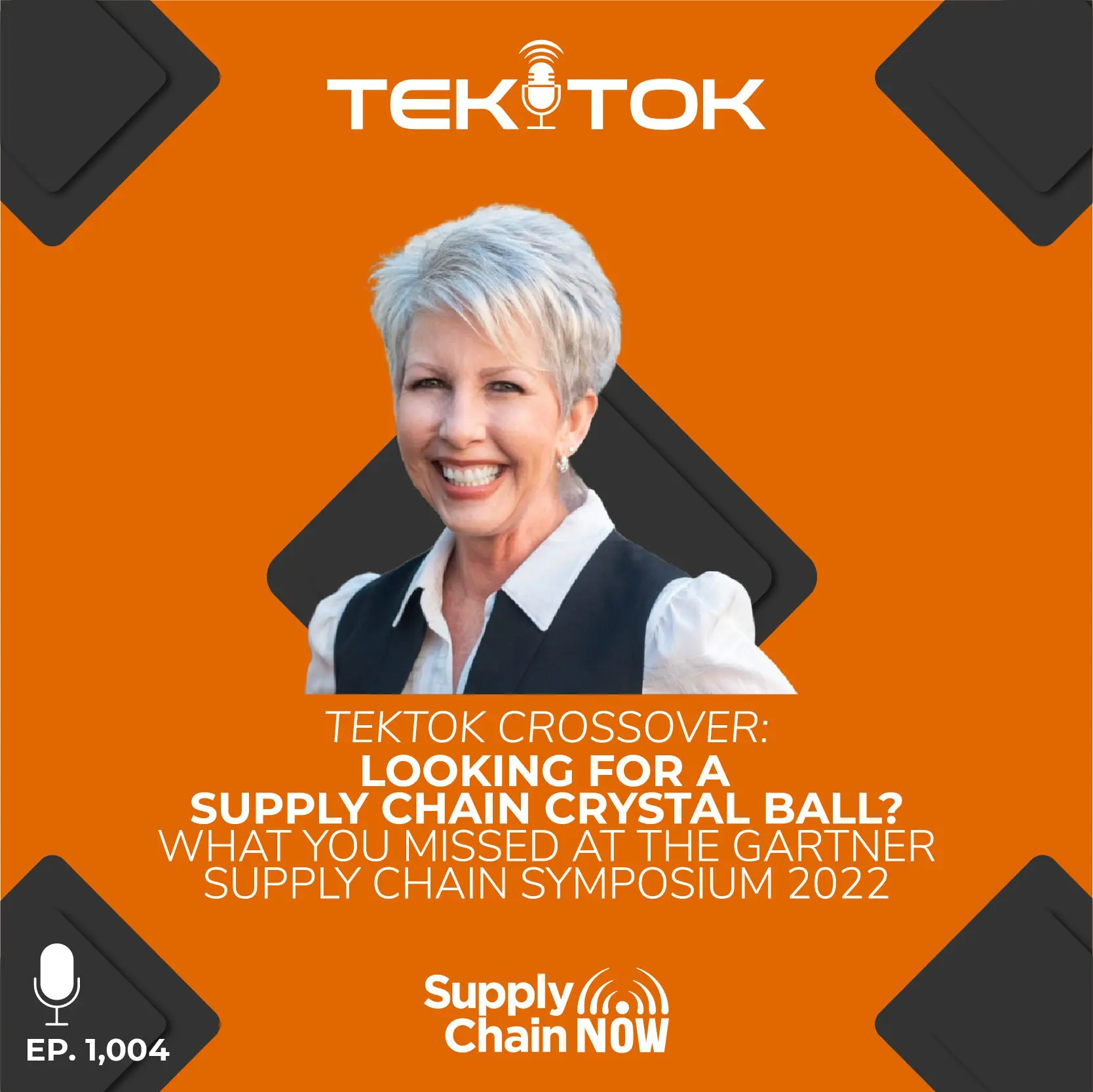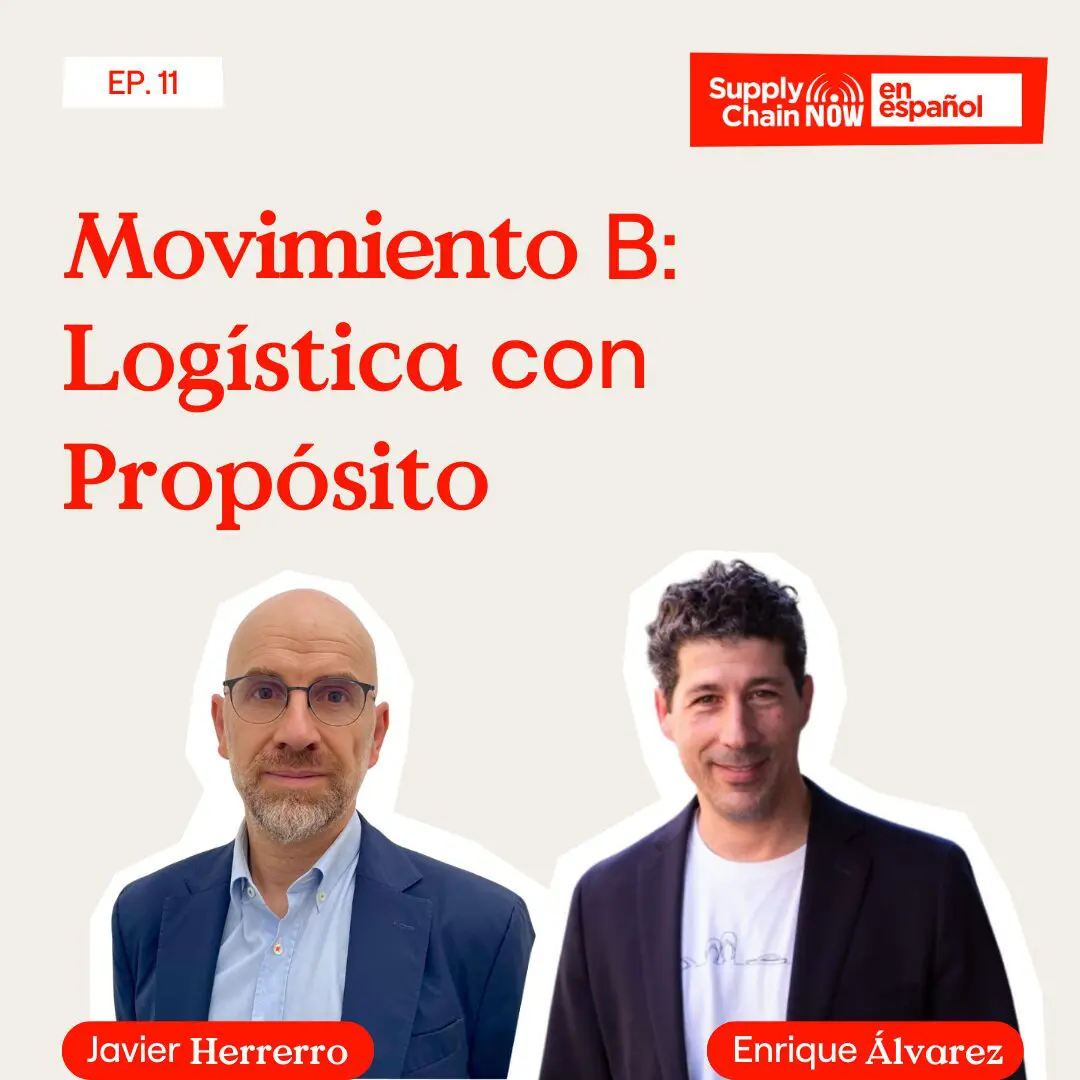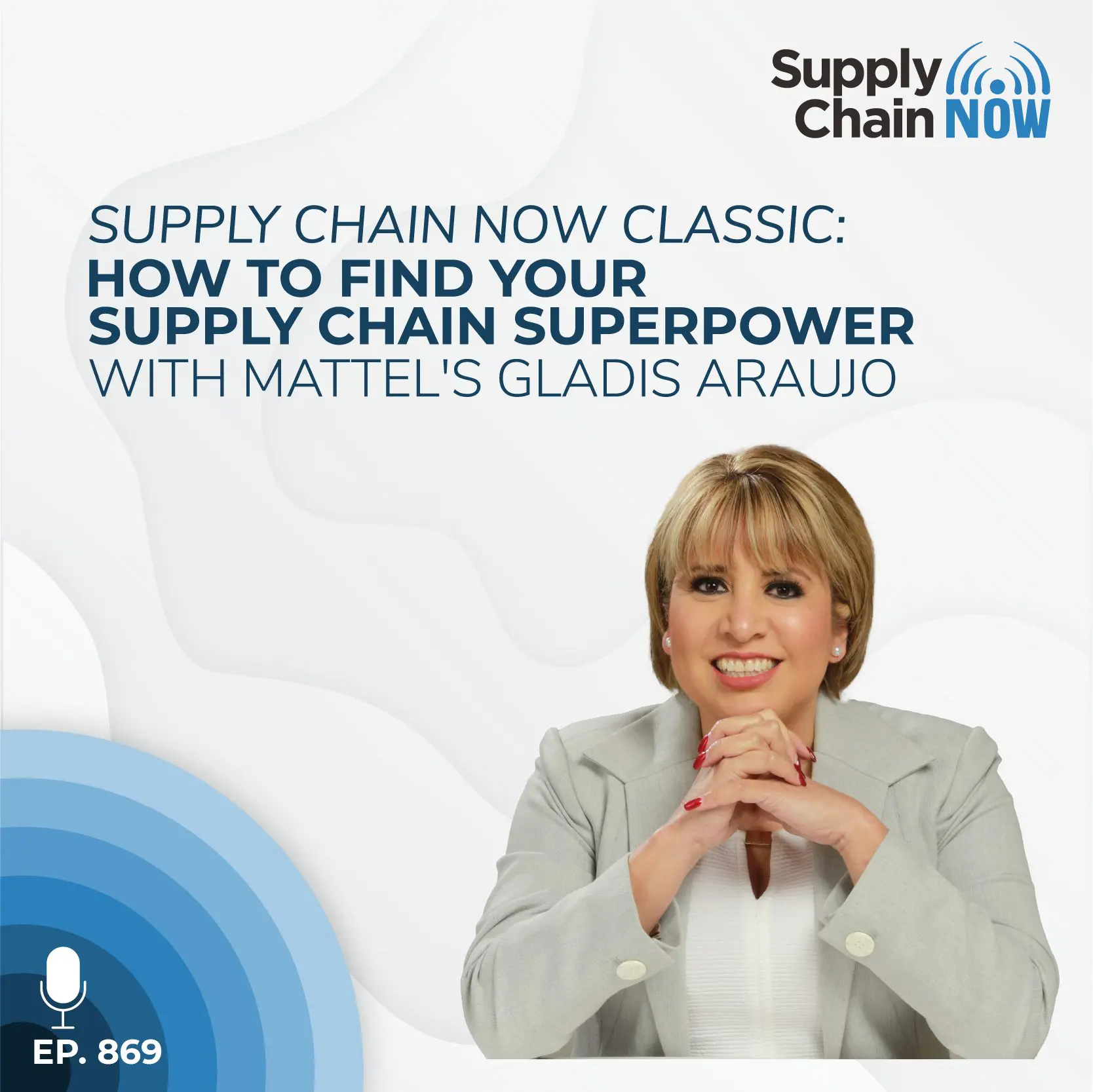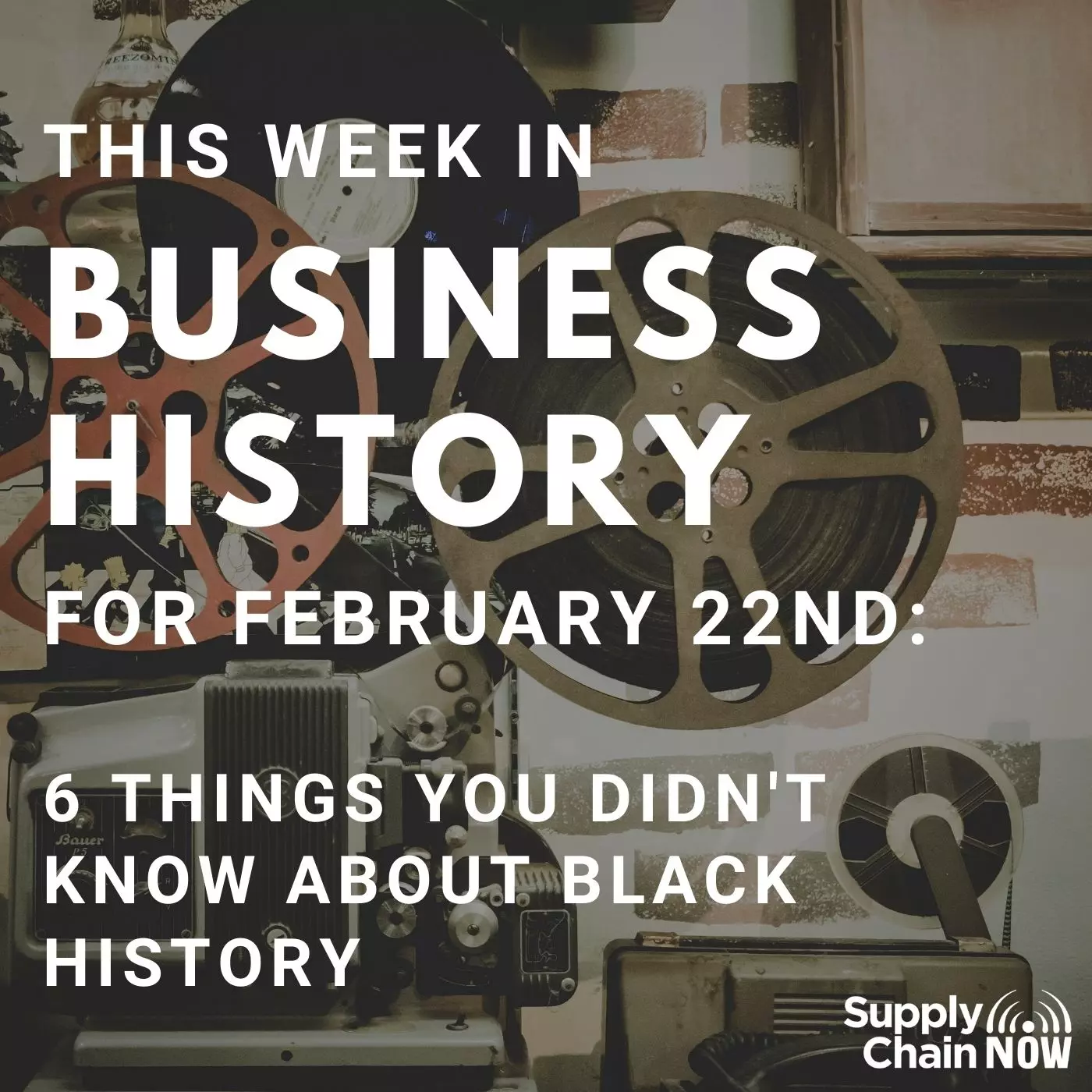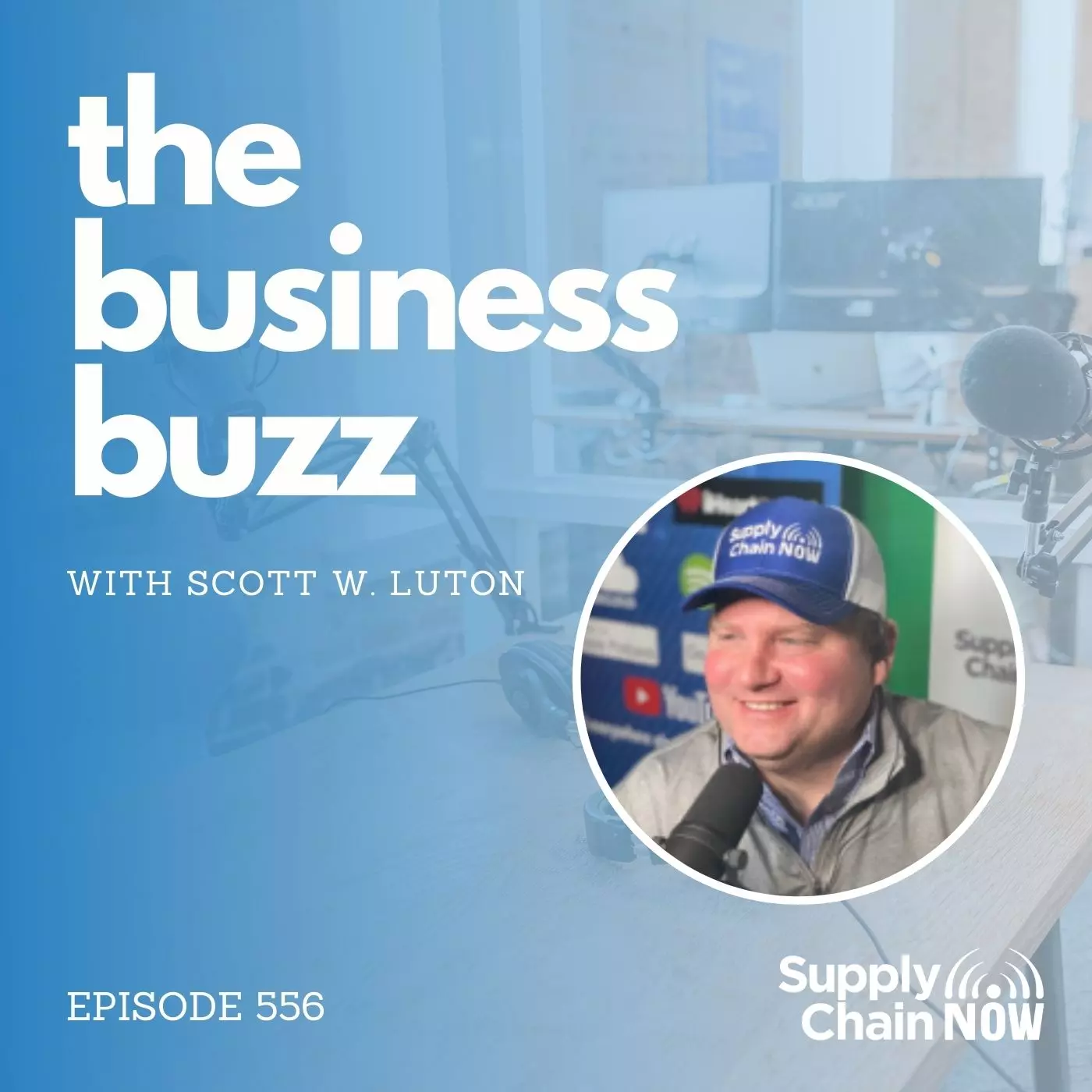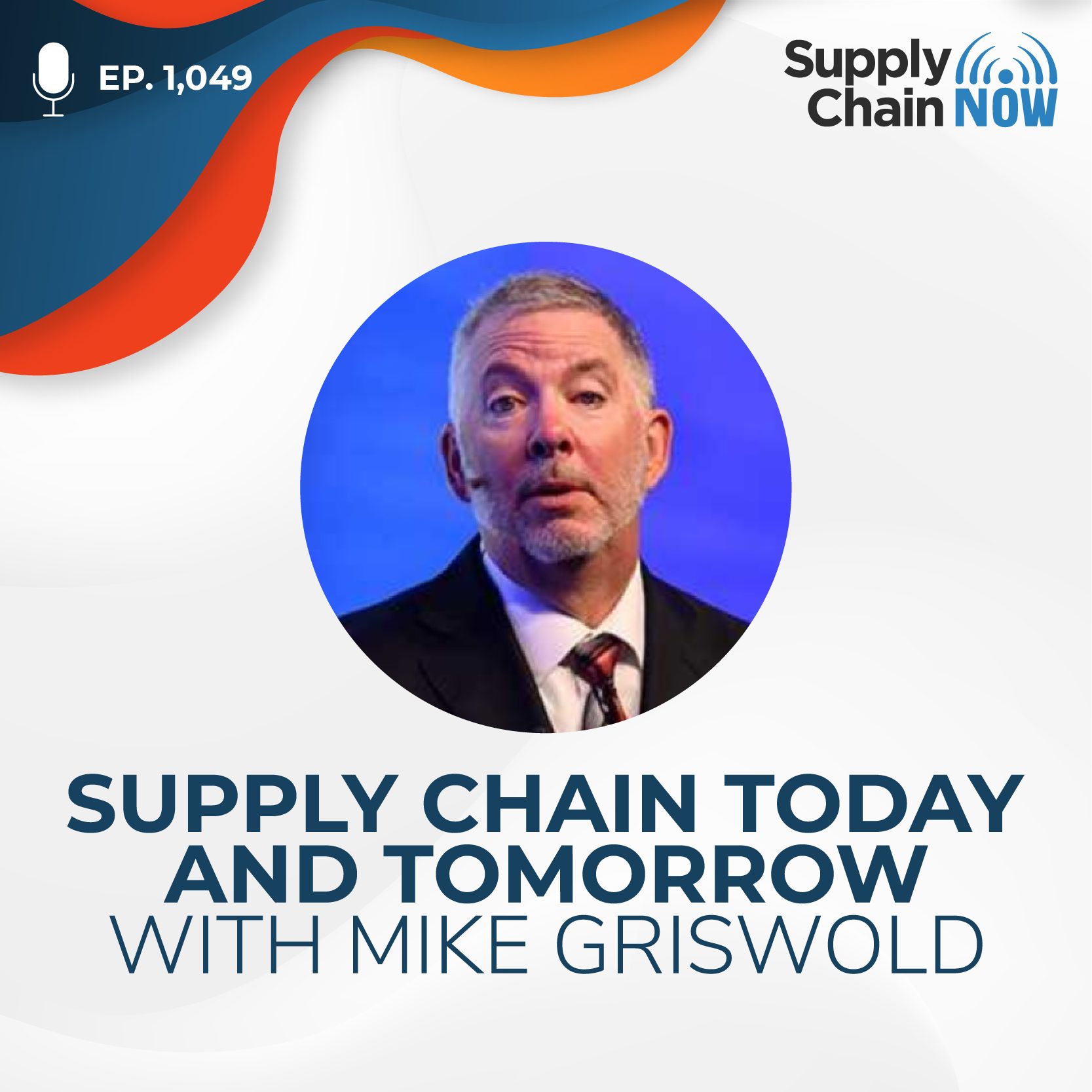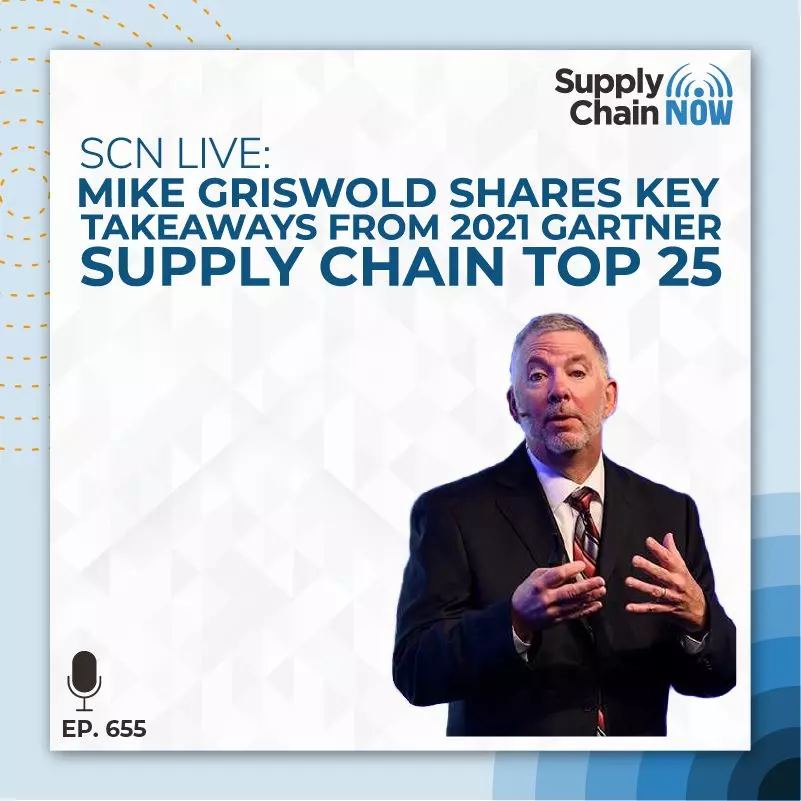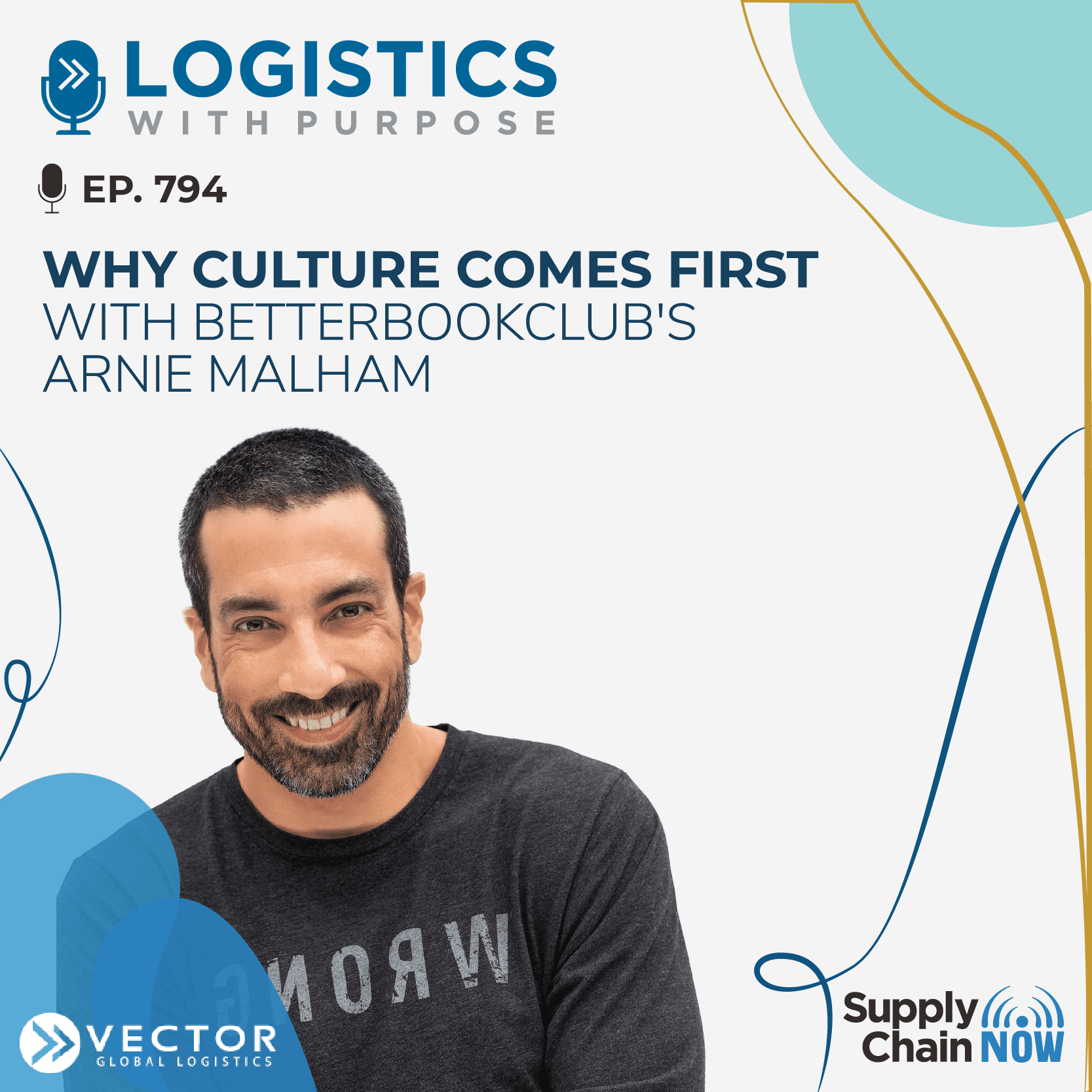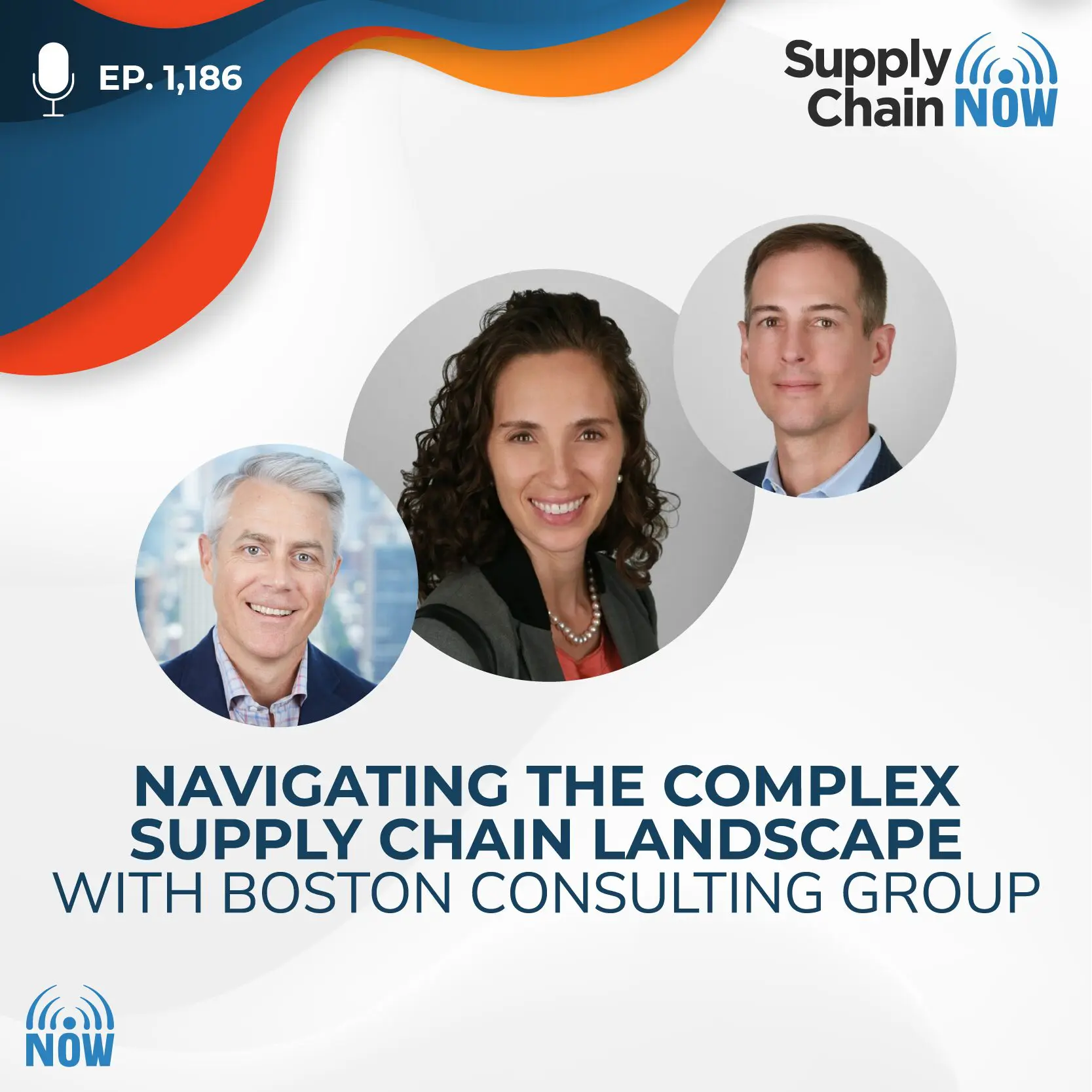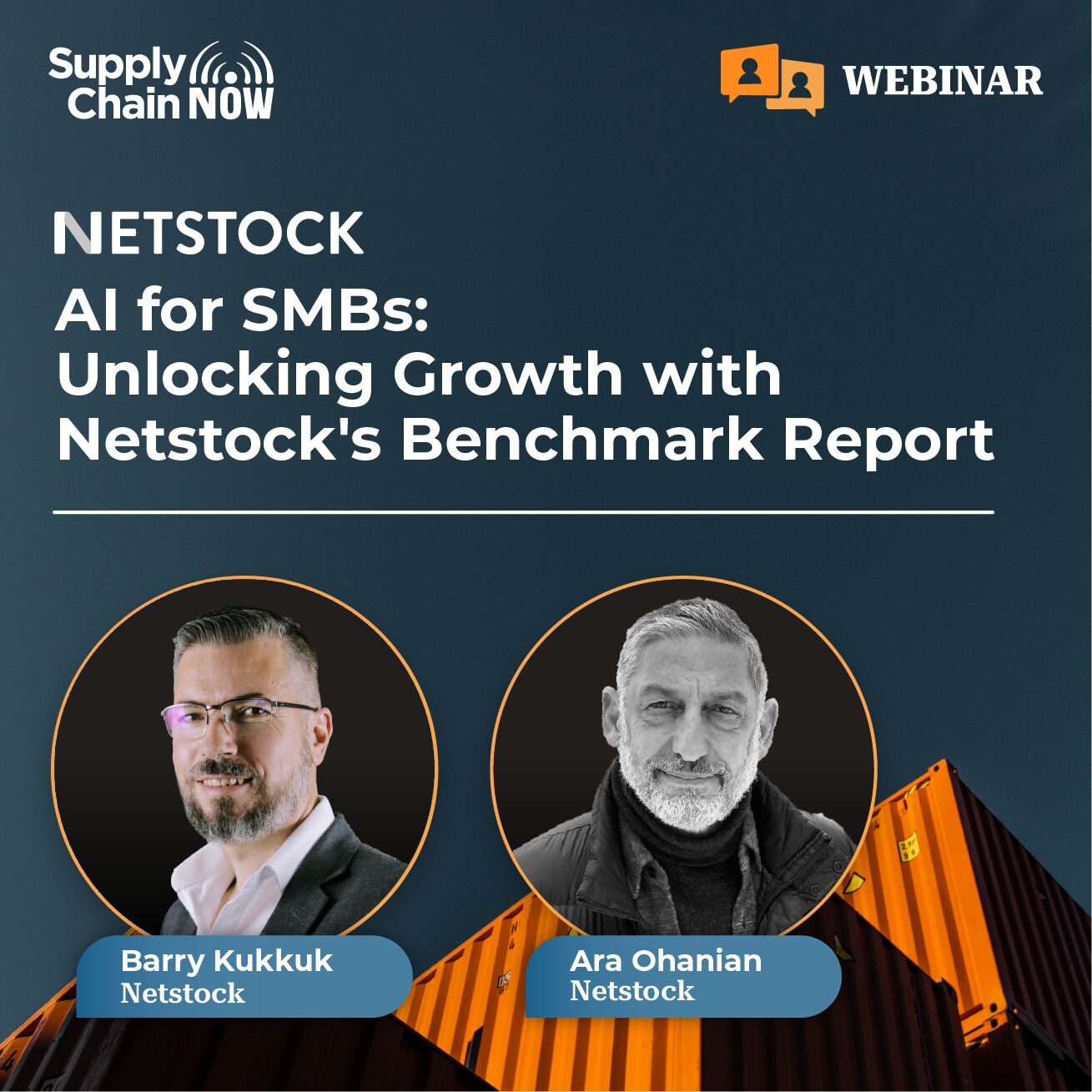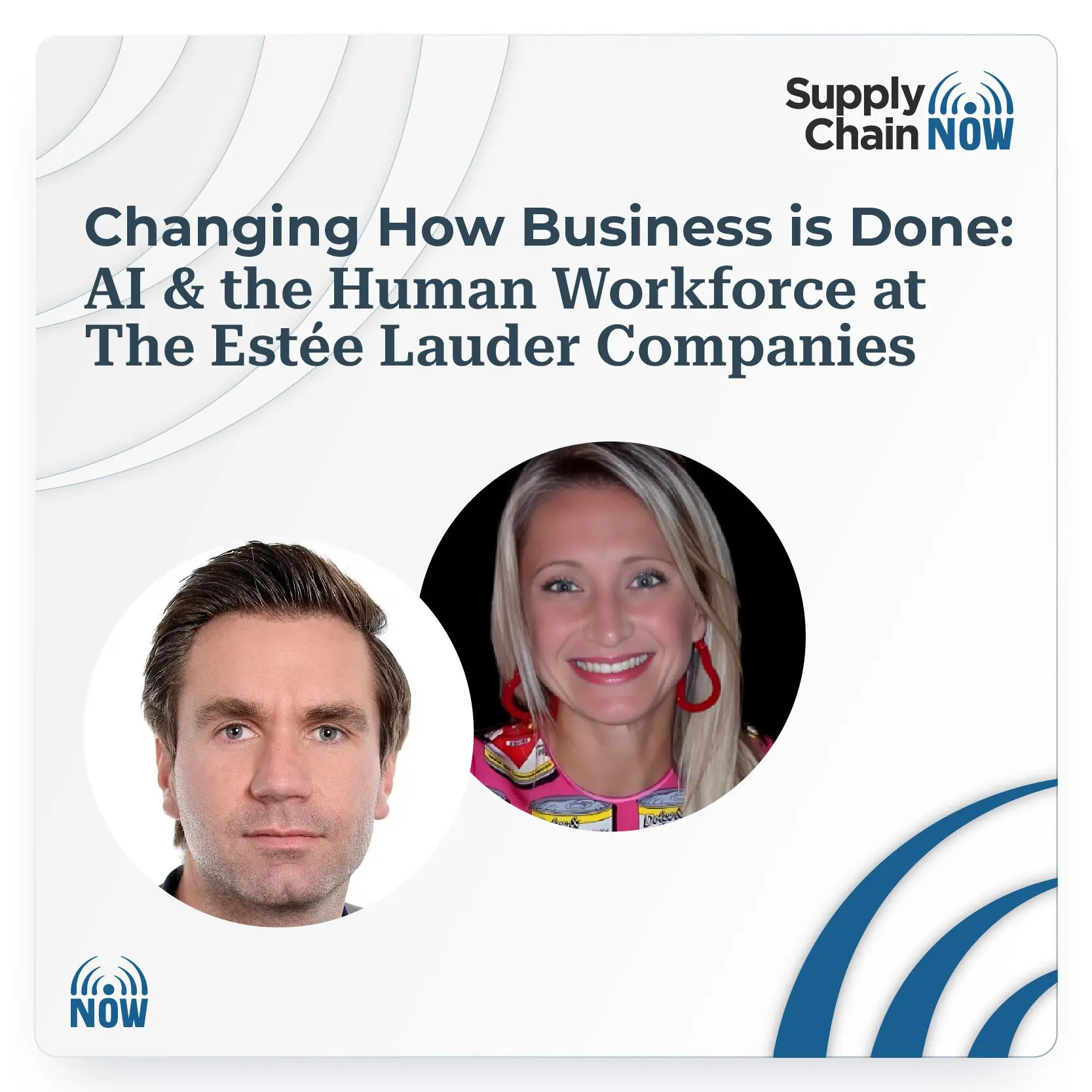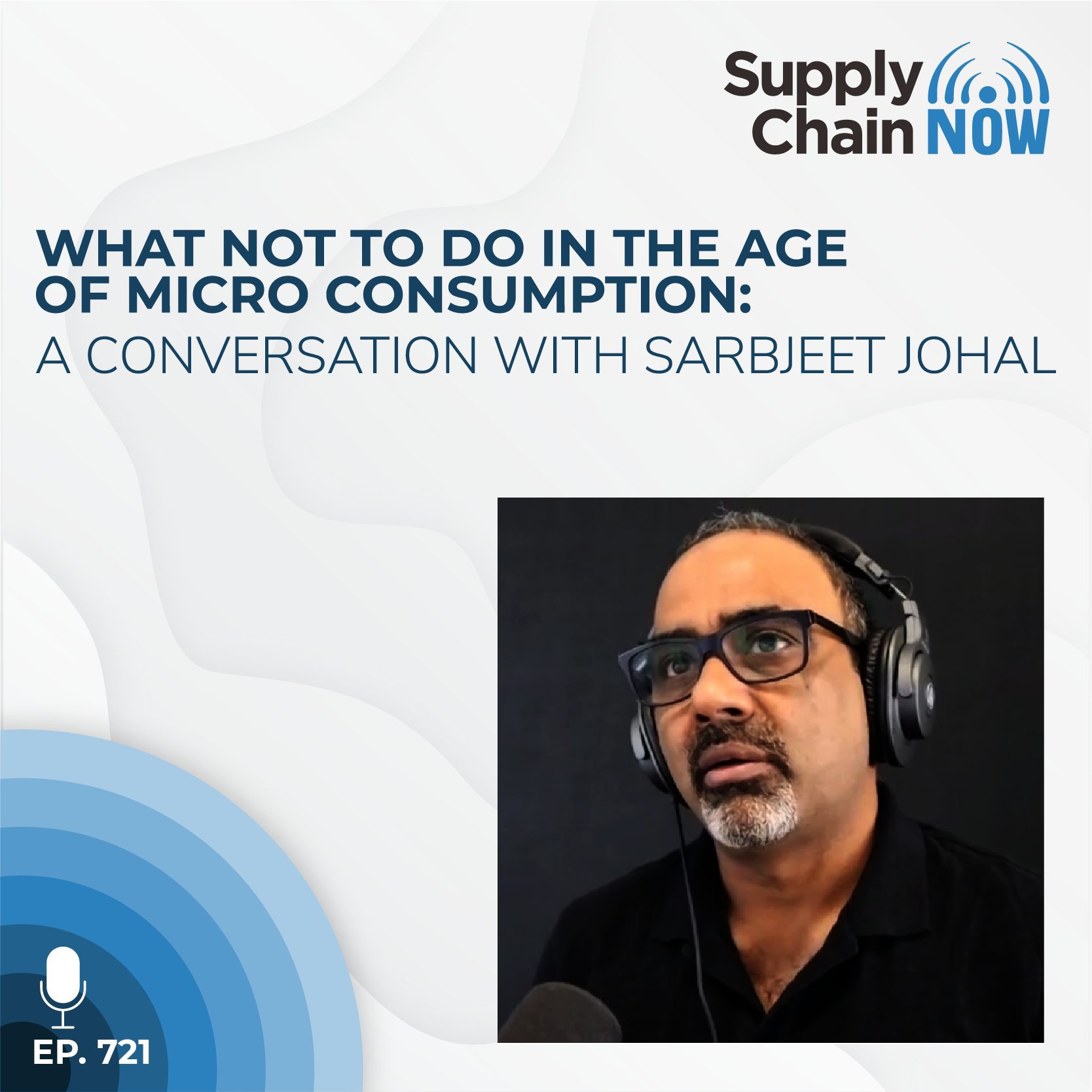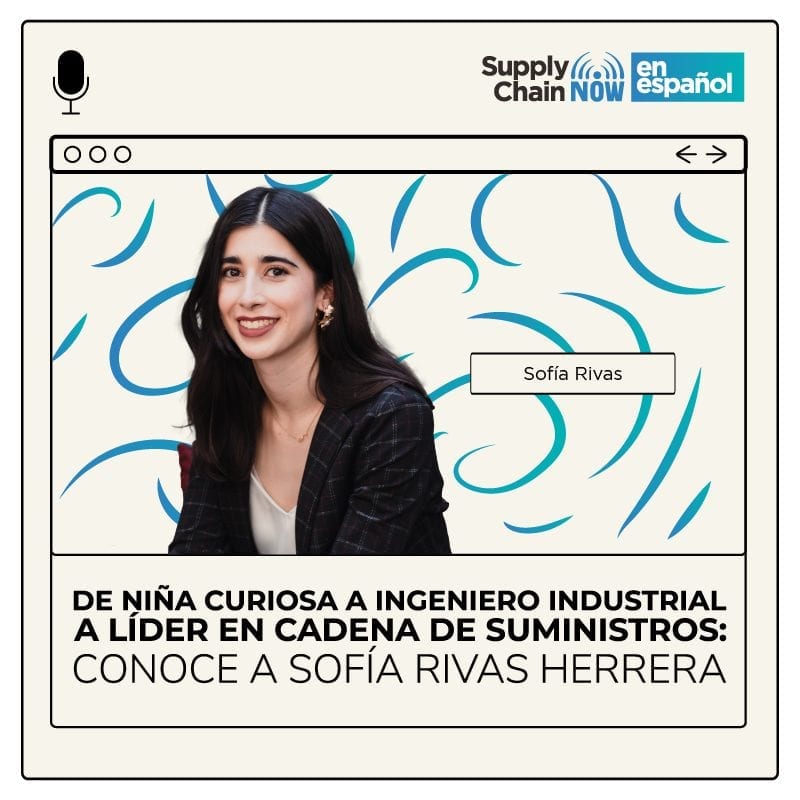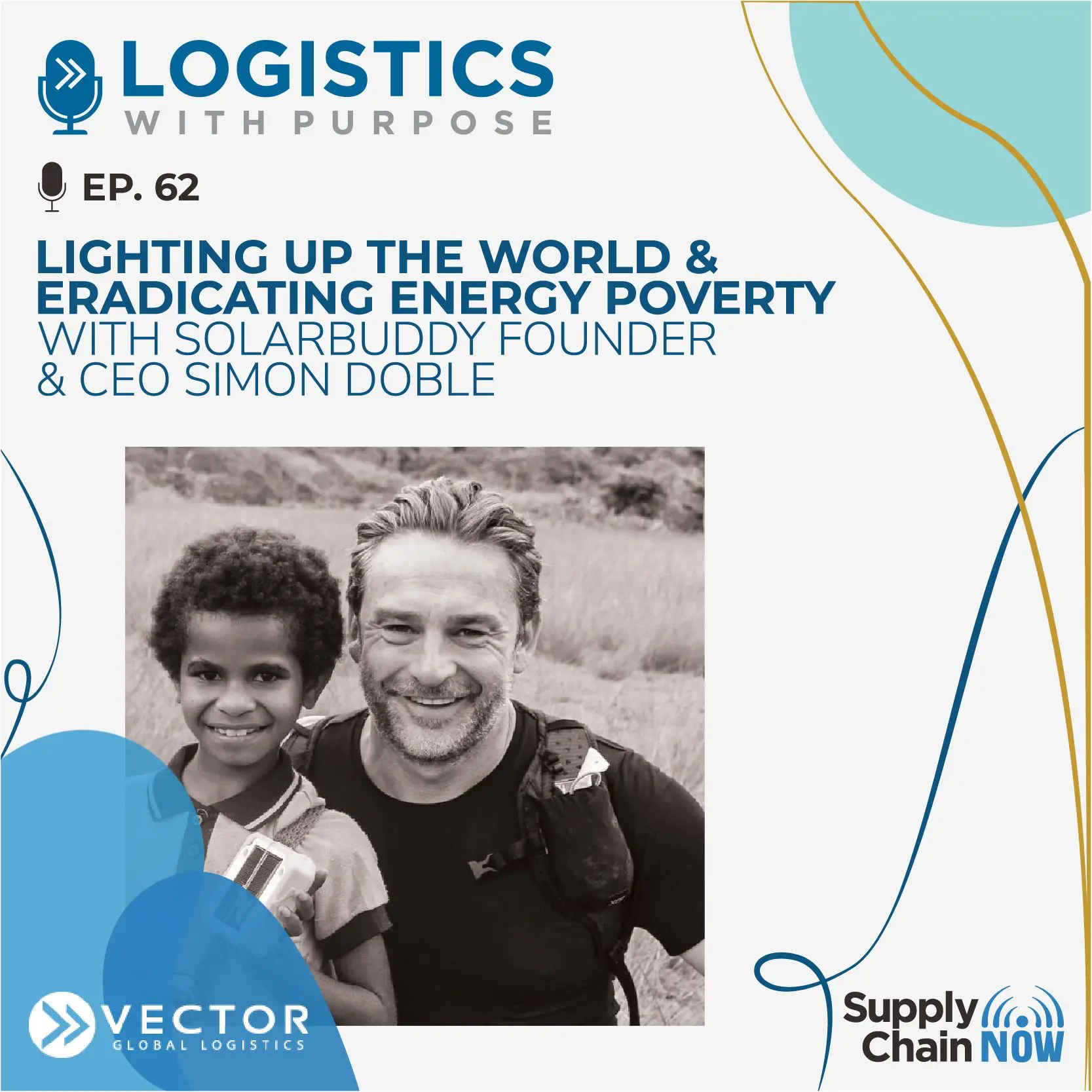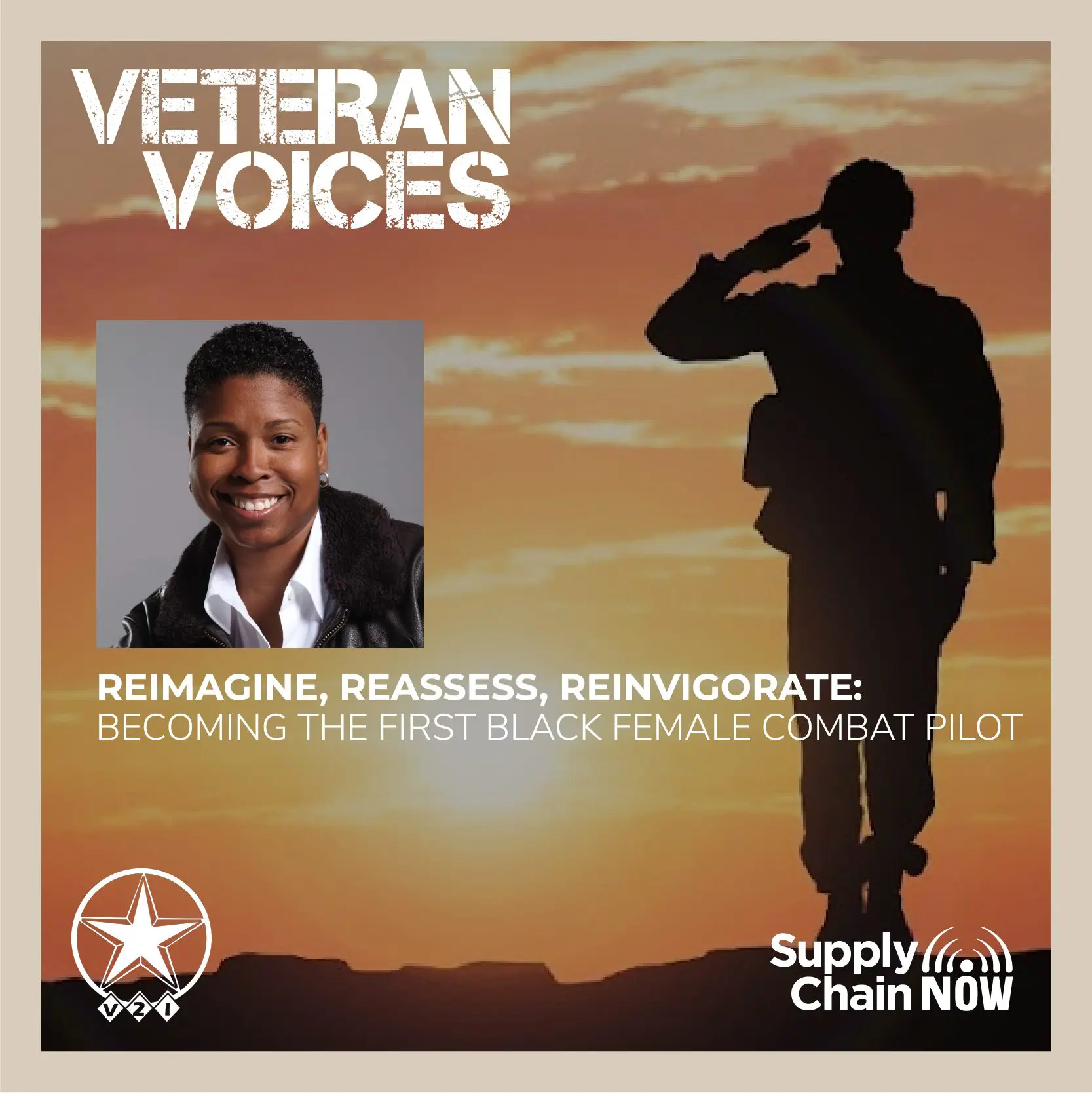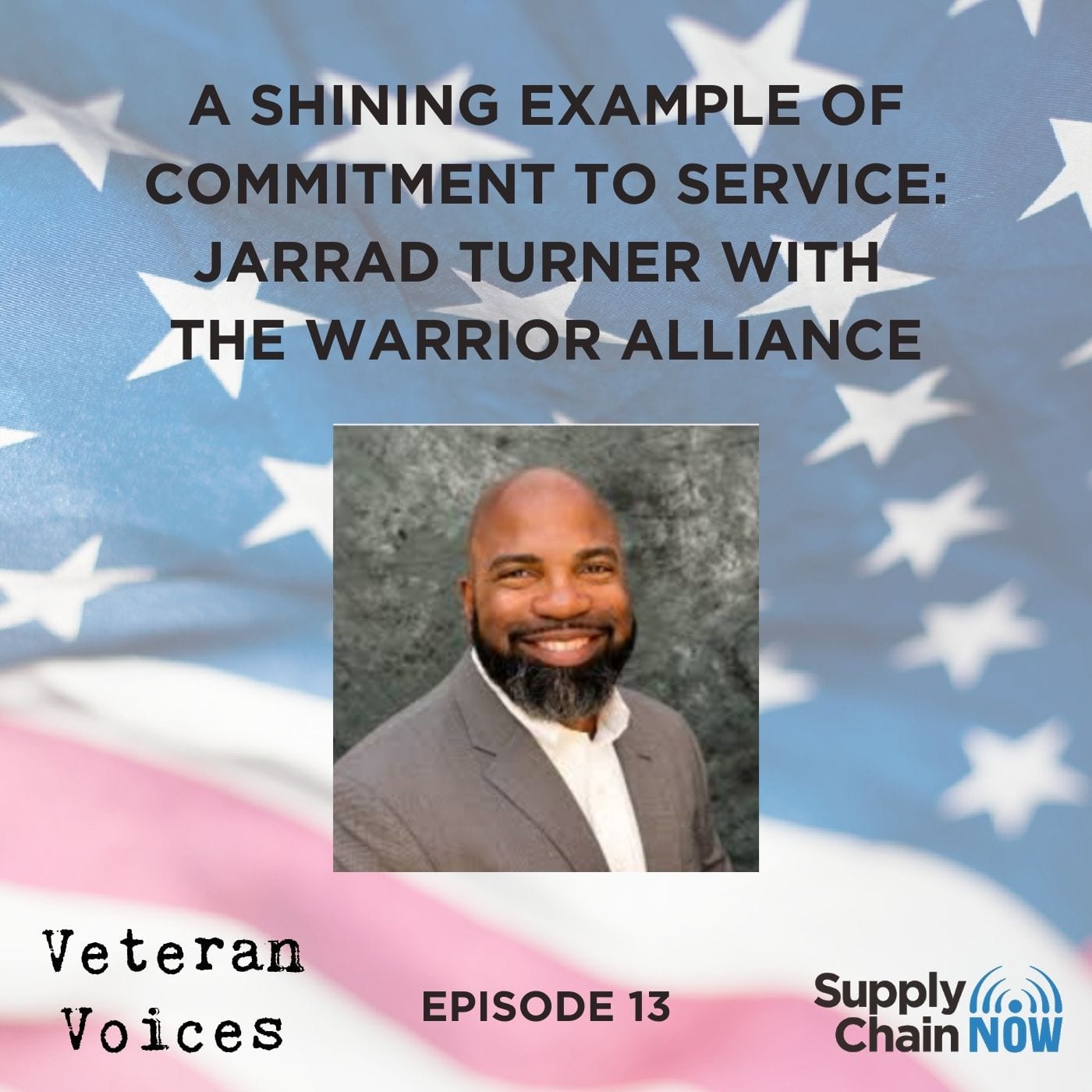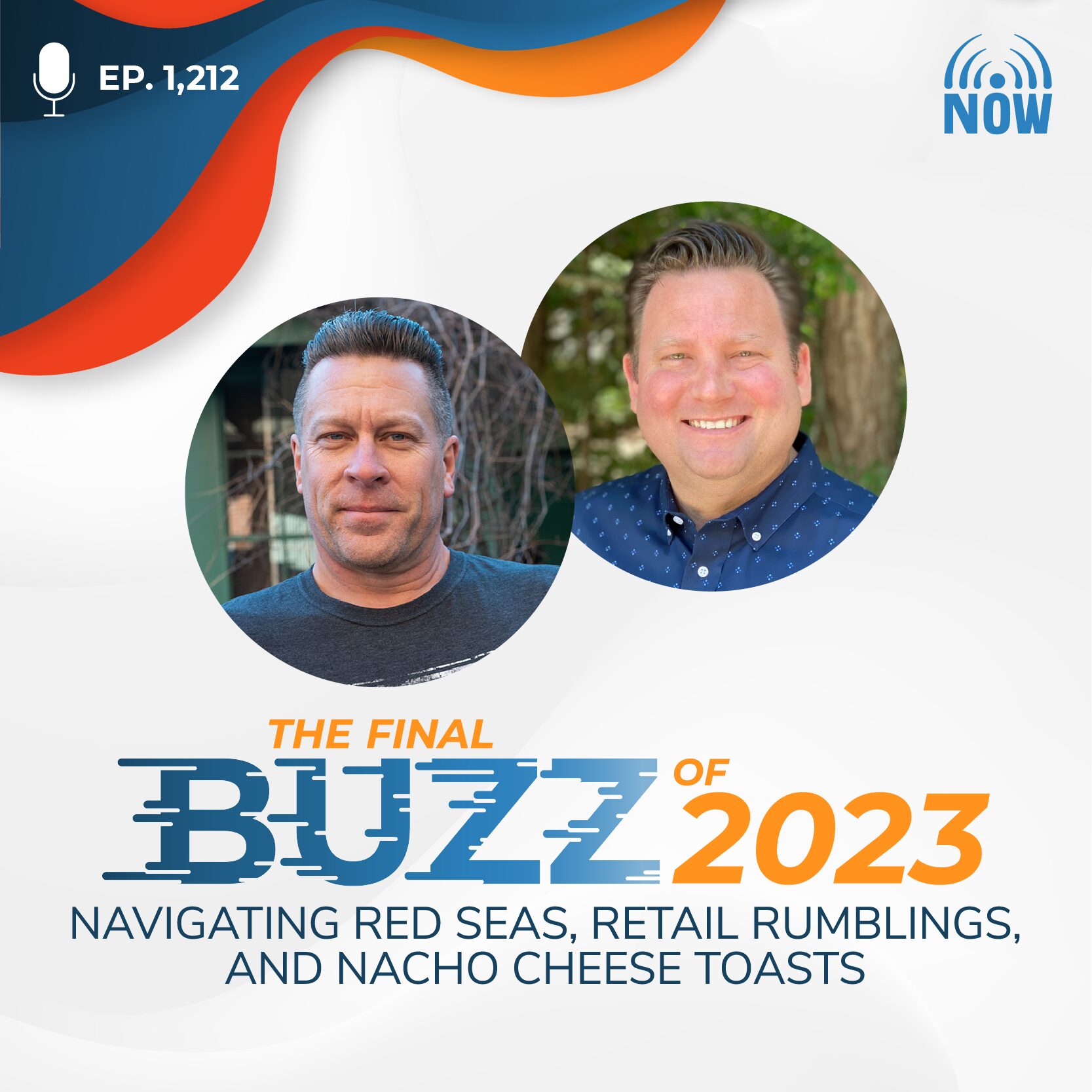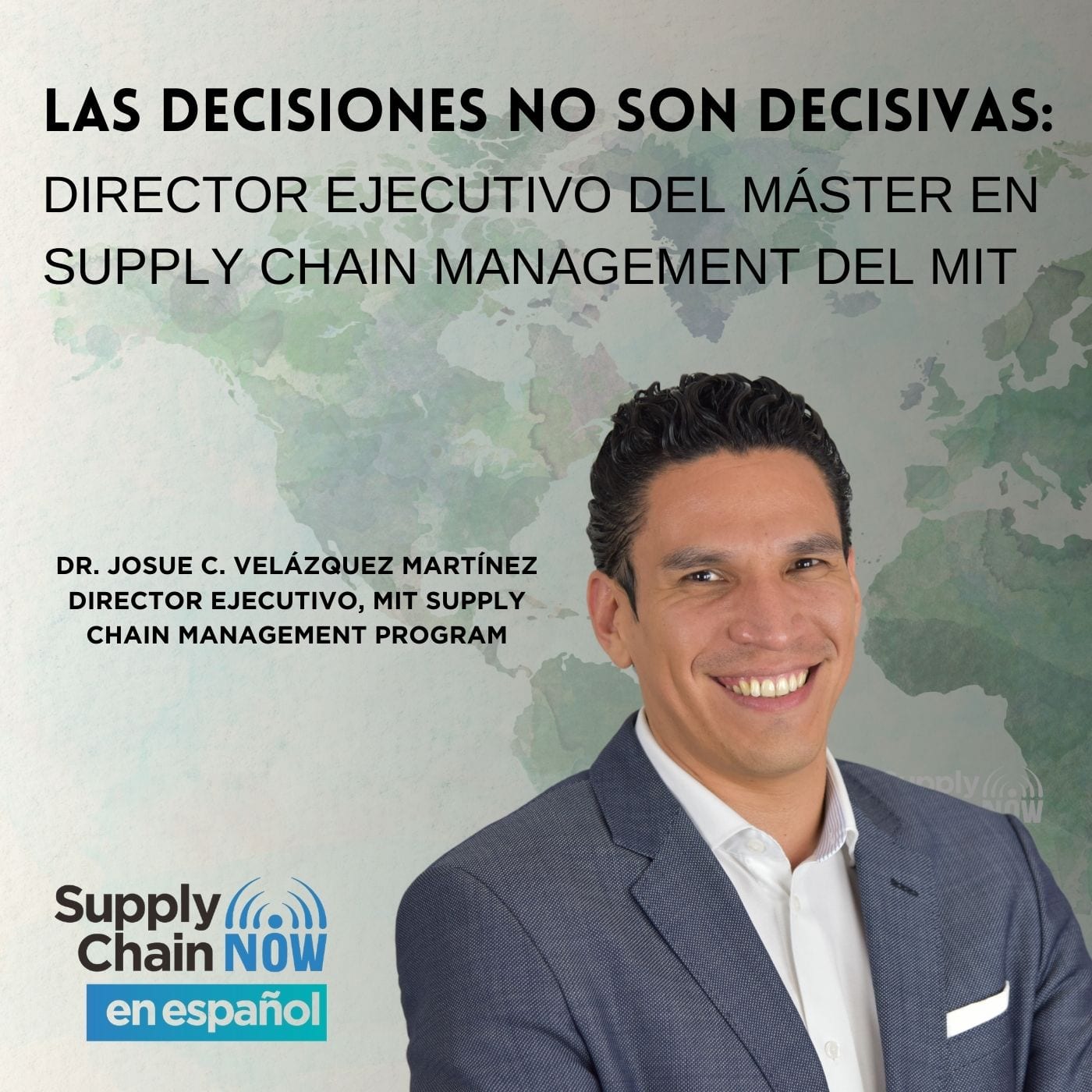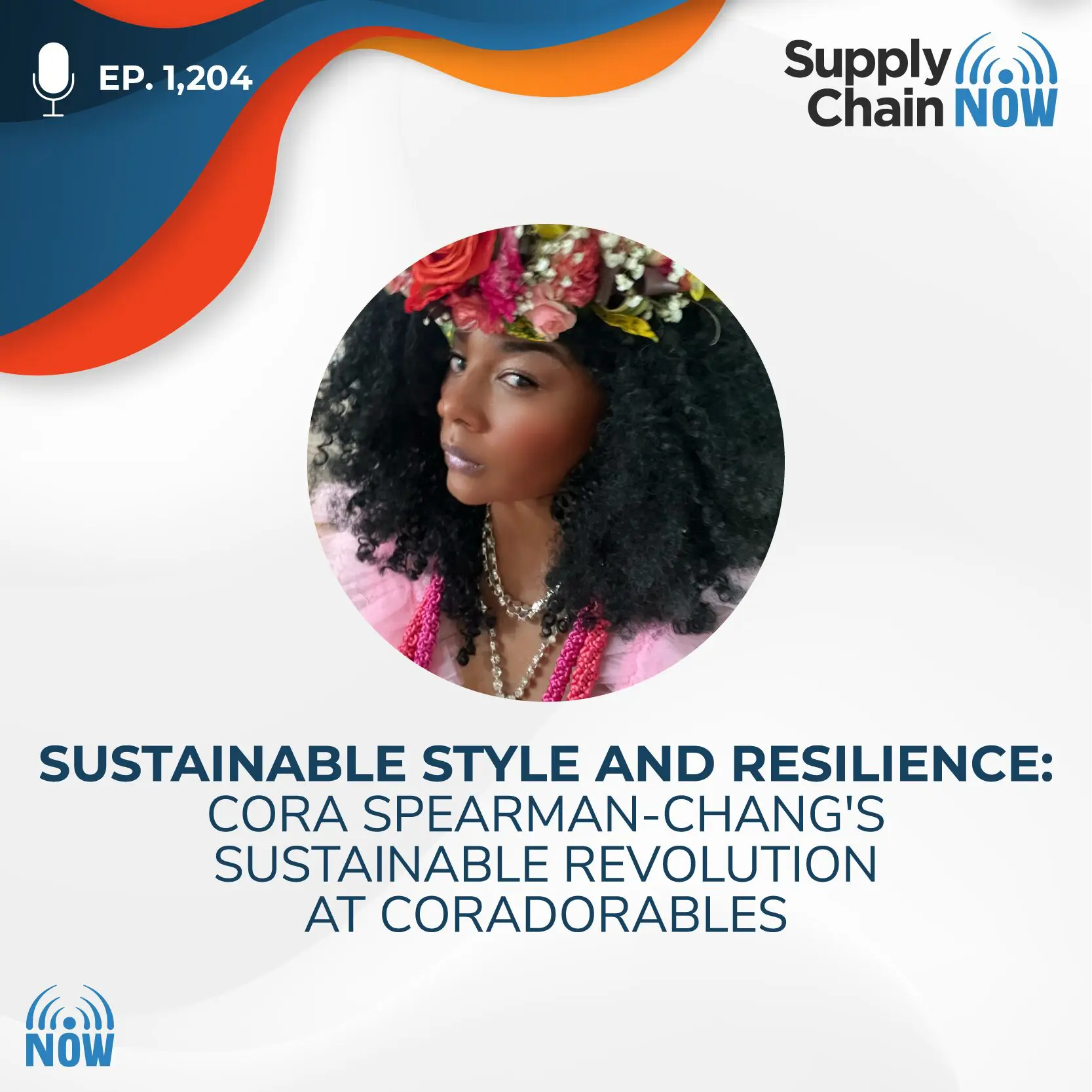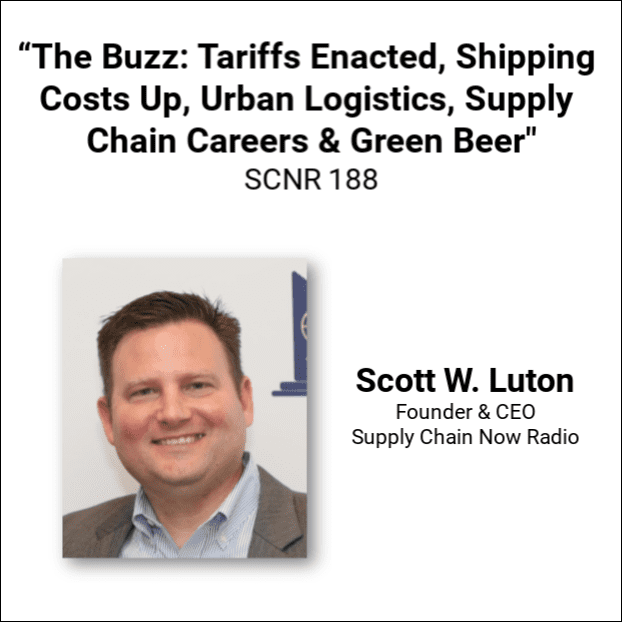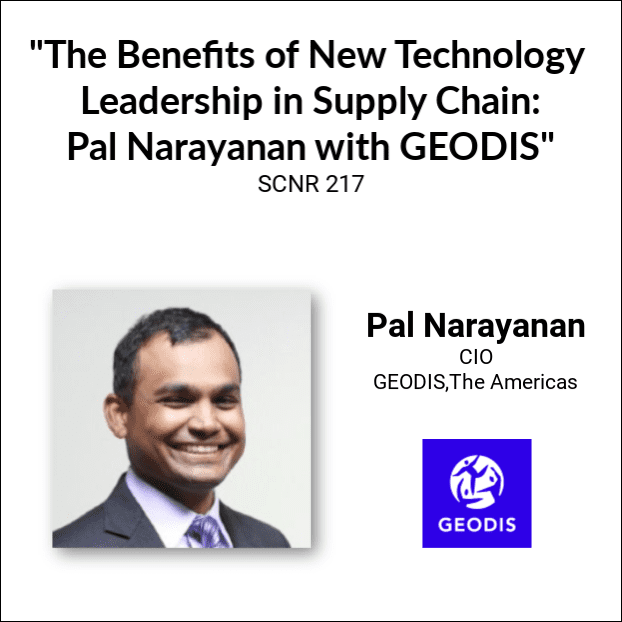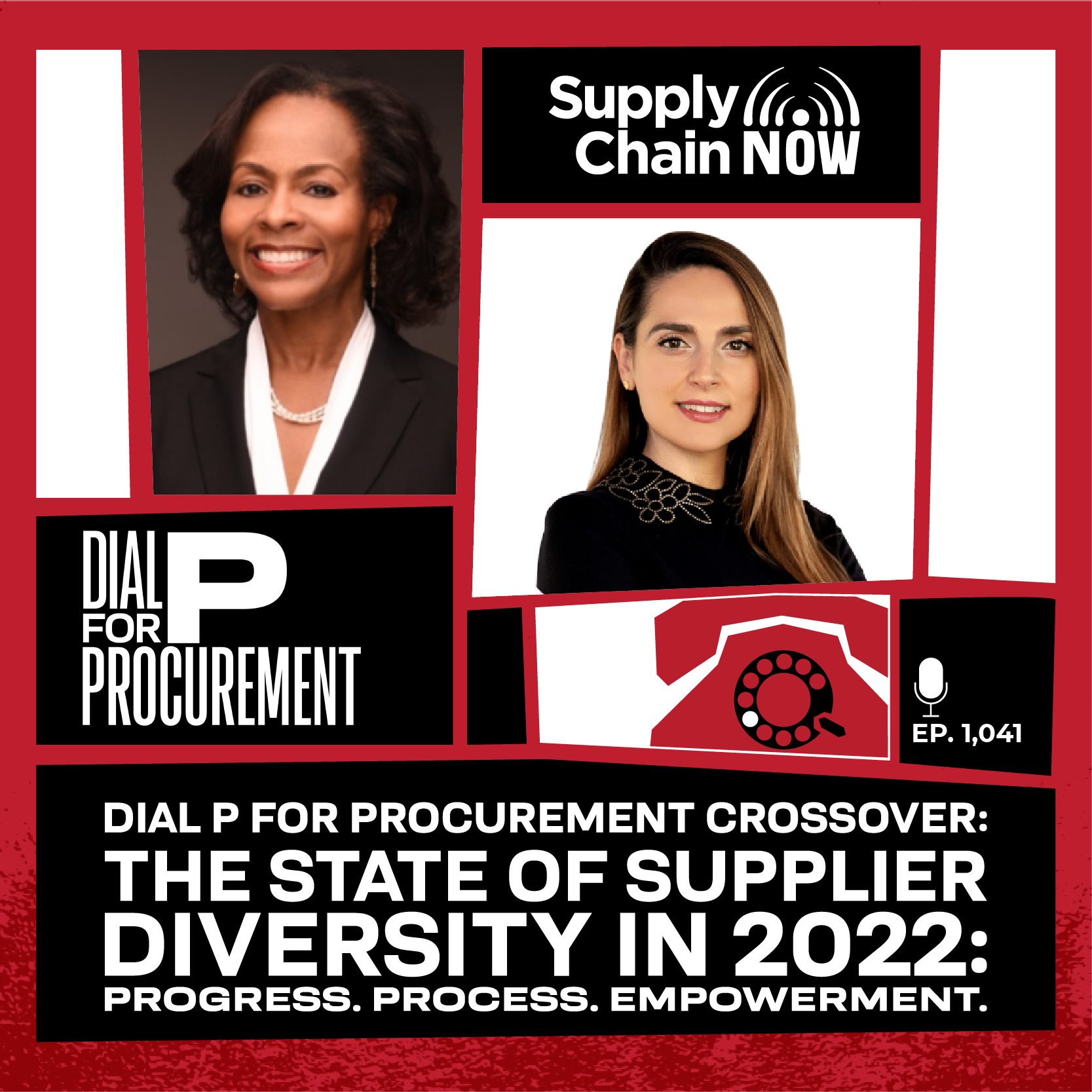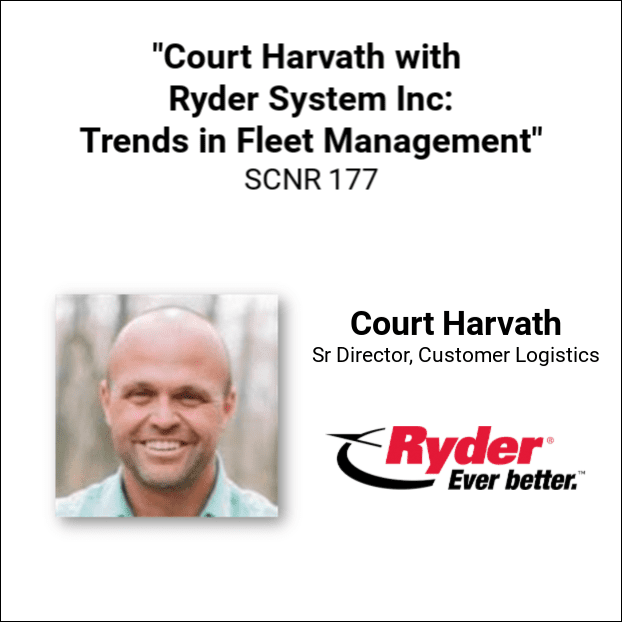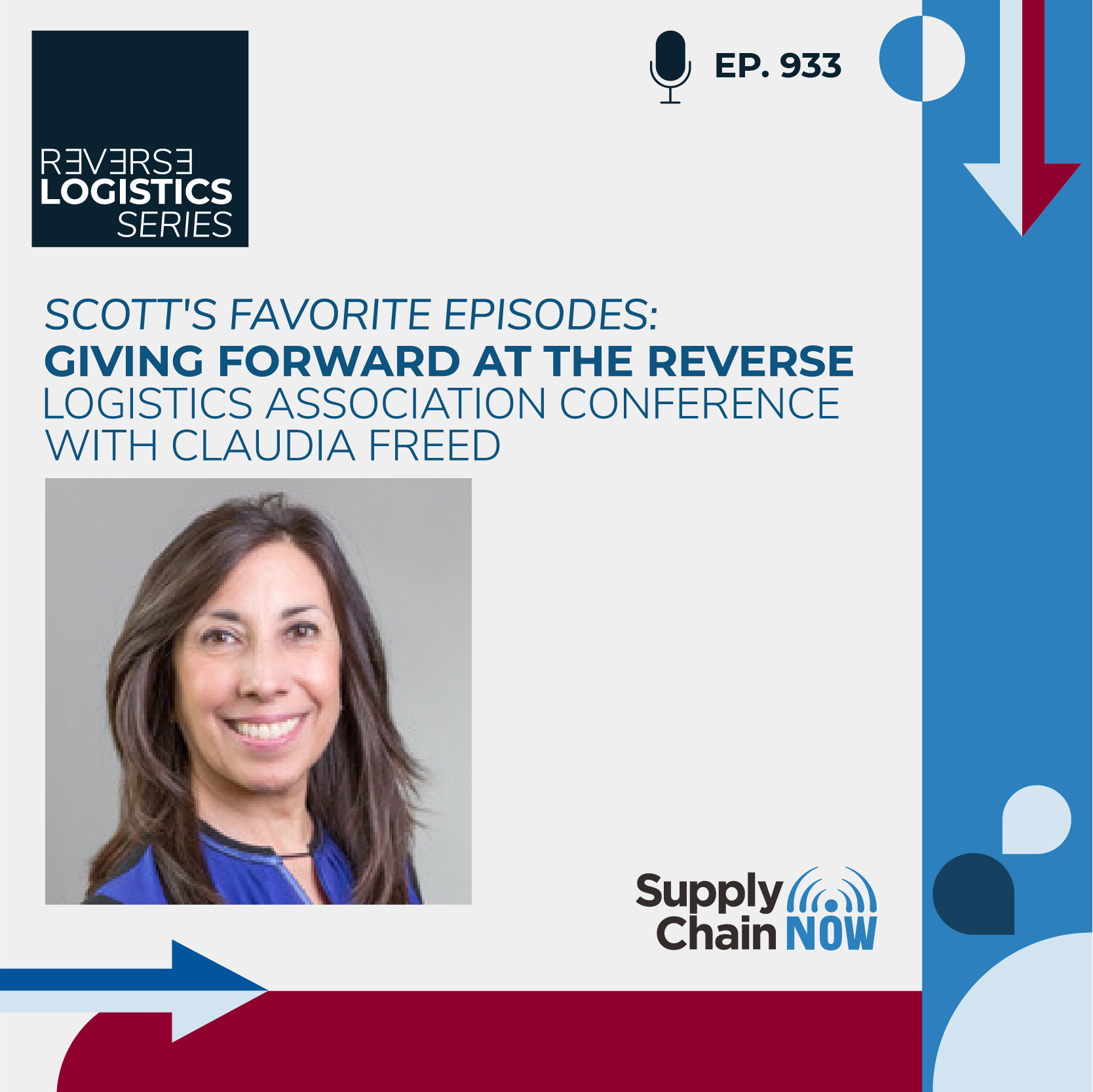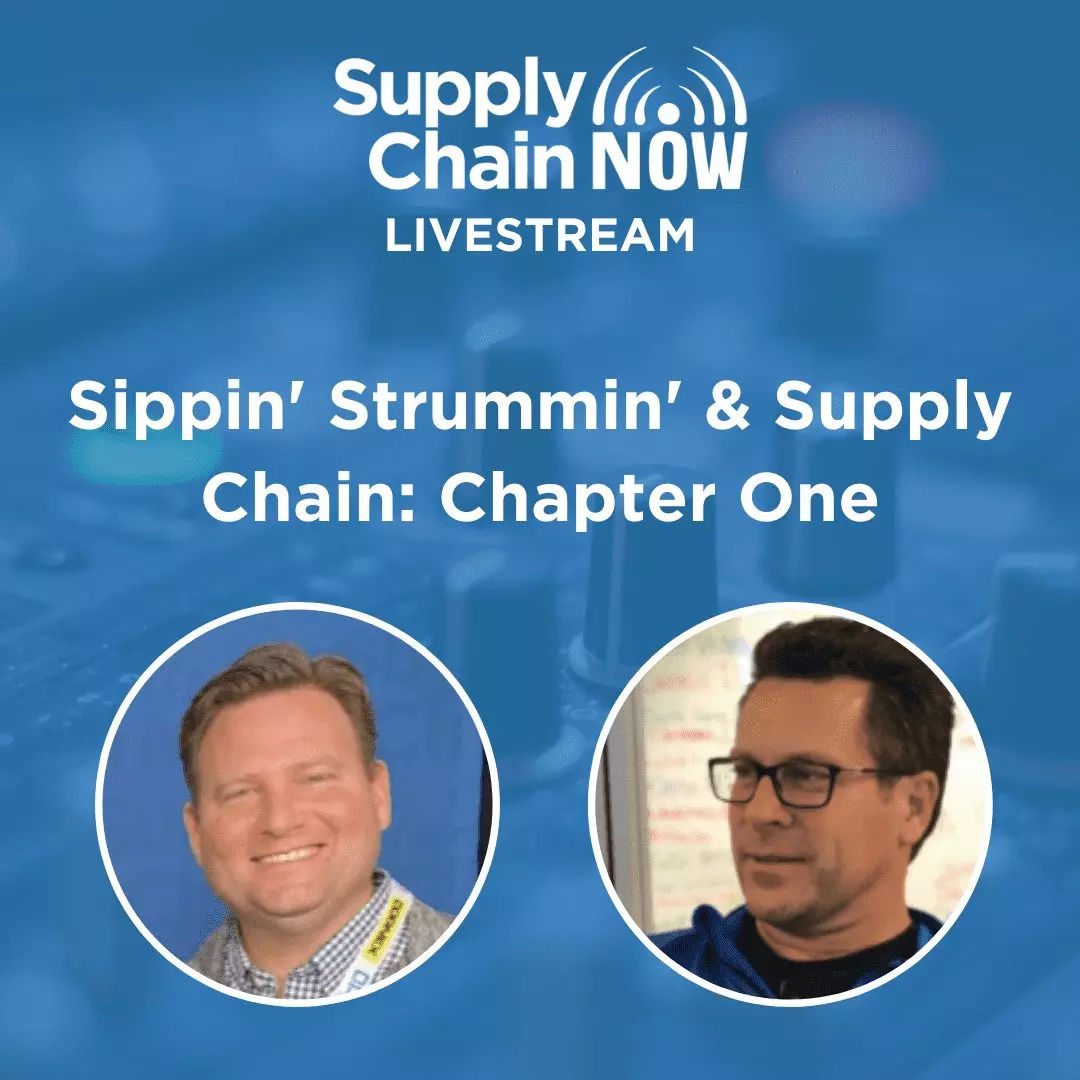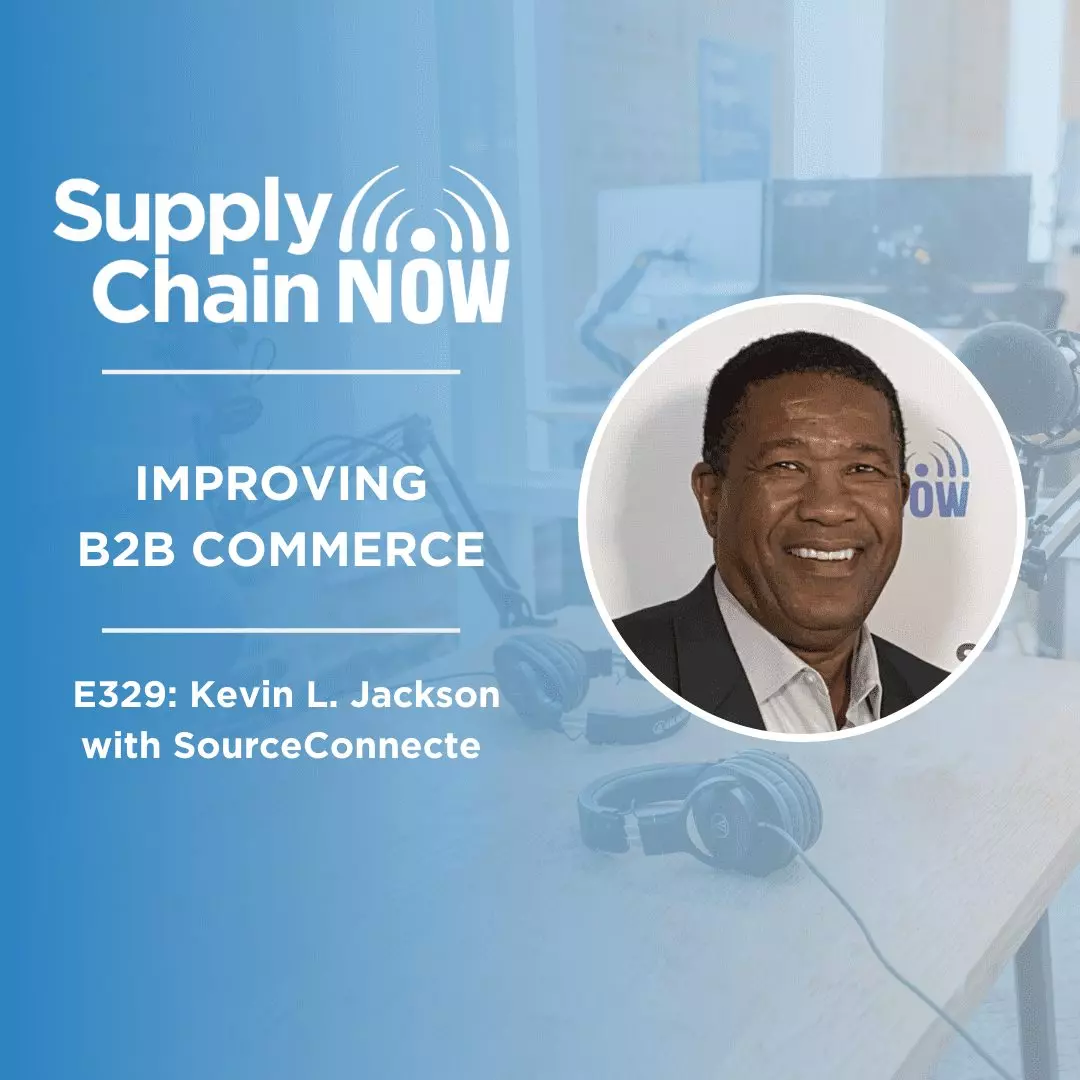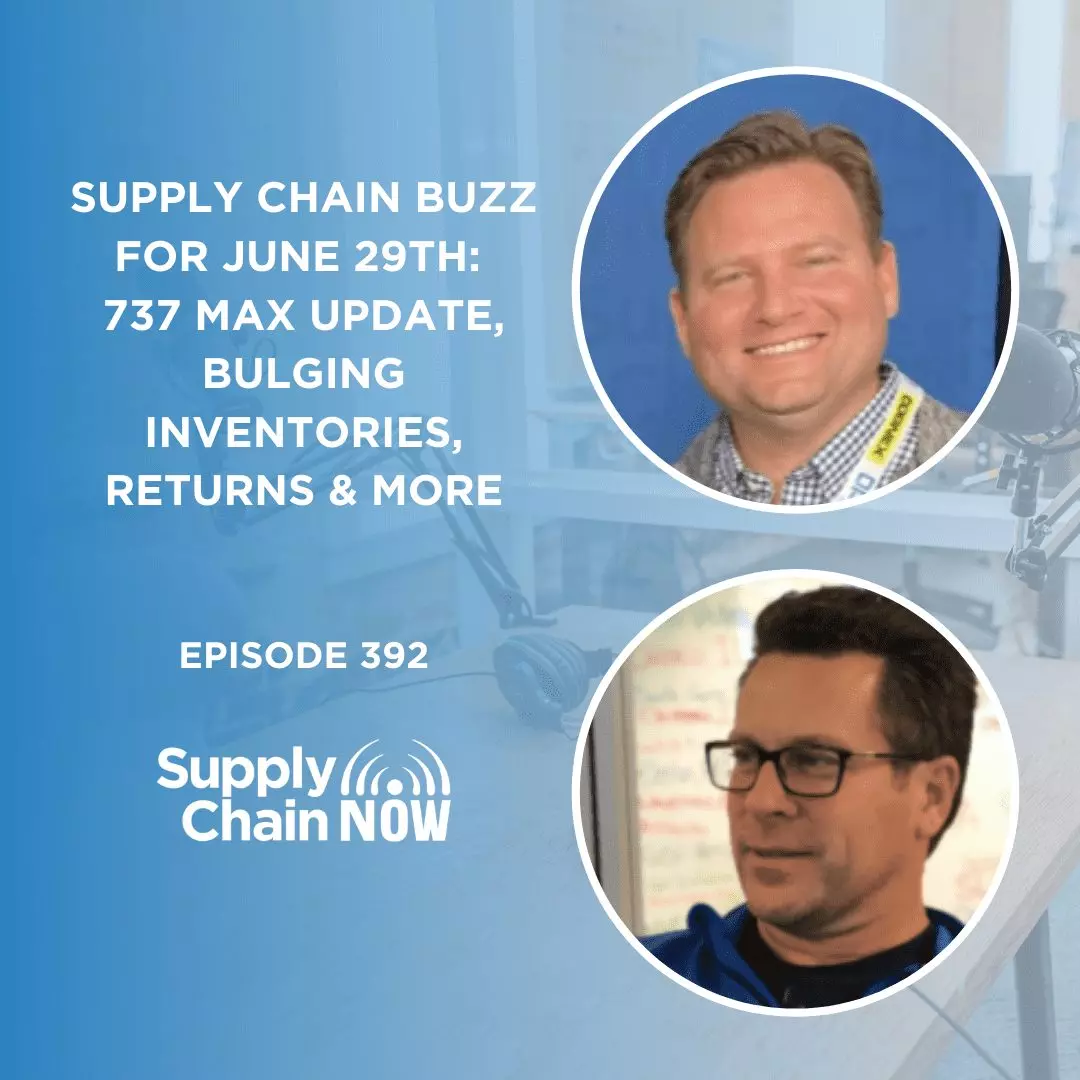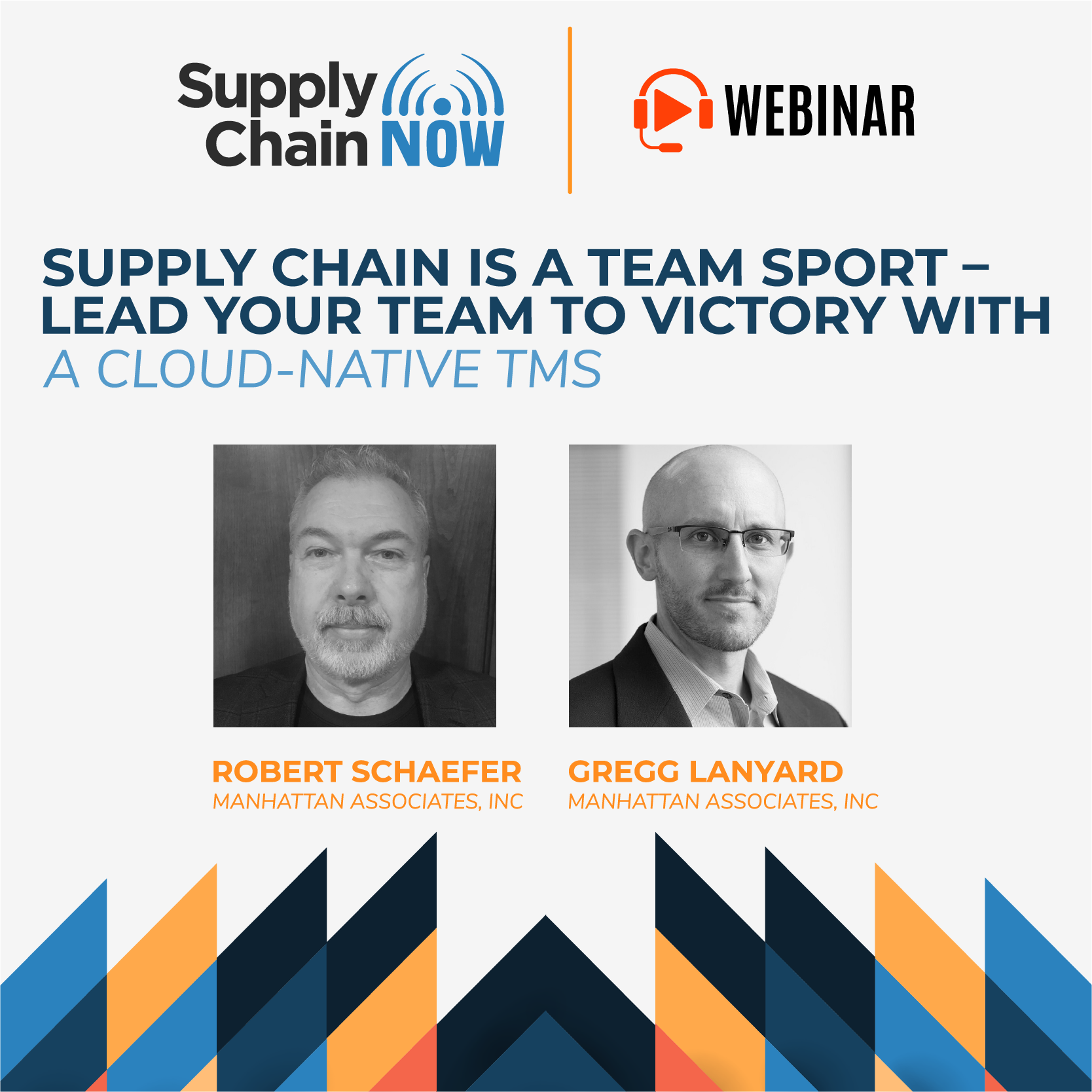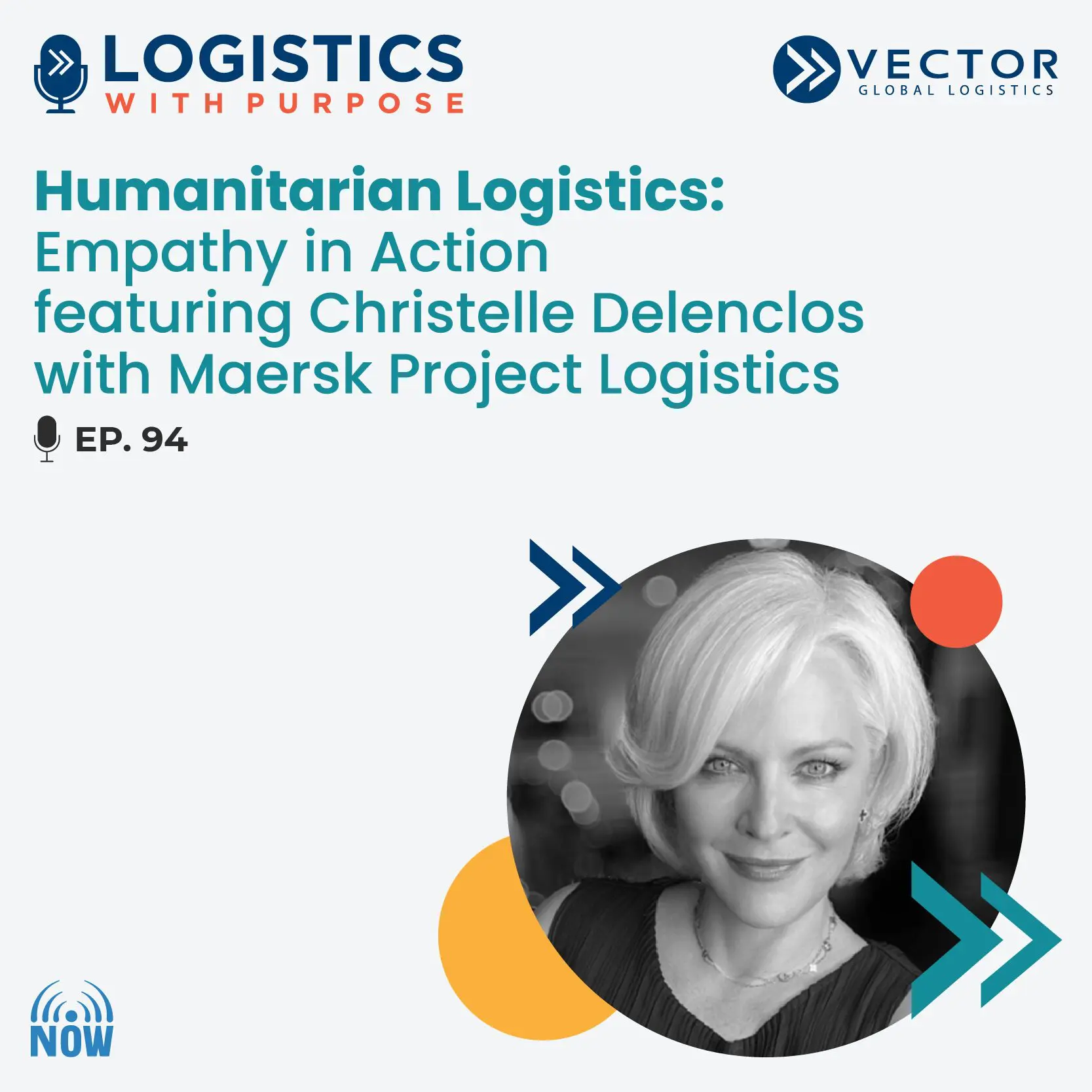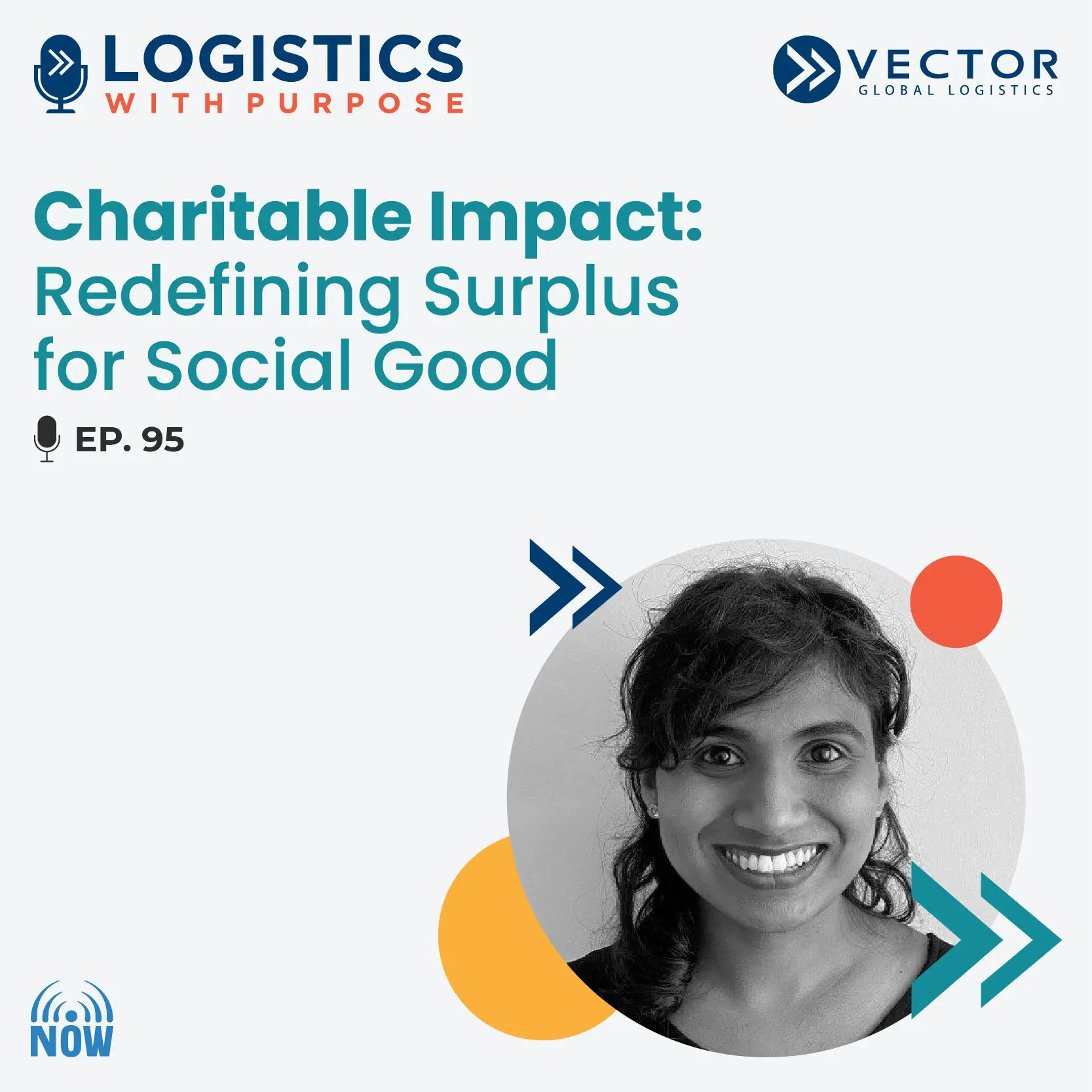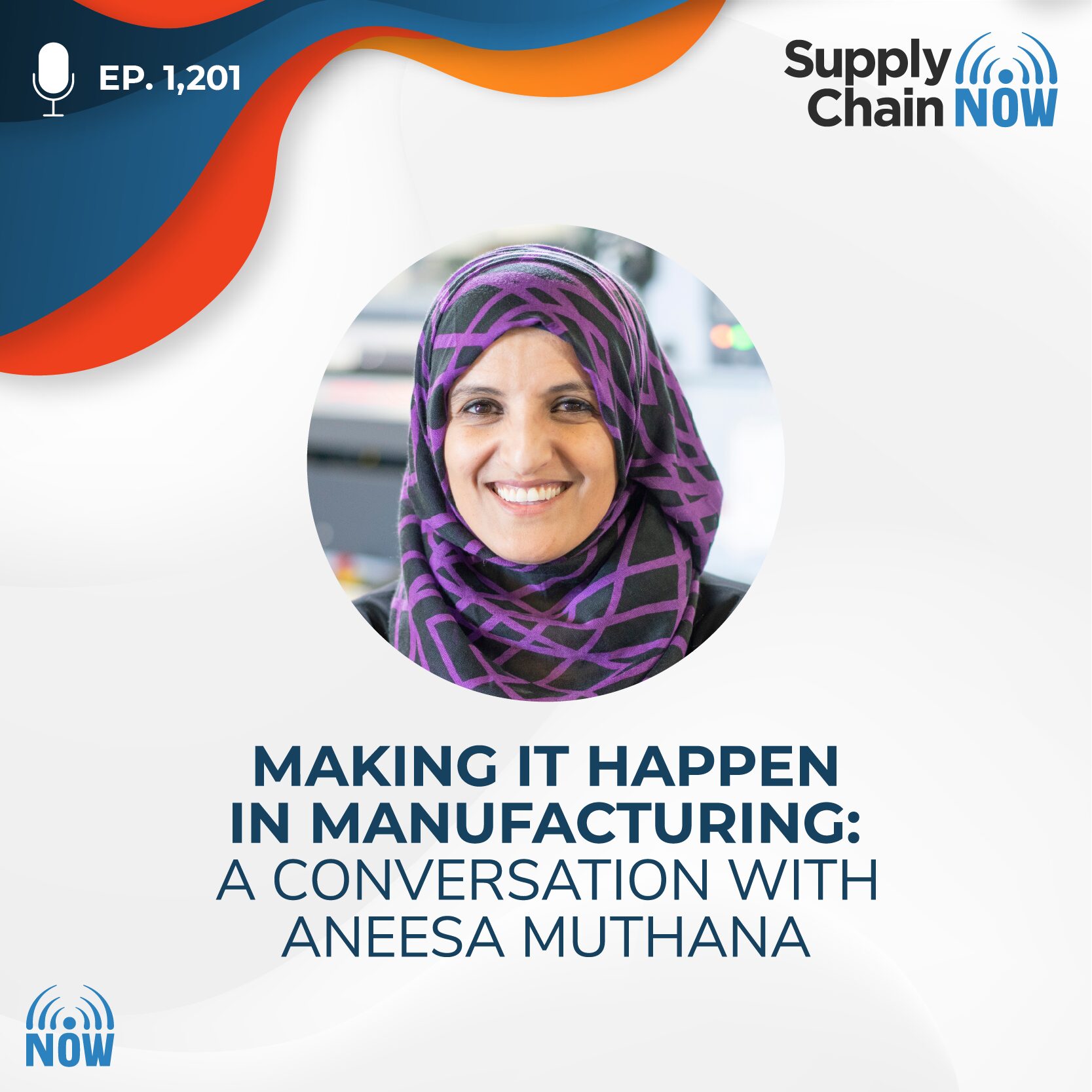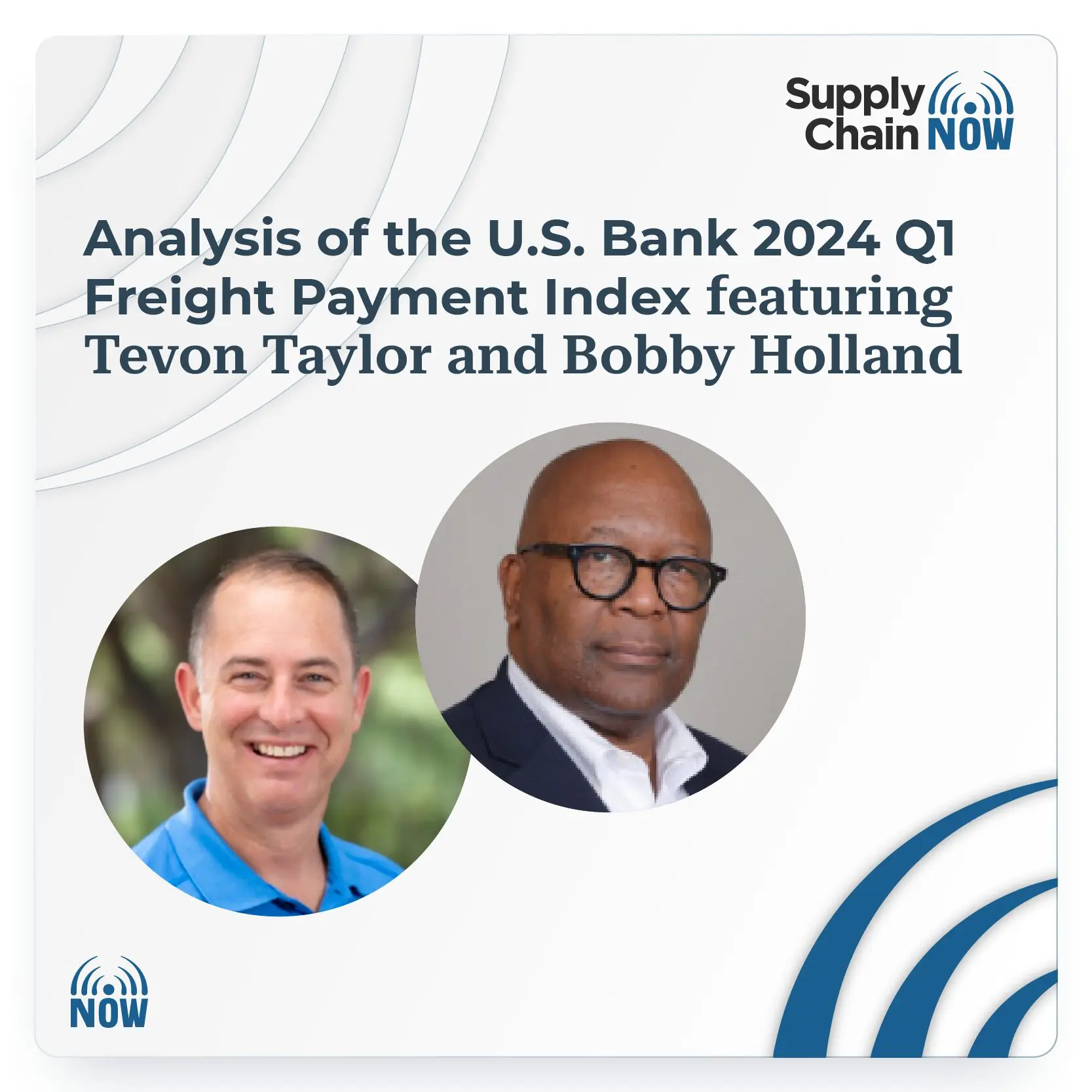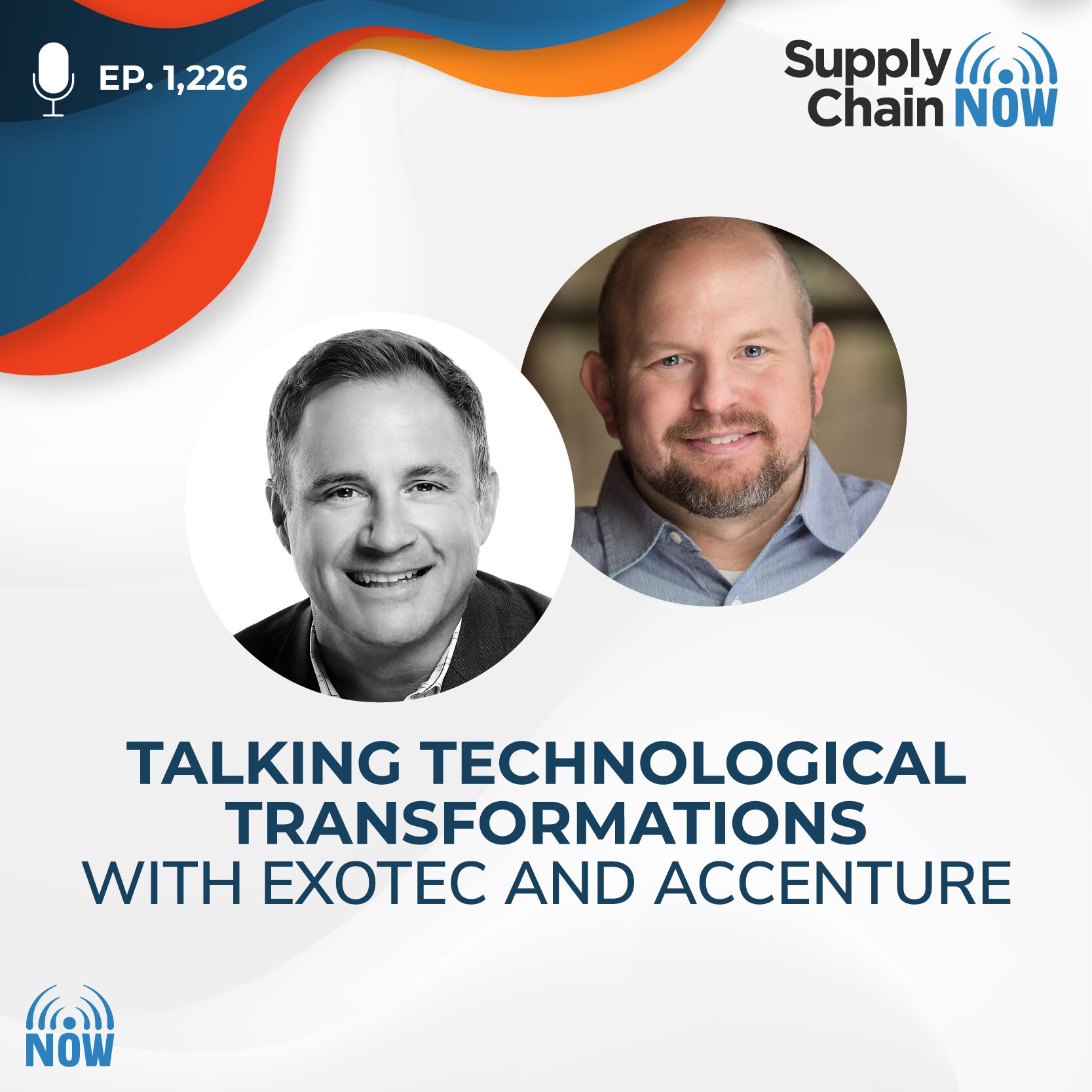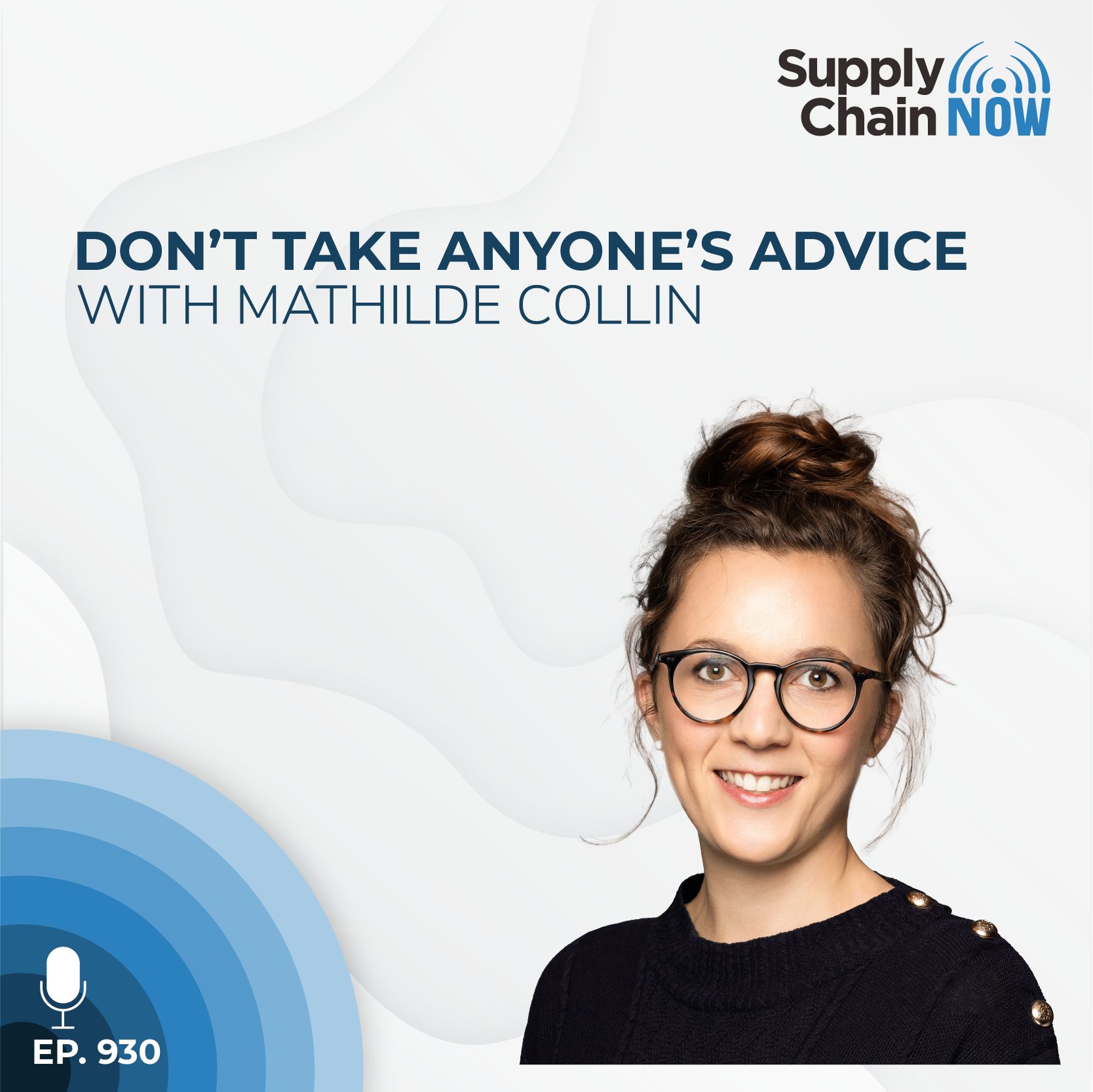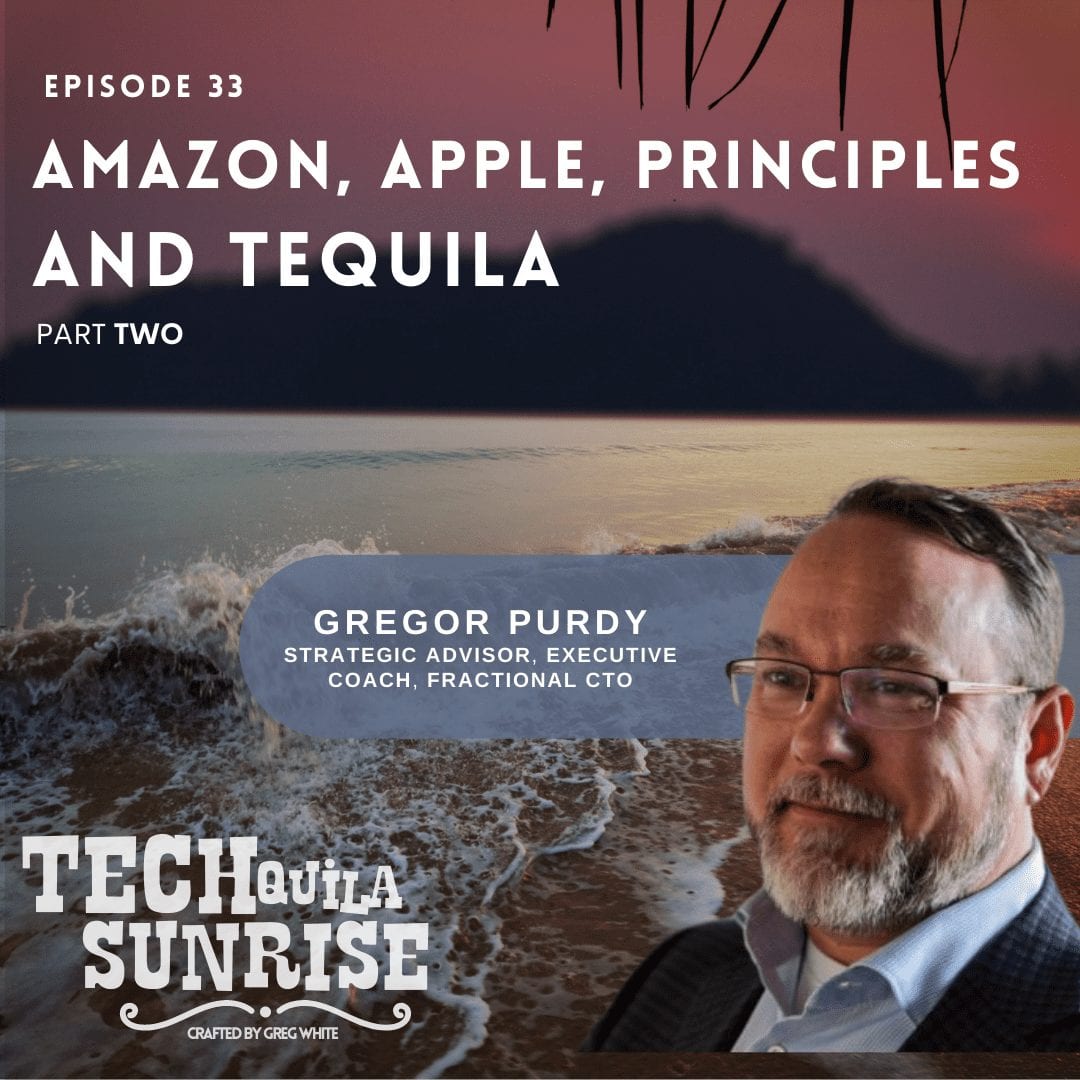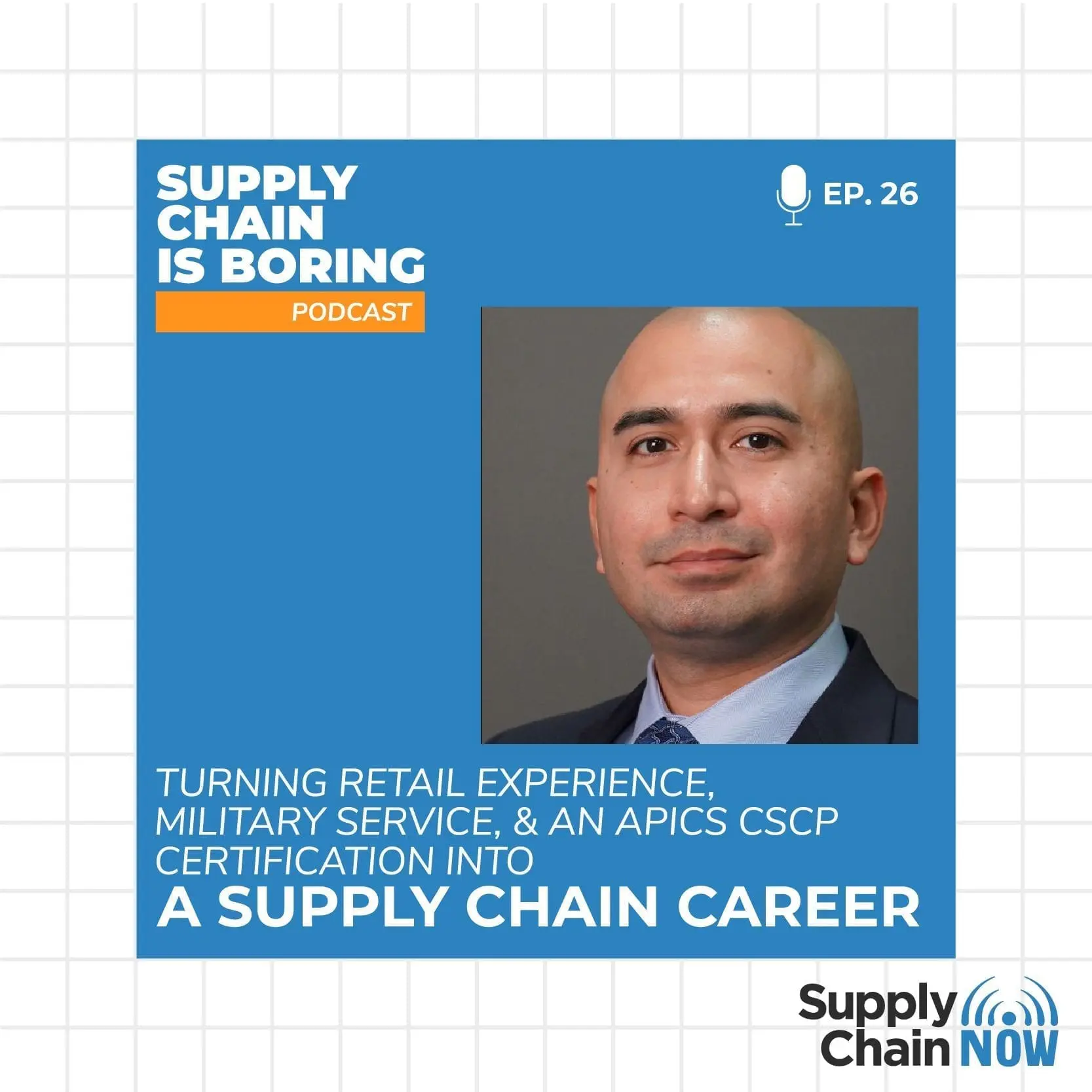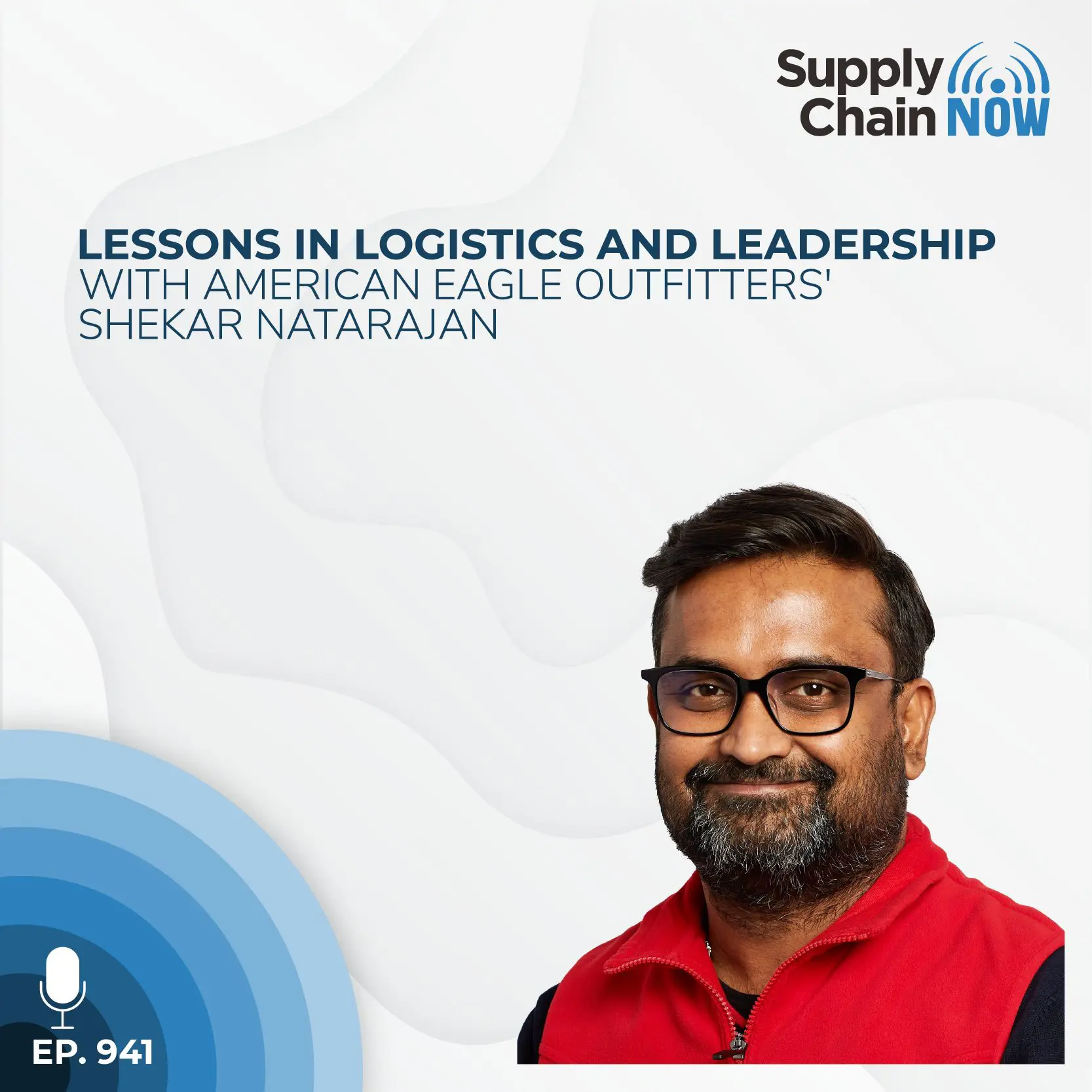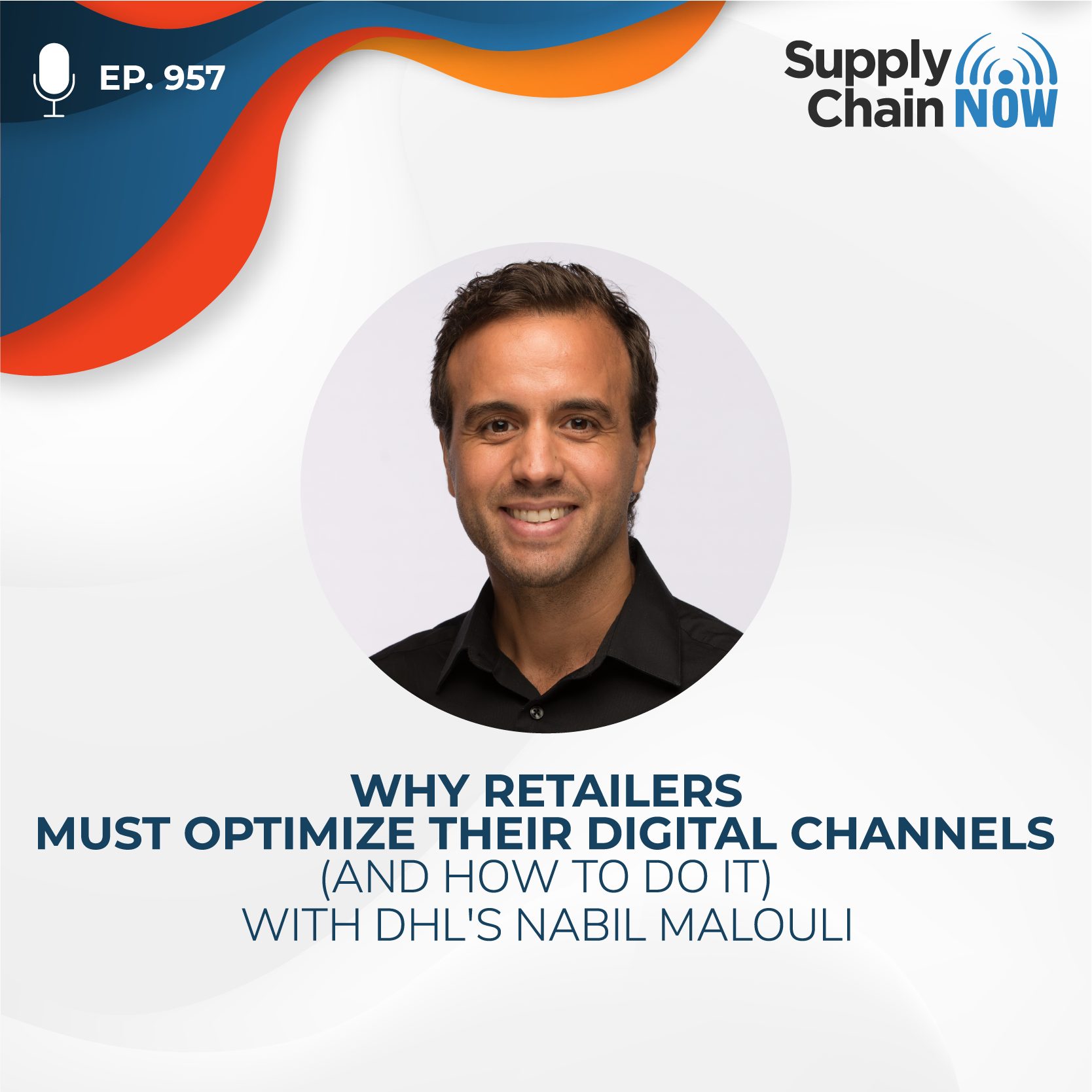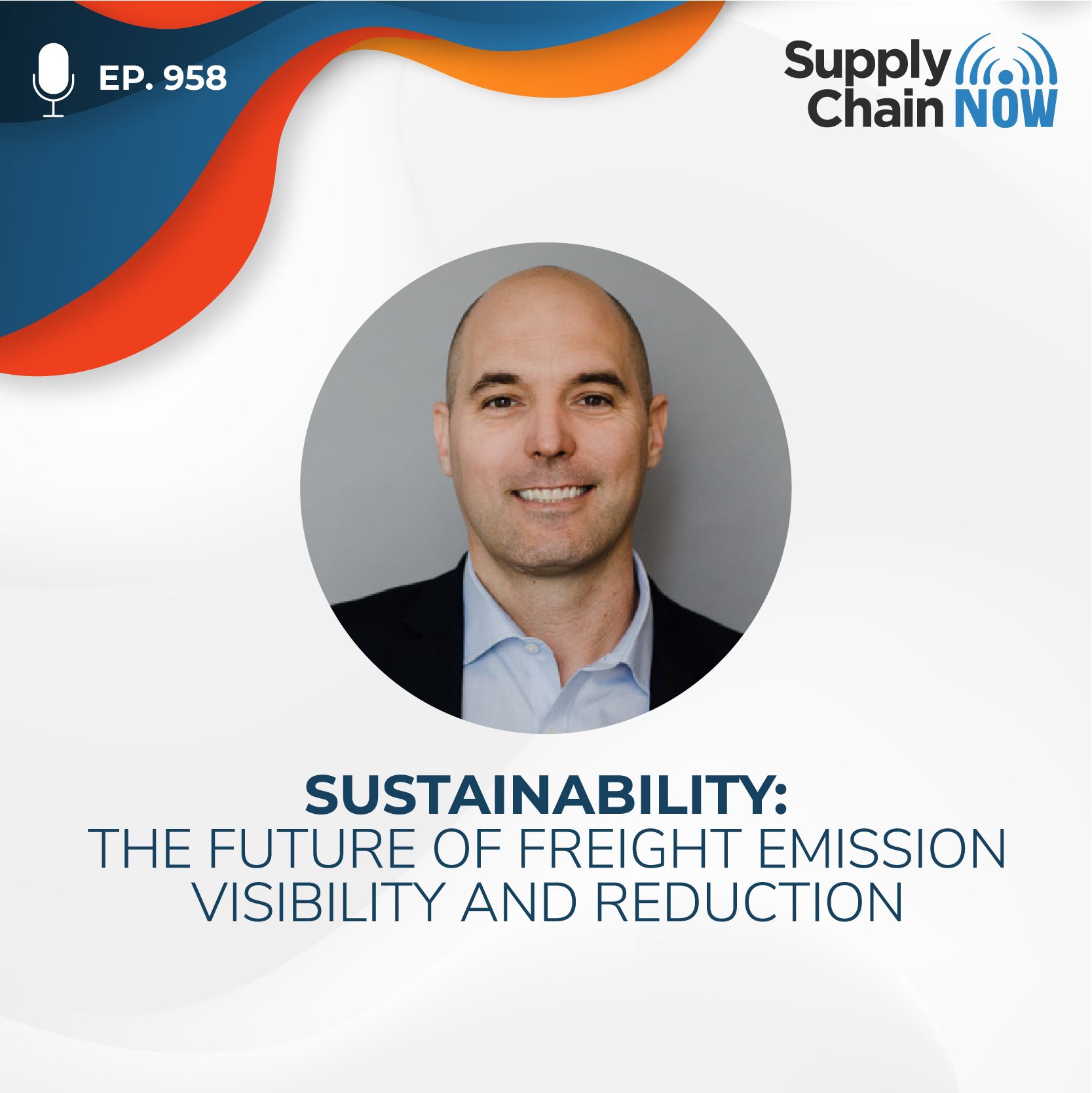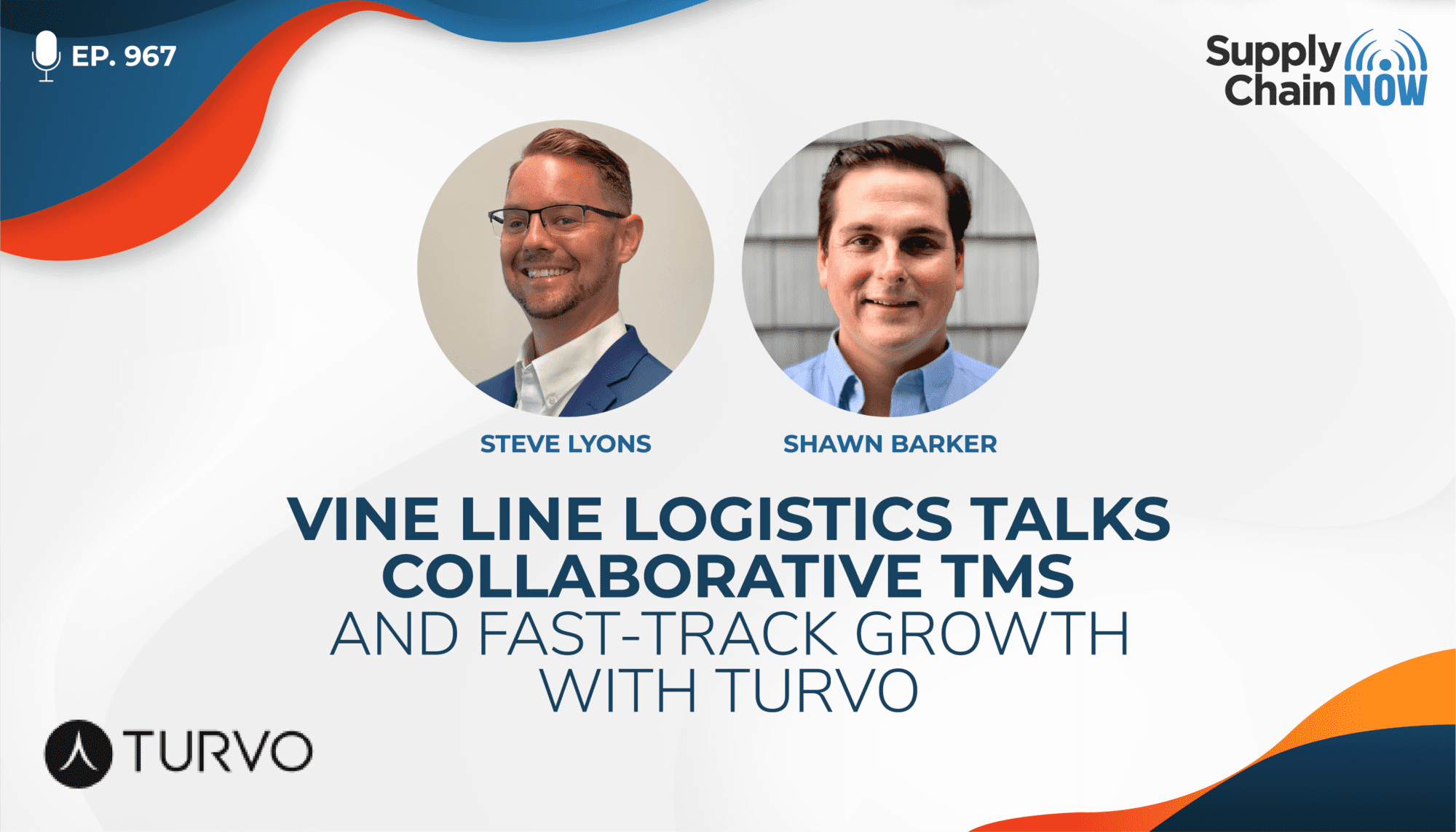
As a logistics company standing on our own two feet, we really had to identify: Who are we? What are we about? What's our goal?
-Steve Lyons, President of Vine Line
Episode Summary
Vine Line logistics got its start in 2008 moving produce from the west coast to the Midwest. As customers asked for more, they continued saying, “Yes, we can.” That started them on a digital transformation journey that brought them into a meaningful relationship with Turvo.
Vine Line President Steve Lyons credits his company’s significant expansion and success over the past year to Turvo. When Vine Line outgrew its TMS and needed a solution to bring its carriers and shipper customers onto one platform, they turned to Turvo for help. Turvo enables real-time collaboration for expedited services and a superior customer experience.
In this episode, created in collaboration with a live Supply Chain Now audience, Steve and Shawn Barker from Turvo join hosts Greg White and Scott Luton to share How Turvo’s cloud-based SaaS TMS:
-Replaced expensive in-house servers and maintenance with a less costly, scalable cloud-based infrastructure
-Doubled Vine Line’s carrier network in just one year
-Drove significant growth in all key metrics including revenue, loads, loads per day, and profits
-Delivers regular new features which their previous TMS rarely released
-Enables flexible integration
-Drives four times the contractual business with one of its largest customers
-Will help launch new managed transportation services
Episode Transcript
Intro/Outro (00:03):
Welcome to Supply Chain Now, the voice of global supply chain. Supply Chain Now focuses on the best in the business for our worldwide audience, the people, the technologies, the best practices, and today’s critical issues, the challenges and opportunities. Stay tuned to hear from those making global business happen right here on Supply Chain Now.
Scott Luton (00:32):
Hey. Hey. Good morning. Scott Luton and Greg White with you here on Supply Chain Now. Welcome to today’s livestream. Greg, how are we doing?
Greg White (00:39):
Outstanding. How are you doing Scott?
Scott Luton (00:41):
Doing lovely, especially we get little rain today.
Greg White (00:44):
Is that happening today up there?
Scott Luton (00:46):
I sure hope so. I thought it was going to rain earlier today. Our green bean farm, massive acreage, as in eight plants, I think, we could really use little bit of rain, but we’ll see. We’ll keep our fingers crossed. How about you? What’s it look like down in Hilton Head Island?
Greg White (01:01):
It’s pretty clear right now, but we are supposed to get some rain later today. And I have to make the trek, so I have to time it carefully so I don’t get rained out.
Scott Luton (01:11):
Okay. Nice. It’s all about timing. Life’s all about timing, Greg.
Greg White (01:15):
And there’s nothing like a five hour drive in the rain.
Scott Luton (01:19):
There is not wait. Speaking of precipitation, we’re going to have a deluge – did I say that word, right? A deluge?
Greg White (01:26):
I like that.
Scott Luton (01:26):
… of market Intel knowledge and growth stories dropping on our audience here today, our global audience. So, we’re going to be talking about fast growth in an endlessly challenging environment and a highly innovative and collaborative approach to TMS technology, Transportation Management Systems, for those of you keeping score at home. Greg, are you buckled up and ready for this?
Greg White (01:50):
I am. Let’s do this.
Scott Luton (01:51):
All right.
Greg White (01:52):
I’m not keeping score at home, but I feel like I should be now.
Scott Luton (01:55):
There should be a supply chain score book, much like baseball has, in these times we’re living through, but we’ll save that for another show.
Greg White (02:02):
There’d be a lot of errors. A lot of big ease in the scorebook, if that was the case, wouldn’t it?
Scott Luton (02:06):
Man, I feel like goose had just set you up on the beach volleyball to spike it down. That was nice, Greg. Very nice. But, folks, of course, we want to hear from Greg, we got two incredible panelists who will be joining us here momentarily, but we also want to hear from you. We’re going to say hello to a few folks in a minute. But just like they’re chiming in where they’re from and greeting everybody, hey, share your take on the conversation and discussion as we work through today’s conversation. So, use that chat bar, cheap seats or the club level seating because football season’s coming soon. Right, Greg?
Greg White (02:37):
That’s right.
Scott Luton (02:37):
So, I want to hear from you and I look forward to your take on today’s conversation. Really quick before we bring in our esteemed panel, let’s say hello to a few folks. Hey, Keivan is back with us, Greg? The legendary.
Greg White (02:51):
Yeah. I was getting a little worried that he might have like stopped eating lunch or something. I don’t know.
Scott Luton (02:56):
Well, you know, Keivan has been on quite a tear, turned out some great content. Of course, he’s working on his PhD, quite the supply chain guru. So, great to have you back with us here, Keivan. Mike Avera is back with us. He says he is doing fantastic after taking out the Mets last night. Go Braves.
Greg White (03:11):
Thanks, Mike. Good job.
Scott Luton (03:12):
What a game, 13 to 1. Whenever the Mets are throwing in their position players to pitch a couple innings, and that’s their most effective pitchers of the game, that’s a good game to watch, I tell you. But, hey, if you’re a Met –
Greg White (03:24):
[Inaudible] yesterday?
Scott Luton (03:25):
Steven Strider for the Braves, he went five. And a full box score on the 11:00 p.m. report tonight. But, hey, Braves took the first one and we’ll see what takes place tonight. Katherine Hintz is with us. Of course, Katherine, Amanda, Clay –
Greg White (03:39):
Of the Hintz family.
Scott Luton (03:41):
Yeah. Katherine, Amanda Clay, Chantel, the whole production team, appreciate what they do helping to knock these shows out with us. Shelly Phillips is tuned in via LinkedIn, “Good morning from rainy Colorado.” Shelly, great to have you back here today. Kendall Scott, “Excited for the show.” Kendall, let us know where you’re tuned in from as you are watching this via LinkedIn. Let’s see here. Jason Hilderbrand, “Good morning from Sakaem Logistics, and, yes, Go Braves.” Hey, Jason, you’re part of the fan now, so welcome, welcome. Cameron tuned in via LinkedIn. Great to see you here today. Hey, Samantha Foley is back with us via LinkedIn, “Hello from Dallas, Texas. Nice and sunny today. Go Cowboys.” Oh, Greg. Oh, man. I didn’t mean to break your heart there. Big Dallas Cowboys fan it appears.
Greg White (04:27):
Who did we have on who was a big Cowboys fan, but not a Jerry Jones fan. Was that every Cowboy fan that we’ve ever had on or was that a particular one? Yeah. Actually, I watched a little bit of their preseason game. They mean nothing, especially right now it’s just how to get the roster down, to which it has to be down to 95 by noon today. Oh, my gosh. It has to be down to 95 now. I mean they’re [inaudible] players, right?
Scott Luton (04:59):
[Inaudible]. Not a fan. Not a fan.
Greg White (05:01):
It’s got to go down to 53 players.
Scott Luton (05:04):
Wow. It’s a necessity for the business side of professional football, I imagine, but not a fan of viewing preseason games. And thanks, Mike. I think Spencer is right, not Steve. I think I said Steven Strider. It’s Spencer Strider, who played baseball at Clemson, by the way, some folks may not know that.
Greg White (05:20):
You’d think you know him better.
Scott Luton (05:20):
No kidding. He has got some stuff, let me tell you. TSquared, he holds down the fort for us on YouTube, “Ready for the nourishment. Do it 3X.” Hey, I like that. We’ll try to do it 5X today, so it is coming. And, finally, Jake Chase tuned in via LinkedIn from Oklahoma City. Lovely city.
Greg White (05:40):
There it is. Straight down I35 from Wichita.
Scott Luton (05:42):
That’s right. Jake, great to see you. Okay. Welcome everybody. I know we couldn’t hit everybody. You know, y’all comment throughout the hour, we want to get your take on this great conversation we’re going to have teed up. And with no further ado, I’m going to welcome in, Greg, our two panelists. We are all set to hear from Steve Lyons, President and CEO with Vine Line Logistics; and Shawn Barker, Senior Account Director with Turvo. Hey. Hey. Steve, how are you doing?
Steve Lyons (06:10):
Hey. Good. Guys, how are you?
Scott Luton (06:11):
Great to see you. Hey Shawn, how are you doing?
Shawn Barker (06:13):
Great. Thanks for having us on.
Scott Luton (06:15):
Wonderful.
Greg White (06:15)
Welcome aboard.
Scott Luton (06:17)
Greg, we’ve enjoyed the pre-show conversations with these two supply chain leaders. They bring not only a ton of expertise, but a lot of personalities to the table, which we love.
Greg White (06:25):
I had not noticed that.
Scott Luton (06:28):
It’s so important to maintain a healthy sense of humor in these challenging times, for sure. And by the way, hello, Dr. Rhonda. Great to see you here today. Appreciate what you’ve been up to here lately.
Greg White (06:39):
Okay. We can go now. Yeah.
Scott Luton (06:41):
So, Shawn, Steve, and Greg, before we dive into a great growth story that’s going to offer, I think, a lot of information and, not best practices, Greg, game changing practices, I’ll call it, for plenty of folks that are in the supply chain industry, let’s have a little fun with a warm up question here today. So, folks, it is National Rum Day. National Rum Day. Everyday, everything has its own national day here in the states, I guess. So, I want to start with Steve here. What is your favorite rum or rum drink?
Steve Lyons (07:13):
My favorite rum or rum drink, well, I got a story. So, I’m a big bourbon fan. And so, recently I picked up a bottle of Angel’s Envy Rye. It is bourbon aged in Caribbean rum casks. So, I do feel like it falls into the rum category.
Greg White (07:29):
There you go.
Steve Lyons (07:29):
But the reason I got out of that, I was at a restaurant and they didn’t have prices for the liquor on the menu. And I wanted what was a rye, and they had Angel’s, that would be rye. I didn’t know the price. And I liked it so much that I actually did what I don’t normally do at a restaurant, I had two glasses. Well, I got the bill at the end and they were 40 bucks a piece. So, when I saw a bottle for much, much less expensive in the store, I decided to pick one up and not order it from a restaurant again. It’s very tasty though.
Greg White (08:01):
[Inaudible] I may have had that experience once in Greenville. I was like, “It’s what?”
Steve Lyons (08:09):
“I’m sorry. That’s more than my food. What?”
Scott Luton (08:12):
“Well, we’ll take two then.” No. Steve, great story. And by the way, you’ve got a fashion fan. Jayson Peterson says, “Hey, I need a Vine Line vest. Looking good, Steve.” Well, I appreciate that. Jayson, great to have you here today. Okay. Shawn, that’s going to be tough to top. Steve seems to be a very educated connoisseur of adult beverages. So, Shawn, your take on National Rum Day.
Shawn Barker (08:37):
Yeah. I don’t think I’m up there on that level from a connoisseur standpoint. And I never really been a big rum guy, but there is a place in Gloucester, Massachusetts on the water called the Mile Marker. And they have a drink there, it’s a rum drink called the Pain Killer. And I mean, that’s pretty much what does it for me. So, nothing better than an 80 degree day just over there hanging out with one.
Greg White (08:58):
With or without nutmeg, Shawn?
Shawn Barker (09:01):
[Inaudible].
Scott Luton (09:03):
Hey, you had me at the drink name, right? Can you imagine a long day staggering in there at 7:00 p.m. and “I need a Pain Killer.” Sounds like it’ll do the trick, Shawn. All right. So, Greg, Steve and Shawn have weighed in on National Rum Day. Your thoughts?
Greg White (09:19):
Yeah. So, on National Rum Day, I’m going to pick our national rum. So, we have some family friends in Puerto Rico, the Fernandez Family and the Toroto Family. And Pablo Fernandez, a good friend of mine, his great grandfather founded a brand of rum called Ron del Barrilito, which means rum in the little barrels. And they have little barrels. I have one. They made me take it away. It was funny, by the way, at the airport, they’re like, “How did you get that?”
Greg White (09:48):
But their great grandfather was such a huge patriot of Puerto Rico, he casked a rum and he called it the Freedom Cask. He casked it in 1947, only to be opened when Puerto Rico becomes independent, which, of course, will never happen. But every year you have to turn the cask and then you test it to make sure it hasn’t gone bad. Two different times, Pablo and his father, Fernando, have invited me down there to taste the Freedom Cask of rum. And it is, I mean, like you’d expect, it is smooth as glass. Any rum that’s 70 years old is delicious.
Scott Luton (10:27):
Man, that is quite a story. We’re going to have to have rum hour later this week, perhaps, here at Supply Chain Now. But Greg, Steve, and Shawn, well done. And let’s all be sure to celebrate National Rum Day in our own ways later today. Hey, it’s obligatory.
Scott Luton (10:42):
Really quick, I was going to share Mike says, “Hey, if you’re ever in Puerto Rico, take a tour of The Bicardi factory. Dr. Rhonda says no more rum for her after adult beverage fueled Jenga games. And I think this is Christian. Christian says Zacapa is his favorite rum. So, good stuff there. Okay.
Scott Luton (11:01):
So, we got to get to work. We got to dive in head first, Steve and Shawn. I think an intriguing story here that a lot of folks are going to learn from. I want to start with kind of level setting a little bit. And, Steve, plenty of folks know both Turvo and Vine Line, but let’s just kind level set a bit, tell us about what the Vine Line Logistics organization does – I love this – the shipper to receiver solution. So, tell us about the company a little bit.
Steve Lyons (11:23):
Yeah. Thanks for passing it over. So, Vine Line Logistics, we had originally started 2008. It was created – at the time, it was called Custom Logistics – to support a food service customer who needed help getting produce from the West Coast back into the Midwest. My father, Gary, had a produce company, and so this option of can you help me with logistics really got to the point of starting that logistics company for them. And it was the only customer. And so, he knew of a trucking company that could handle it. They started moving their freight from California to Michigan. And then, from there, it really just kind of came from what else can we help with, and started moving transportation for the produce company, of course, running it through that.
Steve Lyons (12:05):
But I came on board 2013, and at the time we were really doing a lot of produce shipments out of the Southeast and the West Coast. And really came in and decided from a marketing standpoint, we have something here that we could probably turn into a brand, start going after the produce markets, and growing the company from that standpoint.
Steve Lyons (12:25):
So, at the time, we heard a lot of you need to be an asset based broker. So, that was a huge transition on, “Hey, if we’re going to work with you, we want you to have your own assets.” So, we bought trucks to service the needs of some outbound customers from Michigan, get them into the produce growing regions. And I helped kind of launch that off the ground and worked with the drivers. And like most people that owned trucking companies, you kind of find out, you have thought you were only going to have two trucks. And then, the two turned into four, and then the four turned into ten, and you’re like, “How did we get so many?” But we kept going with it. We had an opportunity to open up a facility in Cedar Rapids, Iowa for another customer and start doing Midwest distribution.
Steve Lyons (13:06):
And so, the opportunities, essentially, just were happening somewhat organically, but also just as our customers needs changed, we just kept saying yes, and we can do that, let’s look into it. So, where the company is today, we’ve always been a part of a group of companies being affiliated with produce. But last year, and when I really got talking to Shawn, is, when we were pivoting to become our own standalone entity. Not being a part of the group of companies anymore. So, as a logistics company standing on their own two feet, we really had to identify who are we, what are we about, what’s our goal.
Scott Luton (13:40):
So, Steve, I want to get into that story in just a moment. I think that’s going to offer up tons of learnings for our listeners. If I can, though, really quick just a level set a bit, just like we’ve gotten a nice dose of what Vine Line Logistics is – and by the way, Greg, necessity is truly the mother of not only invention, but the mother of –
Greg White (13:59):
Expansion.
Scott Luton (00:14:00):
… expansion. Yes. Thank you. And I love what Steve brings to the table there. Let’s kind of compliment that with Shawn and the Turvo story really quick. And then, we’re going to come back to Steve, and talk about kind of the cool stuff they’re doing together. But, Shawn, in a nutshell, tell us about Turvo.
Shawn Barker (14:12):
Yeah. A little bit on what Turvo does, it helps organizations plan, execute, and settle. Sort of your standard blocking and tackling within the worlds of TMS. But what makes Turvo extremely special is this layer of collaboration on top of plan, execute, and settle piece. And within the world of collaboration, there’s really two ways about it. Number one, within Vine Line, within the four walls of the organization, how can I better work with my team members, some of the operational efficiency there. And then, there’s this whole network idea of how can I work better with my shipper customers, how can I work better with my carrier partners. And I think the shipper and the receiver solution, like the mantra from Vine Line, that does a fantastic job summing up what Turvo can offer in terms of tying together all organizations, you know, that are going to be having to collaborate together on that one single shipment right there. So, high level, that’s a little bit on Turvo.
Scott Luton (15:06):
Perfect. And, you know, we got a lot of feedback last time Turvo joined us and how they kind of brought a customer and told the story and the relationship, and I look forward to diving in deeper. So, Steve I’m come back to you. But first, Greg, as we’re level setting, we kind of heard about the Vine Line Logistics story and then Shawn just shared with us what Turvo’s up to, cool things there, your quick take, Greg.
Greg White (15:26):
Yeah. Well, you know, we’ve talked a lot about the technologies that really become so important in supply chain. I think WMS is obviously one, TMS kind of came out of WMS, because Warehouse Management Systems, they do warehouse. Transportation was the next question, just like Steve got, “Can you do more for us?” A lot of companies got the next question and TMS became that. So, if you talk about the underpinnings of technology in terms of supply chain, it’s going to be WMS and TMS and then a lot of the forecasting and planning and that sort of thing. So, if you can tie all those together for your shippers and for their trading partners, that’s so powerful.
Greg White (16:08):
And, Shawn, we keep talking about how important technology is today and – I think all of us would probably agree – has been for a long time. But now we have such a wealth of data and we are so in the forefront in terms of supply chain. We can’t hide anymore behind our name tags and our blue shirts. We have to be up there in the C-suite making explanations, making arguments, and creating initiatives. So, it’s really, really critical that companies start to embrace, if they haven’t already, these kind of technological initiatives.
Scott Luton (16:43):
Well said. We’re going to move into a supply chain story time in just a second, coming to Steve next. But Mike says, “Now’s the prime season for produce.” I bet Steve can speak to that by the truckload.
Greg White (16:56):
And maybe LTL also.
Scott Luton (16:58):
Right. Cool background story, Steve. And I agree with that. And I didn’t mean to interrupt you for a second, but I wanted to level set with the whole panel. And, Steve, you were about to kind of move into kind of where the business stood when you met Shawn and the Turvo team. And maybe you can shed some more light on that as well as some of the challenges that you faced in the business.
Steve Lyons (17:15):
Yeah. We always had a TMS system, but like some old school TMS systems. It looked a little bit more like an Excel Spreadsheet. And it was on a server and it had very, very limited capabilities. I think in the capabilities that it did have were, if we wanted to enhance a feature or have an integration of some kind, it was this really obscure task that who to involve and how much is this going to cost me and all sorts of stuff. So, we knew that at some point we would outgrow our current TMS. And when we decided that we wanted to take the foundational aspect of our business and we wanted to grow it and we wanted to turn it into something more and go hire more employees, we really needed to look at what else is out there. And I think we knew technology was going to play a key role in that.
Steve Lyons (18:04):
To this day, I’m still surprised at to what level technology is playing to the point where we have to balance it with the human element. We’re really trying to do that. But when we got hooked onto Turvo, it was apparent by the first demo, just in the way that the interface looks. So, some people overlook the fact that the way the user interface appears has a lot of merit and you’re hiring employees. And that sometimes the first thing they see when they sit down at the chair, they want it to look – some to call it -cool but also just useful. And that was something we absolutely had to have.
Steve Lyons (18:35):
So, in the demo from Turvo, you know, we all walked away going, “That is such a cool looking system.” And then, we pulled back the layers. Why is it set up the way it is? And when we really got into the collaborative piece and what Turvo can do from an integration standpoint and the team that they have behind them, we were already pretty much sold right off the bat because we said, “Okay. This is going to help us grow.” And that’s what we were essentially looking for in a TMS, what’s going to help us grow, what’s going to help us be more efficient, what’s going to set us up for the next five, ten years. And a lot of our questions were answered with those, “We’re here to help. We want to make sure you guys are successful.”
Scott Luton (19:11):
Okay. So, we’re seeing lots of head nodding. I want to give folks a chance to weigh in on that and see if I’m going to come back because we’re going to pick back up with you on the implementation. But before we do, Greg, I’m going to come to you first, and, Shawn, I’ll get your thoughts in just a second. But, Greg, some of those things as Steve was describing, the technology and the impact on his team members, those are a lot of user experience dynamics as software and technology is built. Weigh on that really quick, Greg.
Greg White (19:36):
Well, I can’t remember anything he said before spreadsheet because I was just thinking how often we talk about that transition. But since that, I mean, I think there’s a number of key things that, Steve, you’ve talked about. One is the user experience. First of all, technology should only be an enabler, never a hurdle. You guys don’t look old enough, but some of us grew up with systems that had this thing called a green screen, which was really a black screen with green letters. And those systems were a nightmare just like your spreadsheet system, Steve. Everything had to be customized. They were on a server that went down three times a day. There was only one person in the company that knew it. Usually, that person’s name was Bob. I don’t know why that is.
Scott Luton (20:24):
I told you supply chain story time. I’ll tell you.
Greg White (20:27):
And very limited capabilities. And as you said, customization, I think what you’re speaking to, Steve, is dangerous because then it can’t be supported by the technology company. They forget they even built it for you. The Bob guy that built it moves on to another company and then nobody can support it. So, the way that technology has evolved today, one, with literally unlimited power of the Cloud so that we can, not only process more data, but we can process it with more complexity, greater mathematics, and that sort of thing is critical to companies.
Greg White (20:58):
And the user interface, it has to be simple. Everything we talk about in the boardroom has to be easily delivered on the desktop, and that’s what really makes systems work. They don’t need to look complex, which used to be how we impress or how people tried to impress us as practitioners in the old days, “Hey, it can do all this really cool math. You have to make it do it.” Now, all that cool math is behind the scenes. And it is basically an app-like experience in so many cases or very nearly an app-like experience for these business systems. And that’s what gets people over the line in terms of being able to adopt and utilize these things.
Scott Luton (21:36):
Well said, Greg. And, Shawn, we’ll come back to you. I bet Greg, in many ways, is talking your language. But take us back to what Steve was sharing where, clearly, the Turvo team made an immediate impact, and then we’ll get to the implementation in a second. But, Shawn, talk about some of those kind of current state scenario that Steve painted a picture of.
Shawn Barker (21:55):
Yeah. Steve, I cut it as always, but there were really two pieces that we were looking to solve for right off the bat. Number one, the simple usability. Just to touch on that for a second, I mean these things have sort of spoiled us rot in the last ten years or so. Everything we use on it, pretty seamless, right? So, what we’ve done at Turvo is really incorporate that consumer feel within the world of enterprise applications. So, digging into usability, you know, fewer clicks run faster within four walls. Again, going into that standard blocking and tackling stuff from an operational standpoint.
Shawn Barker (22:28):
And then, the other piece which really stood out to me that Steve was looking to solve for was how can Vine Line better work with their carrier base and incorporate some automation in there, take some of the workload off of the operations folks at Vine Line, give a little bit more autonomy to the carrier network, and having that symbiotic relationship. It’s just going to, really, again, create some automation, even expedite some billing cycles between those organizations as well. So, those are really the two top piece that we wanted to hit on right off the bat and really accelerate that time to value on.
Scott Luton (22:59):
Well said. Okay. Steve, I’ll come to you next, but a couple quick comments. Michael says, “No more shipping bills with yellow and pink copies.” Lee is a big fan of the UI for Turvo. Thank you for sharing that, Lee, via LinkedIn. Let us know where you’re tuned in from, Lee. Keivan is still stuck on what about Bob? I love that. And he agrees, he says, “That’s why there’s a move from C++ to Julia and Python.” Atif, great to see you here today via LinkedIn. Let us know where you’re tuned in from.
Scott Luton (23:27):
And with that, Steve, I want to shift back over to you. Last time Turvo joined us here at Supply Chain Now, there was a lot made about not only the ease of implementation, but the quick return on investment, and the quick impact that it had on operations. But, hey, those are my words. Tell us about implementation and flipping the switch, what that was like.
Steve Lyons (23:45):
Yeah. So, I think what Shawn had talked about is that slick user interface and that usability. One of the things that we always knew at Vine Line, just that we were bad at and we have been very open about this, is, we struggle with training. Like, just training from the ground up with new employees. We were very come onboard, we need to be entrepreneurial, and so on and so forth. And just, you know, that sit and listen mentality where someone’s right next to you. It’s like just learn from me. And as we grew, we knew we needed a system that was easy to train. So, when we talked about implementation, not only did we wanted to look easy, we wanted to be able to train our employees easier.
Steve Lyons (24:23):
So, when we started to get onboard and the Turvo team helped us upload our carrier network, we really wanted to start fresh with this new TMS. We had a lot of data that was messy. And if we imported it into our new system, it was not going to be worth bringing it all in. But we did use a lot of the carrier data, which we used with an uploading tool. And they walked us through and held our hand during that process. But, ultimately, up and running with our team, it was amazing to watch. There was a member of the Turvo team onsite with us for the first week. And a lot of questions from our team came up day one. It was almost like Spitfire Chelsea. Their team did an incredible job at just being there, answering over and over.
Steve Lyons (24:58):
The second day, though, the questions were very minimal and it wasn’t because that people didn’t want to understand a user weren’t digging. It’s just they were able to understand it. And like you said, Shawn, that iPhone, that smartphones we have, I mean, to show someone how to text is super easy, but we’re talking about how to run a business process. And it seemed like the system made sense. And there was also parade Turvo University that helped us with that. And our team was up and running quick and we were able to get going. And we saw the return quickly because of that and the features just kept coming out. So, it was awesome.
Scott Luton (25:32):
As we all know, whether you’re entrepreneur, startup organization, or entrenched in global supply chain, speed can be everything. And ease to use and ease to learn, I love hearing that, Steve. I’m going to come back, Greg, in just a second. But, Shawn, speak to that implementation and some of the things that Steve just spoke to there.
Shawn Barker (25:51):
So, I think there’s really two big pieces. What Steve said in the beginning, prior to Turvo, I didn’t operate in a TMS back in the day. And it was just sit next to the guy next to you and he’s going to tell you what to do. And if I have a question, get up and bother him while he’s doing everything that he’s doing. So, I’m hurting his business and I’m selling everybody down.
Shawn Barker (26:09):
So, what we do differently here, going to what Steve said, there’s really two pieces that make these implementations a lot easier than, I think, TMS implementations have been historically. First being this Turvo Academy. And it’s really this soup to nuts, “Hey. Welcome to Turvo. And we’re going to take you from A, and by the end of this, you’re going to be at Z, and we’re going to show you everything in between on how to get into this system. And then, life beyond go live.”
Shawn Barker (26:32):
The other piece of that, beyond Turvo Academy, is really just self-service help center within Turvo. So, going back to that scenario, I said, “Hey, Nick. I don’t know what to do. Can you help me repower a loader?” You know, whatever the case was where something would get tricky like that. So, within Turvo itself, we have Turvo Help Center, and our team has done a fantastic job documenting out all of these various workflows within the application itself.
Shawn Barker (00:26:54):
So, as a user in Turvo, I don’t have to get up and bother anybody, or put in a support ticket, or sort of the way things happen. I can go into Help Center. I can use the Search feature, pull up essentially anything I need to how to create a rate confirmation. I mean, you name it, that kind of stuff. And it’s all listed out there self-service. So, those are really the two critical pieces, I would say, in the implementation and even post-implementation that, again, just add positive pieces to the usability of system.
Scott Luton (27:23):
And the results, which we’re going to touch on in a second. But, Greg, weigh in. You’ve built technology. You’ve led technology organizations. All things technology, all Greg EB White. Weigh in on some of these things that you’ve heard, Steve and Shawn address.
Greg White (27:38):
Yeah. I think one of the best things I heard was Steve acknowledged or confessed that their organization is not good at training. Entrepreneurial, it’s a euphemism for on-the-job training because we haven’t bothered or been able to put together a training system. And more companies should be open and honest about that. And that should be a big part of their decision making process. Because you don’t want an ERP system or even an ERP owned TMS because it’s going to cost you a million bucks and $10 million to implement it, to customize it. And then, it’s going to take weeks and weeks of training to even learn how to use it. So, these app-like solutions are critical for companies like that. And that doesn’t make them less robust. Look, Blue Ridge, our system was very, very robust, but it all happened behind the scenes, much like Turvo. We made it very simple for the user to learn and to operate.
Greg White (28:33):
And I was thinking about this, Steve, and I sense you guys might have done some of this. The reason some of those questions weren’t being asked was probably by the second day or so, people were going, “Oh. That’s how this thing works.” And trying to use it like they would in a day-to-day basis, right? I recall back in the old days, that was kind of what we had happen as well.
Scott Luton (28:53):
Steve, you were nodding your head. Is that accurate?
Steve Lyons (28:56):
I mean, it’s fun to be able to watch when you put something in front of – call it in this case – an employee. And they’re asking a question, “Hey, how do I – oh, nevermind. I got it.” And it’s because in Turvo, I think what their developers did a very good job at is putting things where they should be so they’re not looking around for a lot of information. A lot of what we want right in front of – call it – our care sales reps or our logistics sales reps on the customer facing side, that information could be tailored to be right in front of them. So, we’ve been able to customize it to an extent on what information we want them to see. And I think that’s one of the beautiful pieces of Turvo is that, not only is it kind of where it should be, but we can also unlock where we want it to be in a lot of cases.
Scott Luton (29:41):
All right. So, I’m going to circle back with you in just a second as we explore maybe more benefits from the partnership here. First, I want to say hello to Cameron. Great to see you here via LinkedIn. Thanks for joining us. And this is Jonathan McCutchen. And, Greg, I don’t know if that rings a bell for you. It’s been a couple years. But Jonathan, when we met, he was coming off doing big things from a supply chain in Carvana’s earliest days. So, Jonathan, we’re going to have to catch back up and see what big things you’ve been up to since. Okay.
Scott Luton (30:08):
Kind of back to our story here, and, Steve, I want to continue with you. Wait a second. I wish I could have found it. Steve, as you were talking about how difficult it is training new team members, you know, y’all all seen that Tiger Woods and John Daly meme, right? And it’s been all kinds of iterations. It’s really fun to see. One of the iterations I saw was, you know, Tiger Woods and all his sharp athletic fitness is the new employee, and that’s his label. And John Daly, which probably set up a middle light or Diet Coke and a cigarette down, you know, kind of a different picture is employee onboarding. And it was a nice one meme, one iteration. And it there’s a lot of truth, though, in memes like that because training onboarding new employees is difficult in and of itself. So, it is really cool to hear how this partnership here. Turvo kind of makes that easy to some extent. Easy in a relevance type of way, not too much as easy in global supply chain these days. But, Steve, speak to more of the benefits that you and your team have seen since the partnership, since it was implemented, flip switch and been using it.
Steve Lyons (31:11):
One of the things that sticks out the most is the way we communicate internally. So, a lot of companies will use internal communication systems, whether it be Teams or Slack or Google Chat or whatever the case may be. What I really liked once after we launched Turvo was that the communication stayed inside of our system. So, in the event that we have a load and there’s a question about it, maybe a pickup number needs to be updated or appointment time needs to be adjusted, all the communication is happening in the load itself, in the chat feature. Essentially, if one employee needs a question from another, they can directly communicate with each other inside the load, very collaborative.
Steve Lyons (31:46):
I’m not being bothered by what used to be our VL dispatch email, where, for whatever reason, every email ends up in VL dispatch because, well, as long as I’m casting a wider net, someone’s got to respond, right? So, our email just got out of control. We have thought that there would be this major benefit to distributing email to a lot of users. Well, it didn’t. So, what we found is, as soon after we launched, our email count dropped dramatically. It’s because all the noise just kind of went away. And, yes, some of it went towards the chat feature in Turvo, but only if you needed to be a part of it. And so, it helped us kind of get rid of the noise, what do I want to focus on specifically. And it’s fun to watch when our carrier sales reps are the drivers using the driver app and they can communicate direct to the sales rep, and, “Hey, I’m at the pickup location. I’m having a problem,” whatever, they can communicate directly. And, again, it’s all on that load. It’s all recorded so we can go back and see a timeline of the conversation. And that was beautiful.
Steve Lyons (32:46):
We don’t want to be outside of Turvo all that much if we can stay within the system and keep tags of what happened on that load. So, in the event we need to go back and look at the timeline, we have that, so huge benefit there. It dramatically decreased our email. And I think it removed a lot of noise, in some cases, stress. “Hey, do I need to open that?” “Oh, wait. I’m now opening a hundred emails that only five of them actually needed my attention.” So, that gets annoying. Incredibly annoying.
Scott Luton (33:17):
Yes. We need the old Alka-Seltzer commercials from the ’70s and ’80s plop, plop, fizz, fizz. We need those types of solutions for supply chain. Because, Steve, to your point, it is a stress and pressure field world, it has been for a long time. But these last few years, as we all know, there’s a lot of burnout. So, as leaders, we’ve got to pivot to solutions – I hate to use that word – we got to look for solutions that make it easier on our teams and make them more effective, make their life and their roles easier.
Scott Luton (33:44):
Greg, I’m coming to you next. But, Shawn, Steve just rattled off some of the benefits they’ve seen and some of those intangibles, which is really important. What else would you add, Shawn?
Shawn Barker (33:52):
Yeah. So, back in May, they had a big grand opening in Grand Rapids. They moved over to a new location, went out, met the team. So, it was a lot of fun, but then something pretty cool happened. You know, it’s 4:00 or so on a Friday afternoon, and carrier sales guys are on their computer working and they’re saying, “Hey, we got a load that we need to get covered.” And it was like a tough lane Texas up to Illinois or something like that. And I chuckled, I was like, “Geez. It’s late in the day. Like, good luck on it.”
Shawn Barker (34:15):
So, going to what Steve said, you know, I was able to watch everybody collaborate. And back in the day, it’s like, you have to yell over to the other desk, and it’s an IM, and it’s like, “Well, what load are we talking about right now?” So, it’s not a lot of interaction within the application itself. Everything in Turvo is contextual. So, that’s really cool to see. Then, the other thing as well, like going back to that lane, I was like, “You’re not going to get that thing covered.” They did get it covered. And I think the big piece of that was one of the themes of Turvo itself, it’s less digging and more doing. So, hey, I don’t have to go look through this really cumbersome carrier database. I don’t know who’s going to be the right carrier to get. I think that the lane was even covered just through a recommendation from Turvo on a carrier that it hauled the lane previously. So, it was just really cool to watch the collaboration in real time between carrier and sales, and then being able to easily secure that capacity as well.
Scott Luton (35:06):
Wonderful. All right. So, Greg, I’m going to give you the final word here on what you’re hearing about this partnership. And then, we’re going to shift gears and do a look ahead, and we welcome everyone else predictions here in a moment. But, Greg, a couple things you heard here.
Greg White (35:19):
I just heard the two biggest selling points of the entire technology. One is – I know this is really tactical – get rid of hundreds of emails a day. Get off work on time so you can start drinking beer. I mean, just imagine how long those sales people could have been trying to cover that load. Or, Shawn, to your point, maybe they didn’t even get it covered and lost the business. I mean, I think that’s fantastic. And those are real life user appreciated kinds of results. Of course, for the company, the results are much, much bigger than that. But the truth is those little minor wins are what get people to use a system that accrues to the benefit of the entire company. So, it is the little things that matter in these technologies.
Greg White (36:09):
I haven’t even seen Turvo, but I can tell by the stories that you guys are telling that it’s obviously an easy, intuitive kind of system for people to use. And that’s absolutely critical these days as our kids or younger siblings start to come into the workforce more and more. They’re not going to tolerate the slightest disruption, the slightest hindrance from technology. They’re going to expect it to do more than even we expect today. So, I think we’re on the right path here, technologies like this give companies a huge leg up when recruiting.
Scott Luton (36:44):
Agreed. Ain’t got time for that, the old dinosaur technologies. It’s meme day here at Supply Chain Now.
Greg White (36:50):
Yeah. Also I want to see that. I have never seen that famous meme that you’re talking about.
Scott Luton (36:55):
Oh, gosh. Greg, I’ll send you plenty of links [inaudible].
Greg White (36:57):
Please do. Thank you. I’m sure there will be hundreds of them sent now.
Scott Luton (37:02):
So, I want to shift gears. We’ve kind of spent the first big part of the show here talking about Steve’s story and the partnership between Turvo and Vine Line Logistics, and even beyond Turvo and beyond this partnership, some of the ways that partnerships and technology should be constructed for it to be effective and fully utilized so it can make a big impact. So, a lot of good stuff there. We’ve got some comments we’ll try to get to in a second. But I want to shift over to breaking out your crystal ball. As I’ve said, a thousand times, mine has long since been broken. I might can predict a baseball game, what’s going to happen today. But, goodness, where we’re going, who knows. But I want to start with you, Steve, what can business leaders expect, say, through the end of this year and into 2023? Any observations there?
Steve Lyons (37:48):
Yeah. No. I’ve been blown away lately with how technology, and more specifically automation, are playing a role in this third party logistics landscape. I think we are trying to determine how far into the automation game we want to go, because the concern is how do we apply the human element to the technological piece. I’ve been sitting through demos where you can go as far as quoting directly into a customer’s spot market system based on a quoting tool, based on algorithms, and so on and so forth. So, I think that the industry is moving to this concept of doing more with less. I think that the technological systems are becoming more powerful in terms of the data that they’re compiling and how we’re using that to our advantage.
Steve Lyons (38:35):
So, I think between now and the end of next year moving forward, we’re going to be challenged to determine what do we want in our tech stack, and what do we want the process to look like, how far do we want to automate it, and how do we explain that to our customers and our carriers. But I do think that we’re going to implement automation into our processes. And I think ultimately what that’s going to do is it is going to drive more business. And I think the ones that aren’t looking at that automation standpoint, how to integrate better, how to get systems to communicate with each other more effectively, they’re going to get left behind, because it’s just where our industry’s going.
Steve Lyons (39:09):
We’ve made mention here in our office before that we’re feeling like we’re becoming a tech company, and that’s not uncommon for others in the industry. I’ve asked [inaudible]it is heading in that direction. But how do we apply the human element to that? We don’t want to remove that piece. So, how do we blend the two together? But I think that we got to pay attention to it because it’s real and it’s happening quickly. And Turvo gives us that ability beyond that cutting edge of that. So, that’s a lot of fun.
Scott Luton (39:35):
Well said, Steve. All right. Shawn, what does your crystal ball tell you?
Shawn Barker (39:39):
Yeah. So, I’ve always been a big news nerd. So, I’ve been reading a ton, and we’ve had these really global disruption the past couple years from what’s been going on. And it looks like that’s going to be continuing. China is potentially in a 2008 U.S. type situation with housing bubble looming, and we know what that ripple effect looks like. So, I can definitely see that really continuing within the world of supply chain and how that’s going to be affecting us here in North America. And the big driver out of that, it is forcing the two things, like Steve just said, how do I do more with less. Organizations are going to be scrambling and continuing to scramble, you know, just dealing with punches and bullets, whatever you want to call it, that have been flying around.
Shawn Barker (40:23):
And then, that other piece around some automation doing more with less is really tight collaboration. That’s just going to continue to be more and more of a necessity because of all the scrambling and uncertainty that’s been going on out there. And the other piece, too, I mean, just the technology it’s increasing day-by-day. Things are just improving day-over-day. We’re seeing it here left and right in terms of what we’re rolling out from an enhancement standpoint. So, those are just a few factors that I think are just really driving organizations more and more daily, weekly to really focus on collaboration and automation.
Scott Luton (40:55):
Yeah. Well said. I had a robot deliver my pizza the other day, speaking of technology.
Greg White (40:59):
No way. did you really?
Scott Luton (41:01):
It knocked softly on the door.
Steve Lyons (41:02):
Is that Domino’s or something?
Scott Luton (41:04):
It gave me my exact change back. No. I’m kidding. But it’s coming. It’s coming, to Shawn’s point man.
Greg White (41:09):
Man, I was so looking forward to that story.
Steve Lyons (41:12):
But the funny thing is we all thought, “Wait. Really?” Right? Did that happen?
Greg White (41:16):
It’s possible. It could happen.
Steve Lyons (41:17):
Yeah. It’s crazy.
Shawn Barker (41:19):
I thought Domino’s.
Scott Luton (41:20):
Some of the robots I’ve seen in the demos out there that will be poised for ground-based delivery, I hope the final models are a little bit more friendly and less Robocop-ish. But we’ll see how it goes. Greg, Steve and Shawn both kind of offered up where we’re headed, what they expect business leaders dealing with through the end of this year and into next year, your thought.
Greg White (41:42):
Yeah. I hate to sound like a broken record – by the way, a record is what you kids call vinyl out there – but I predict that we will stop apologizing for technology taking people’s jobs. Because technology is taking jobs that people are running away from. I mean, let’s face the economic reality. We’re not politicians. We’re actual people. So, we have to face economic reality. We can’t change the truth by changing the words. So, the economy all over the world is slowing down. Some people call that a recession, current sitting politicians don’t, and they’re economists. But the economy is changing. The employment picture will change. And talk about necessity, people will have to be more automated as they reduce their staff in these difficult times to keep cash on hand. Labor is the largest expenditure, usually, on any company’s P&L, so technology will become a more and more important part of it.
Greg White (42:43):
More and more people at younger and younger ages, because it seems like almost every baby boomer has retired now, 3.6 million extra of them, even though 10,000 were retiring a day last year, 3.6 million extra more than that retired last year and less stock market crashes. Again, they probably aren’t coming back. So, we’re going to see more and more of those younger professionals coming into the workforce who expect automation, who expect technology to do the work for them, who expect not to have to do the dark, dirty, dangerous, mundane, repetitive tasks that humans have been doing to this time. So, that’s what I predict. I am wrong. I’m wrong, but that’s what I predict. Mostly out of hope, I predict that.
Scott Luton (43:32):
Thank you, Greg, and, Steve and Shawn for taking a stab and putting out there what you see us heading into. Samantha Jones, you have some great comments there on the freight markets. I can’t pull those up. Rhonda, I’m sorry to let you down. She was ready to hear that experience. It’s coming as Steve and Shawn and Greg all pointed out. And look at this, it’s here, TSquared says, “Morgan State University currently has robots for own campus food delivery.”
Greg White (43:58):
Let’s go. It ain’t that far away.
Scott Luton (44:01):
That’s right. I’d love to see some pictures of that, TSquared.
Greg White (44:05):
Great. By the way, supply chain school, Morgan State.
Scott Luton (44:08):
That’s right. Also, by the way, earlier in the comments, folks, you can check out a big part of our conversation here today was Turvo Academy, that Steve and their team really appreciated. Dr. Rhonda also spoke about some of the things they’re doing at her company to kind of create that university. And she included content around wellness, health, and overall wellbeing, but to include mental health wellness. So, I love to see that, Dr. Rhonda.
Scott Luton (44:32):
Speaking of resources, Shawn, and the popular Turvo Academy -hopefully, y’all great on a curve. That’s the only way I got through college. We’ll revisit that later though – we’ve got a really neat resource for folks that want to take a deeper dive into the story we’ve talked about here today. Do yu want to shed some line on why folks should check out this white paper here?
Shawn Barker (44:53):
Yeah. Our marketing team at Turvo has collaborated – the key word is collaborated – with Steve and his team at Vine Line, and really just put together sort of, like, a cliff notes version on what the quick impacts have been for Vine Line in implementing Turvo. So, not only does it look cool, that’s sort of a theme with Turvo, looking great. But it just has, like you can see here, a lot of these quick data points right here. So, you can get the really quick gist on what the impact has been to Vine Line.
Scott Luton (45:20):
Wonderful. And, hey, it’s easy to download. I did it this morning, piece of cake. It’s not one of those sticky, you know, sometimes if y’all submitted your information, you go through like eight more portals to get what you’re looking for. Shawn, I really appreciate how easy your team made that. So, y’all check the link, we dropped it in the comments. You’re one click away from downloading that. And one of my favorites, Shawn chose not to use it, Paul Harvey. If you want to learn more, the rest of the story here between Shawn, Steve, and their respected teams, check out the white paper.
Scott Luton (45:50):
Okay. We had to make sure we finished on time for a couple reasons that we aren’t going to share here. We didn’t want – what was that character from in living color, Greg?
Greg White (45:59):
Fire Marshal Bill.
Scott Luton (46:00):
Yeah. Fire Marshall Bill, which is portrayed by Jim Carey, legendary comedy series there. But let’s make sure –
Greg White (46:08):
[Inaudible].
Scott Luton (46:11):
You missed your call. You should have done impressions –
Greg White (46:14):
I spent a lot time in college working on that.
Scott Luton (46:18):
Wayan’s Brothers, man, what a great series that was. Okay. Let’s make sure folks know how to connect with you both. Maybe they’re interested in the Vine Line logistics story, maybe they’re interested in some of the cool things that Turvo’s up to, or just connect with y’all from a leadership standpoint. Steve, how can folks connect with you?
Steve Lyons (46:33):
Yeah. No. You can connect with me on LinkedIn. Pretty easy to find there. You can email me, steve@vinelinelogistics.com. You can throw out an SOS. I’ll do my best to reply. Try not to fax though. I’m kind of out of the fax game at this point. LinkedIn, email, pretty easy.
Scott Luton (46:51):
No carrier pigeons. None of that stuff? You’re done.
Steve Lyons (46:55):
I try not to.
Scott Luton (46:57):
Okay.
Greg White (46:58):
Describe what a fax machine is for our audience – just kidding. He doesn’t have one, believe me.
Scott Luton (47:06):
It won’t be long –
Steve Lyons (47:08):
You mean e-fax, right?
Scott Luton (47:09):
It won’t be long before fax and many technologies will have to be explained because they’re fading fast, for sure. Interesting note, Greg, you mentioned vinyl and records earlier. Evidently, compact discs are making the comeback. For the first time in 20 years, sales of CDs were up in 2021, but more on that later. What’s old is new again.
Greg White (47:31):
Fortunately, I still have a car that I can play them in- totally kidding.
Scott Luton (47:35):
Well, Steve, really appreciate your story you brought here today. Love your passion and enthusiasm with telling it. Don’t go anywhere just yet. Shawn Barker, love what you and the Turvo team are up to, changing how the game is played, making easier and more effective for hard working supply chain professionals out there. How can folks connect with you and Turvo?
Shawn Barker (47:57):
Yeah. Like Steve, LinkedIn, Shawn Barker. My personal or my email for Turvo, sbarker@turvo.com. And then, just to learn more about Turvo, it’s just turvo.com.
Scott Luton (48:06):
It’s just that easy. And, again, y’all can also check out that case study that we dropped the link in the comments. It’ll also be in the notes on the episode page. Shawn Barker with Turvo, Steve Lyons with Vine Line Logistics, gentlemen, really enjoyed today’s conversation. Thanks for carving some time out. And we hope to have you back again real soon.
Shawn Barker (48:26):
Thank you.
Steve Lyons (48:27):
Thank you very much.
Scott Luton (48:30):
So, I tell you, Steve and Shawn, really enjoyed the last hour, enjoyed our prep show conversations with them. They’re the same people behind the scenes as they are in front of everybody. I love that. Lots of authenticity there. And they’re doing big things. The last hour or so was chock full of actionable insights, and experiences, and technologies that anyone can benefit from business leaders. If you’re looking for new ways of doing things, check out, make sure you connect with both Shawn and Steve. But most importantly, Scott Luton wanting to challenge all of our listeners to, hey, be like Steve and Shawn, do good, give forward, and be the change that’s needed. And on that note, we’ll see you next time right back here at Supply Chain Now. Thanks everybody.
Intro/Outro (49:14):
Thanks for being a part of our Supply Chain Now community. Check out all of our programming at supplychainnow.com, and make sure you subscribe to supply Chain Now anywhere you listen to podcasts. And follow us on Facebook, LinkedIn, Twitter, and Instagram. See you next time on Supply Chain Now.
Featured Guests

Shawn Barker is a veteran supply chain and technology professional. He is a sales leader at Turvo who works with leading freight brokers and 3PLs to help solve critical supply chain challenges through Turvo’s leading TMS. Shawn has worked on the client side for a brokerage and 3PL, so he understands the visibility and collaboration challenges transportation companies face. Connect with Shawn on LinkedIn.

Steve Lyons is an incredibly passionate transportation entrepreneur who has been with Vine Line Logistics since August of 2013. In Steve’s time with Vine Line, he has experienced a myriad of events that include acquiring and operating a fleet of trucks, managing the logistics for a facility in Cedar Rapids, IA, being involved in a merger, moving twice, rebranding, and many other variables associated with a fast moving and growing brokerage and 3PL marketplace. Steve considers himself a “tech nerd” and has found a way to combine his passion for the people side of logistics with his curiosity for technology solutions to create a culture where people want to work and feel set up with the tools to excel. Steve and his brother, Spencer, are carrying on the legacy of a family business foundation matched with today’s technology that exhibits a personality of caring and compassion. Steve’s mantra is “how do we set others up for success?” which is built into the DNA of the organization and is noticeable in the way all employees, customers, and carriers are treated. Steve is uniquely positioned to lead Vine Line into the future by utilizing the tech to compete with large logistics companies, while maintaining the personal relationships and problem solving agility only a small brokerage can offer. Connect with Steve on LinkedIn.
